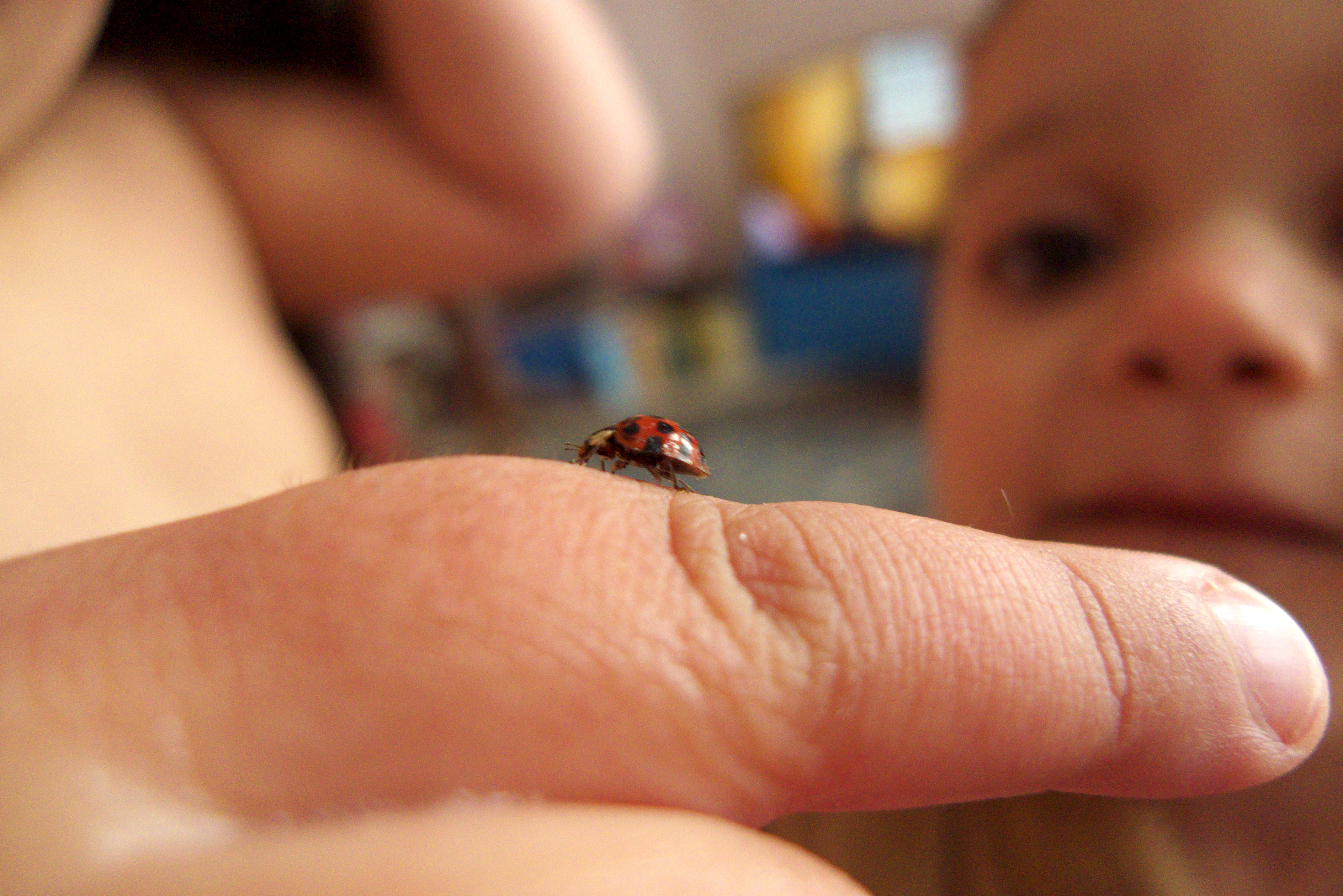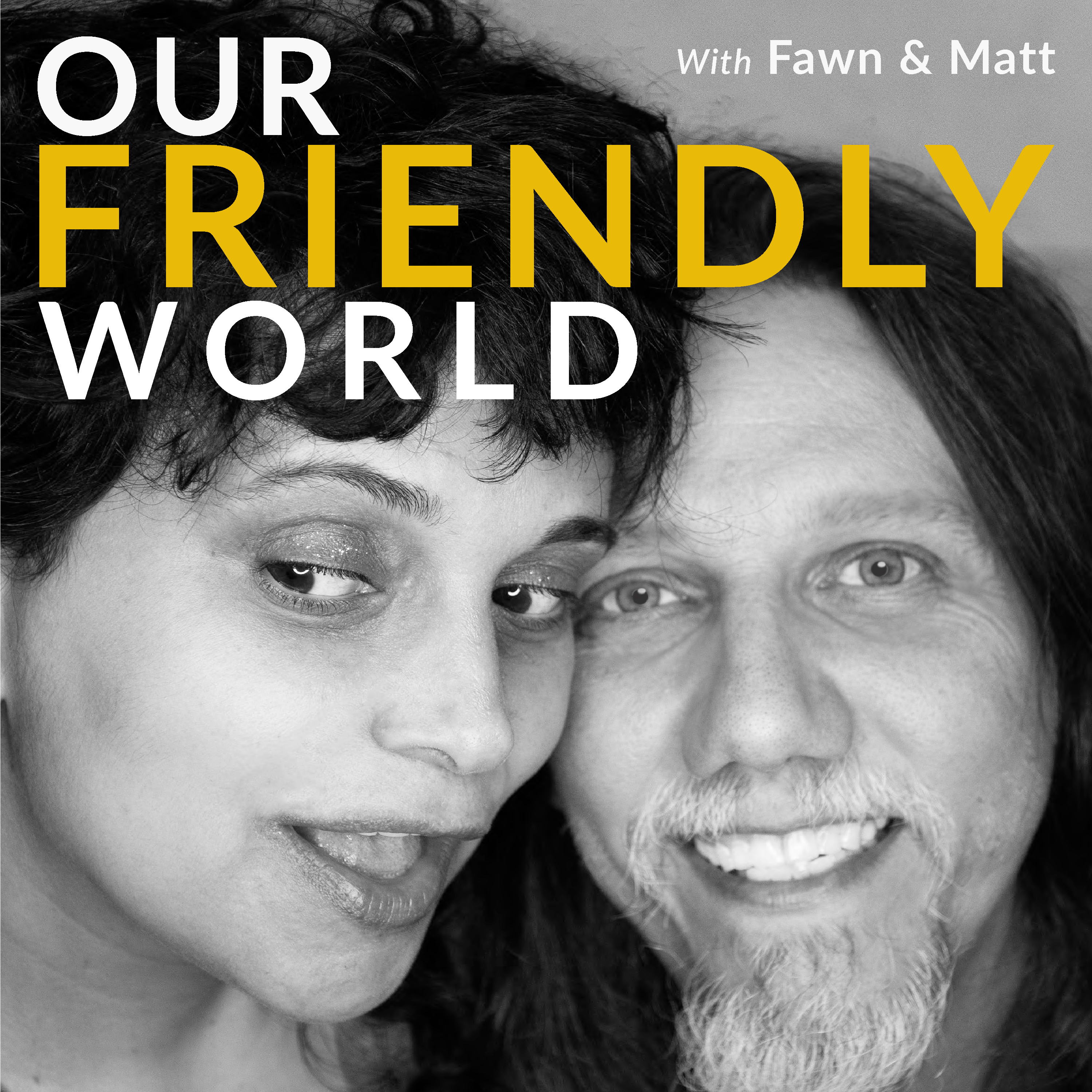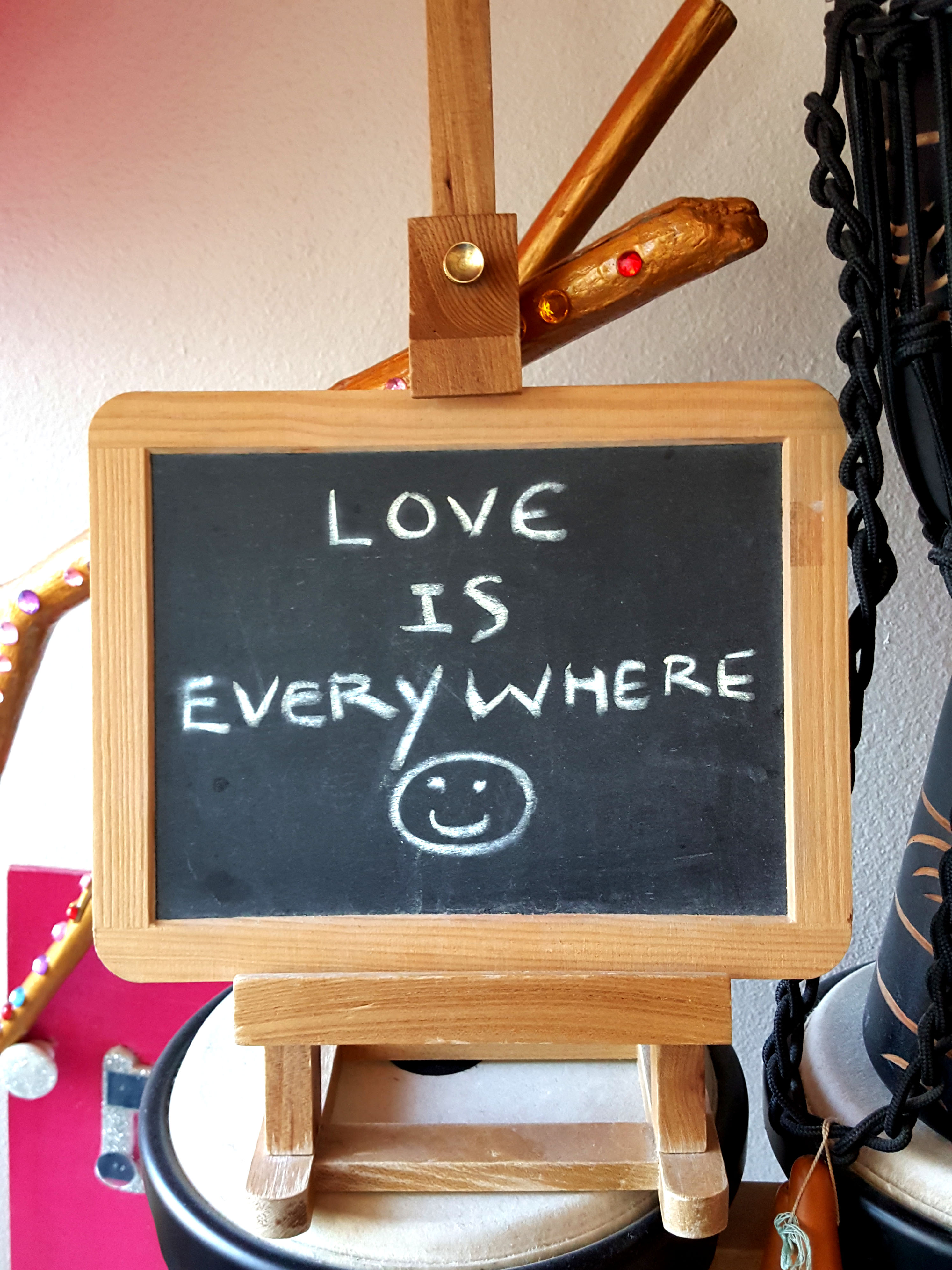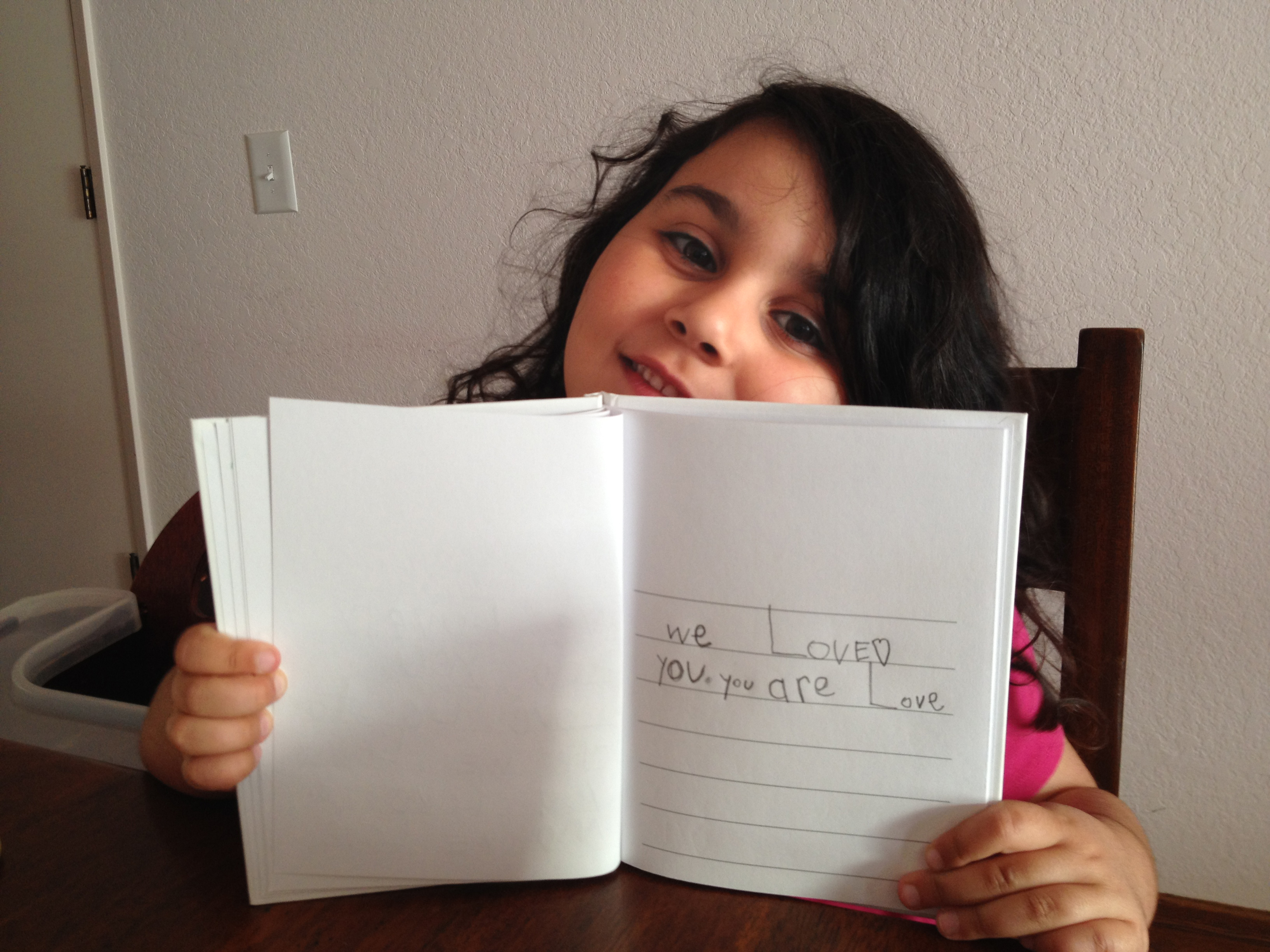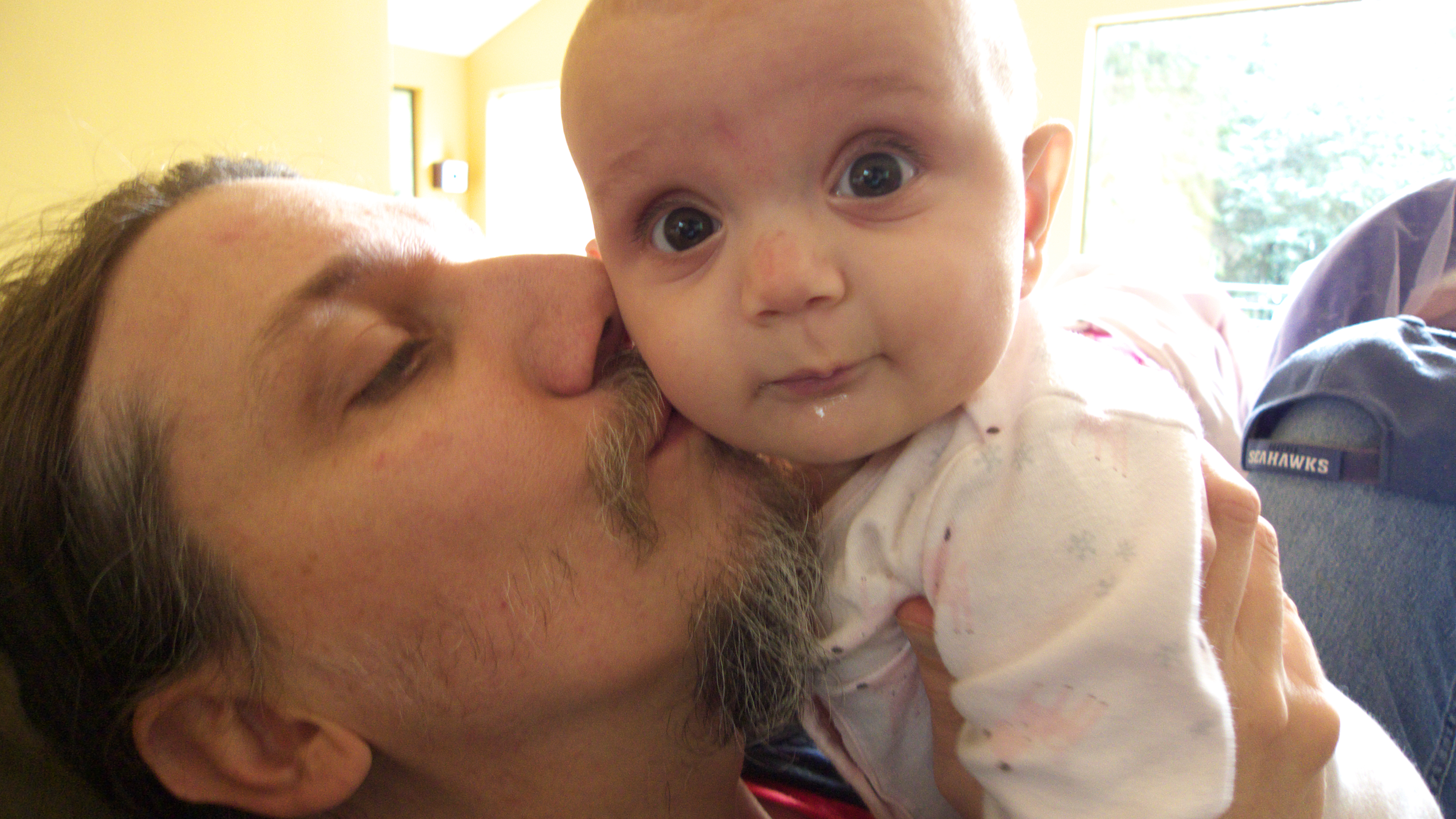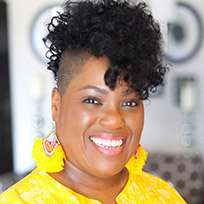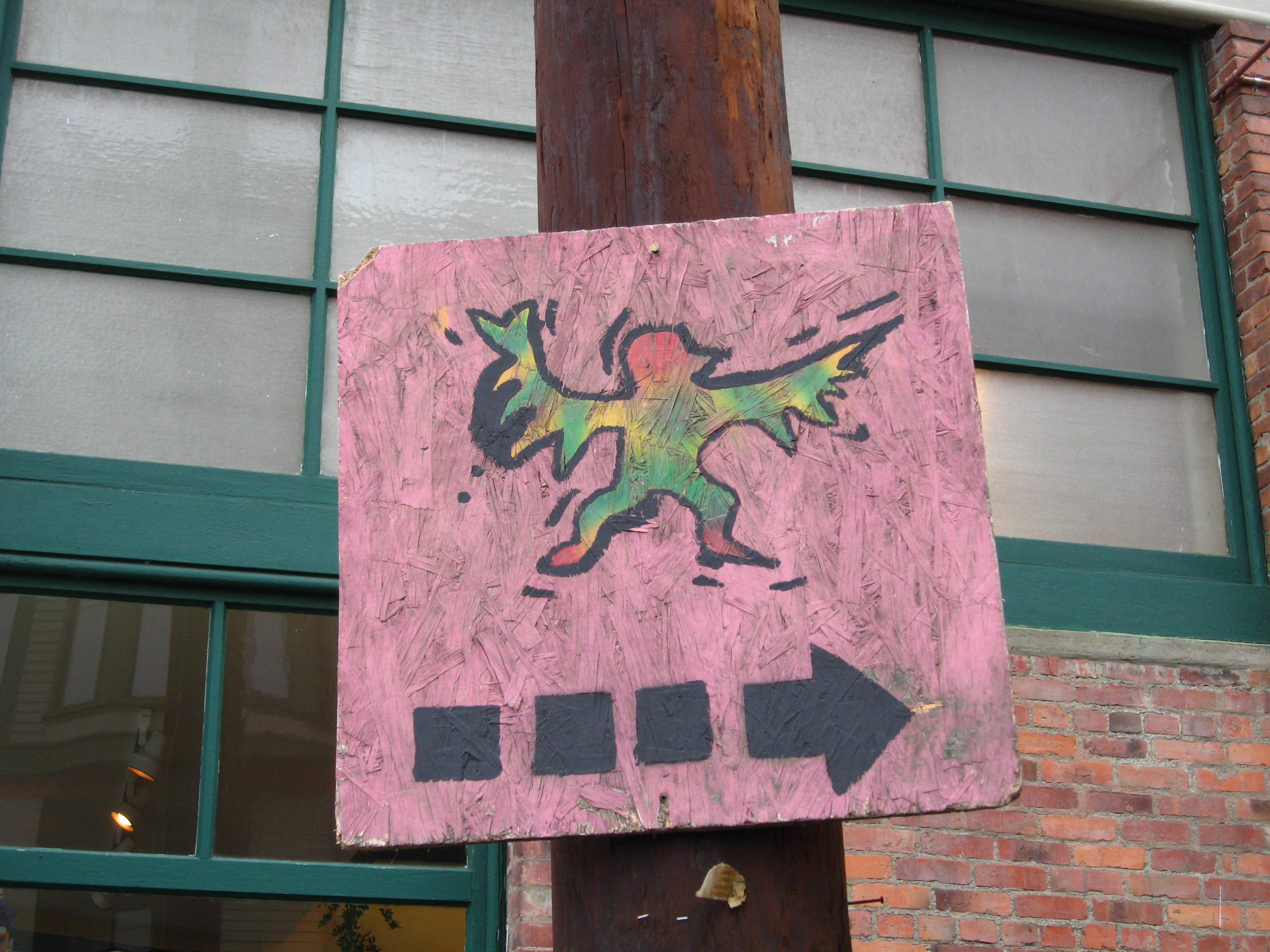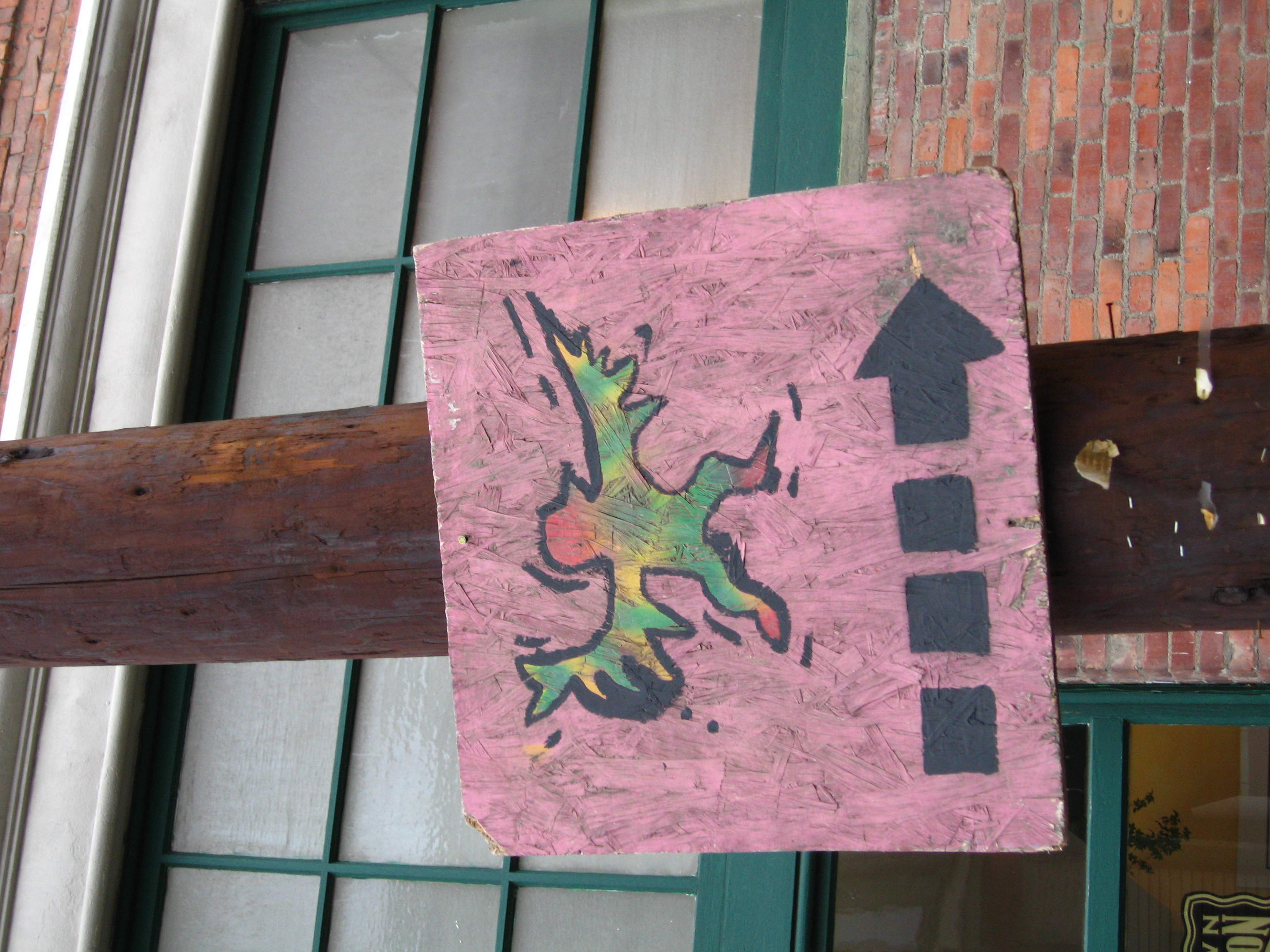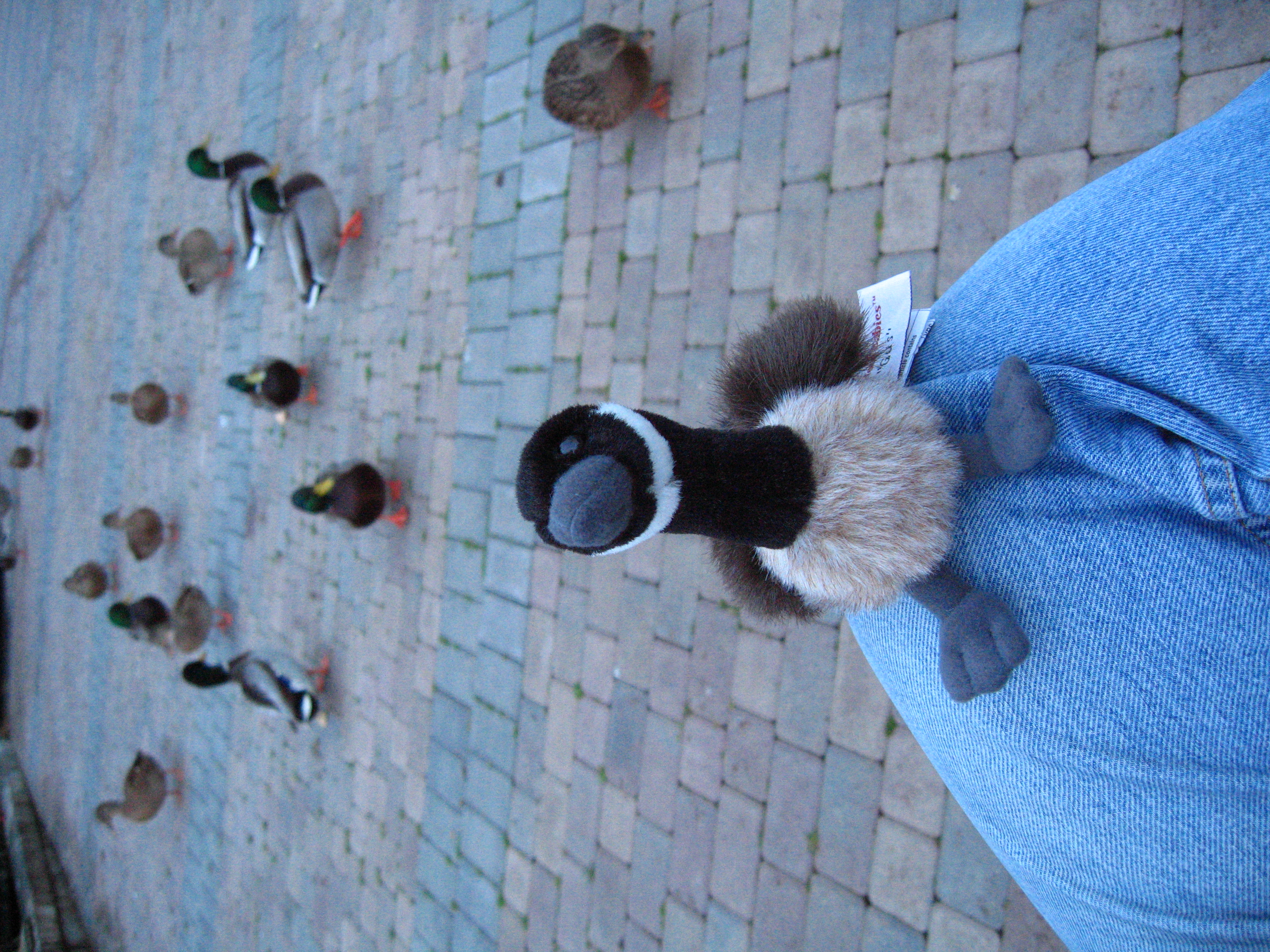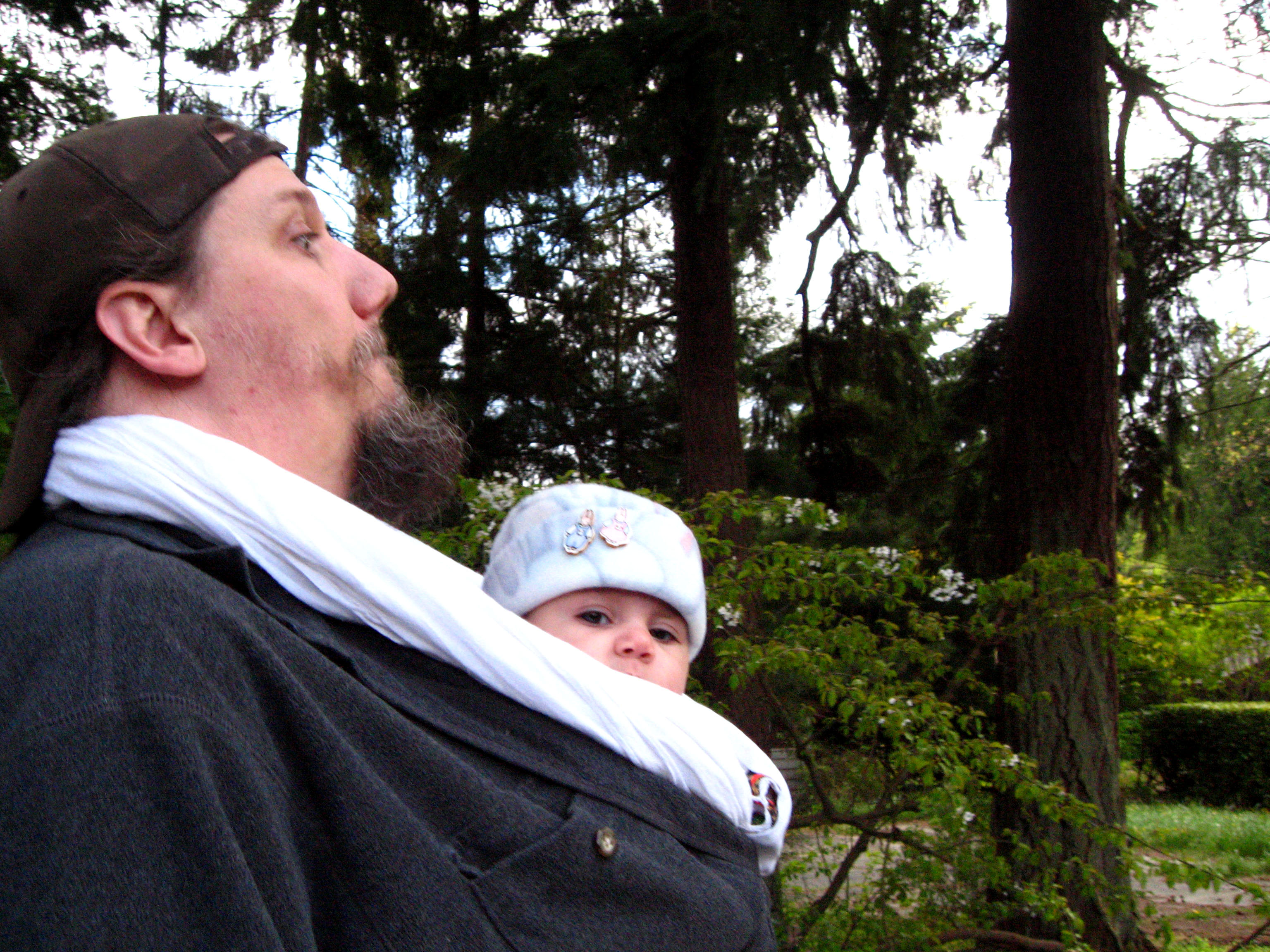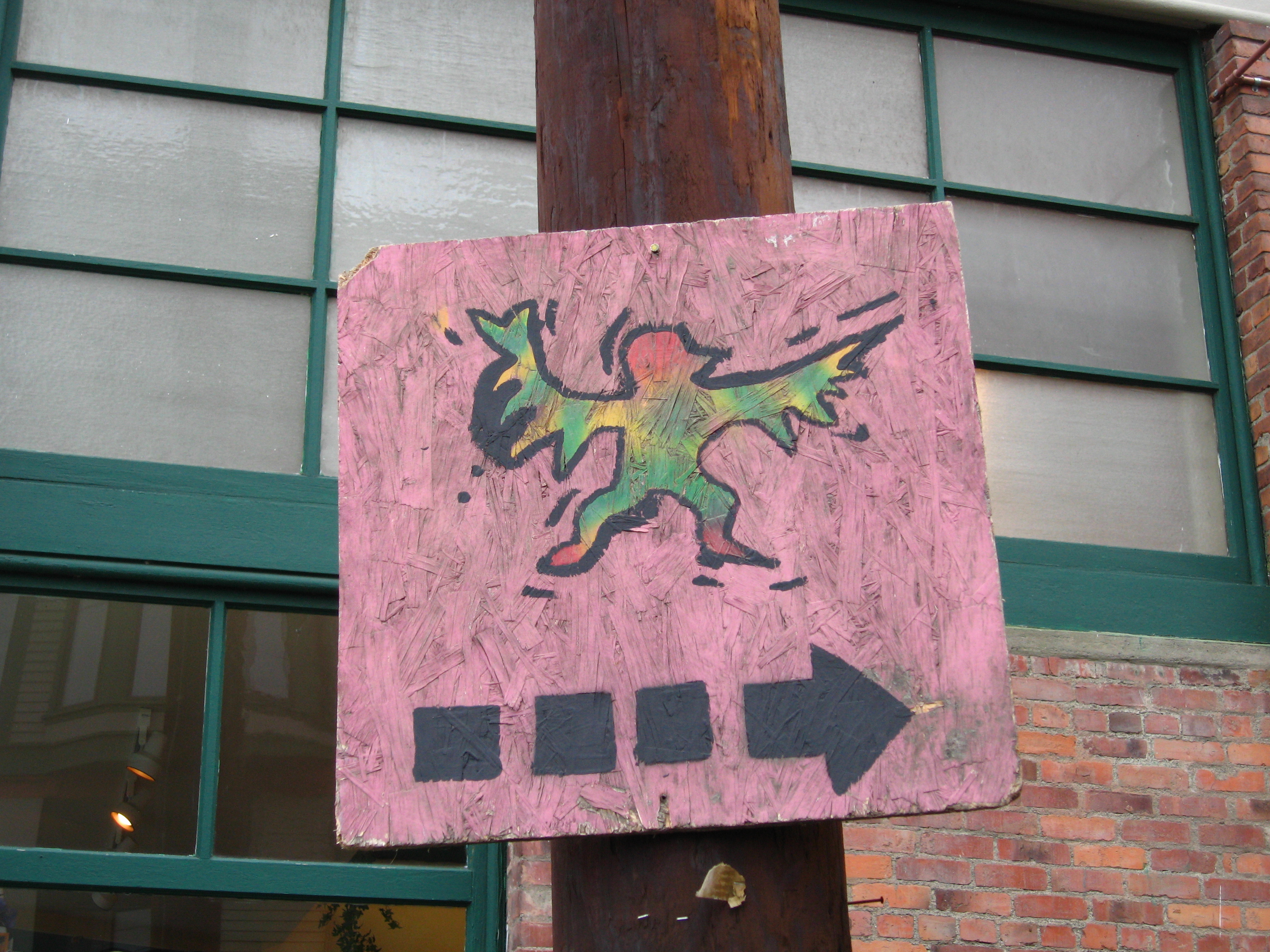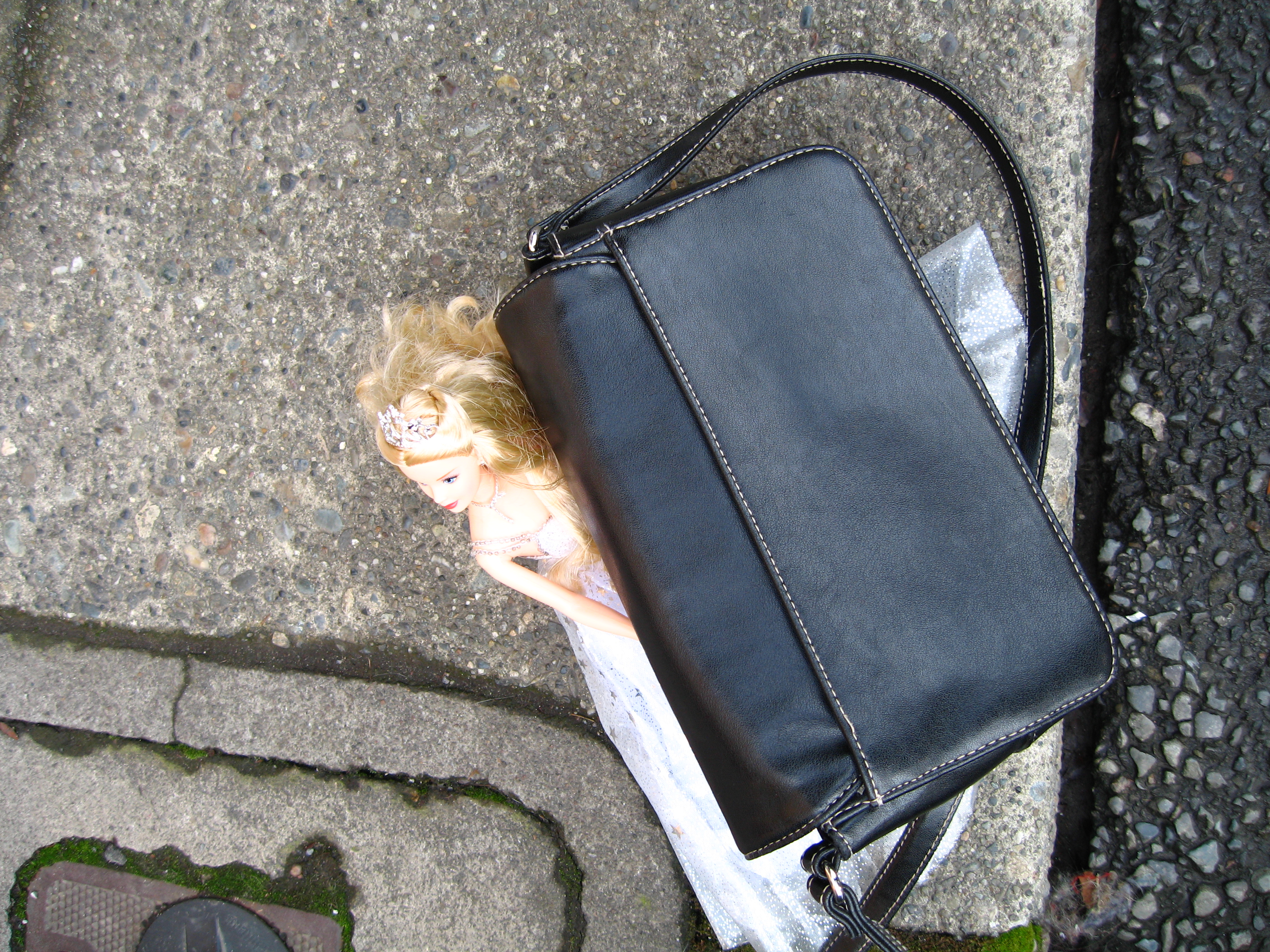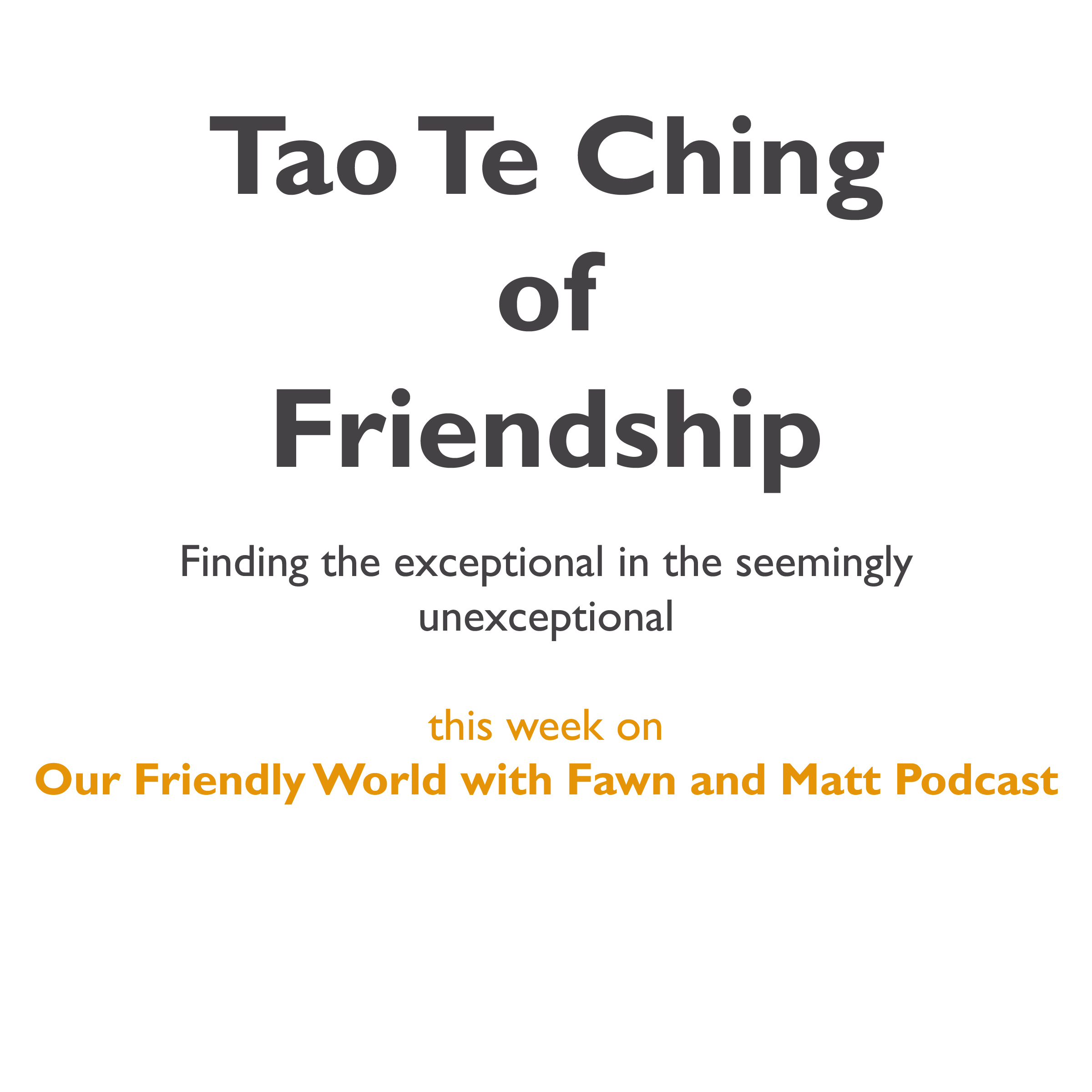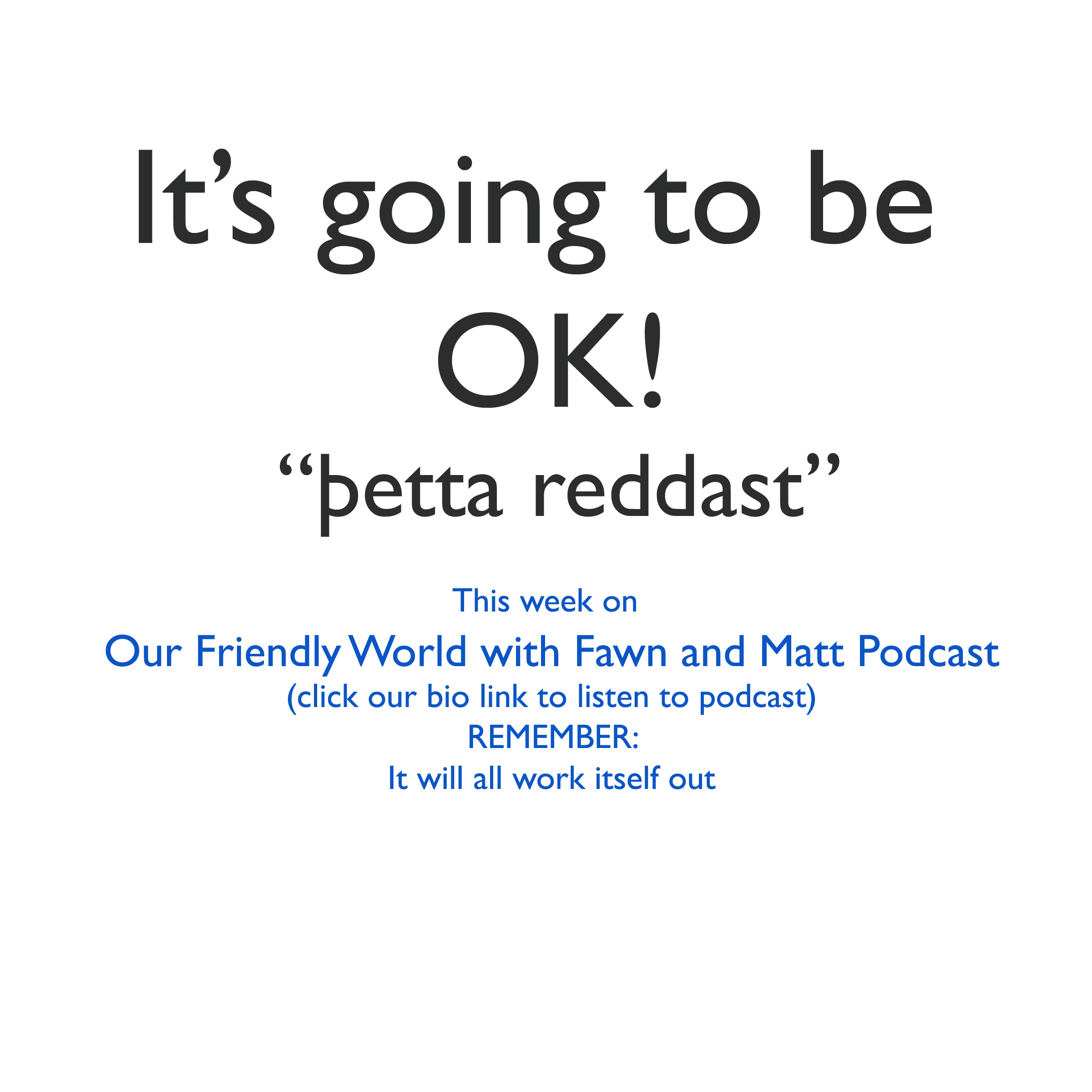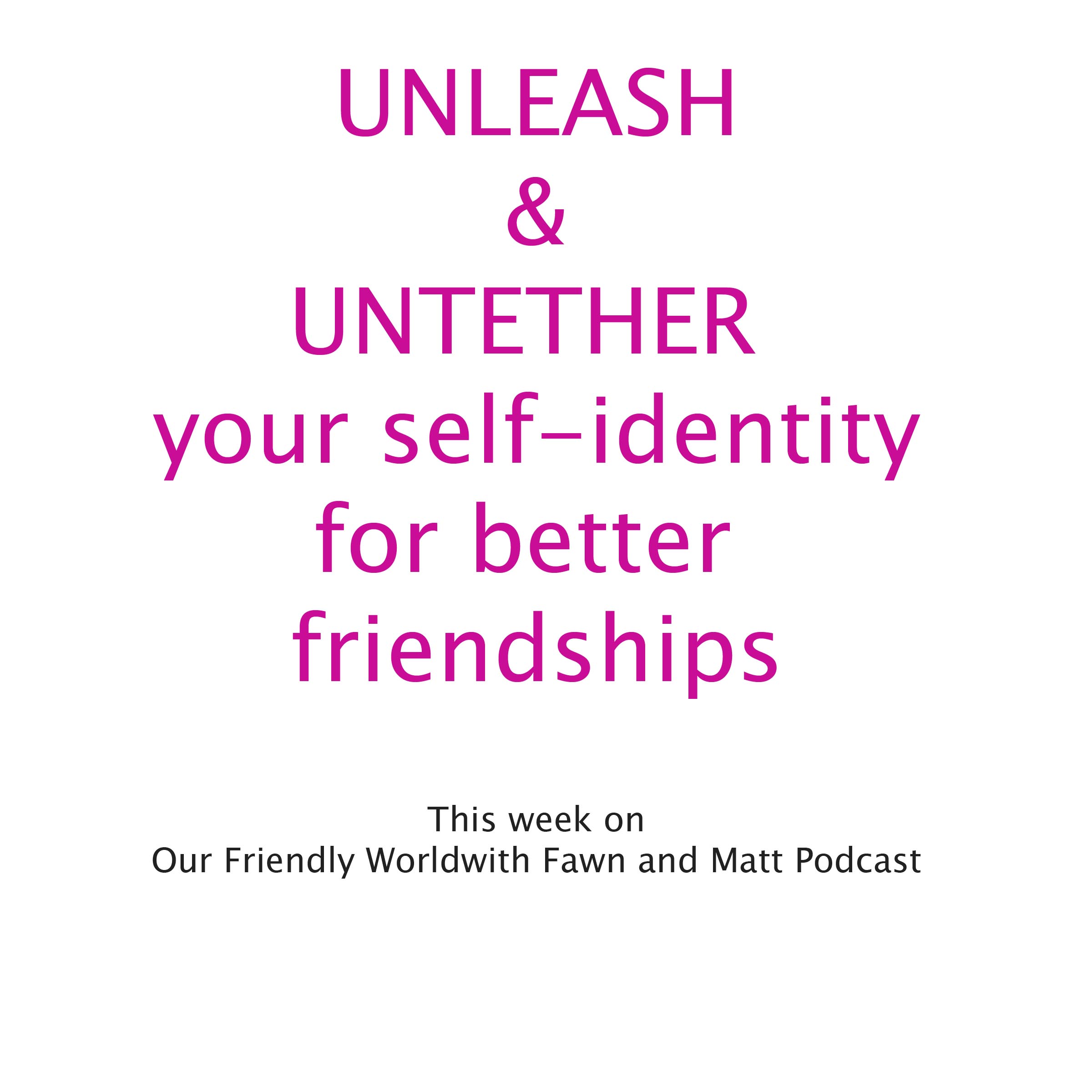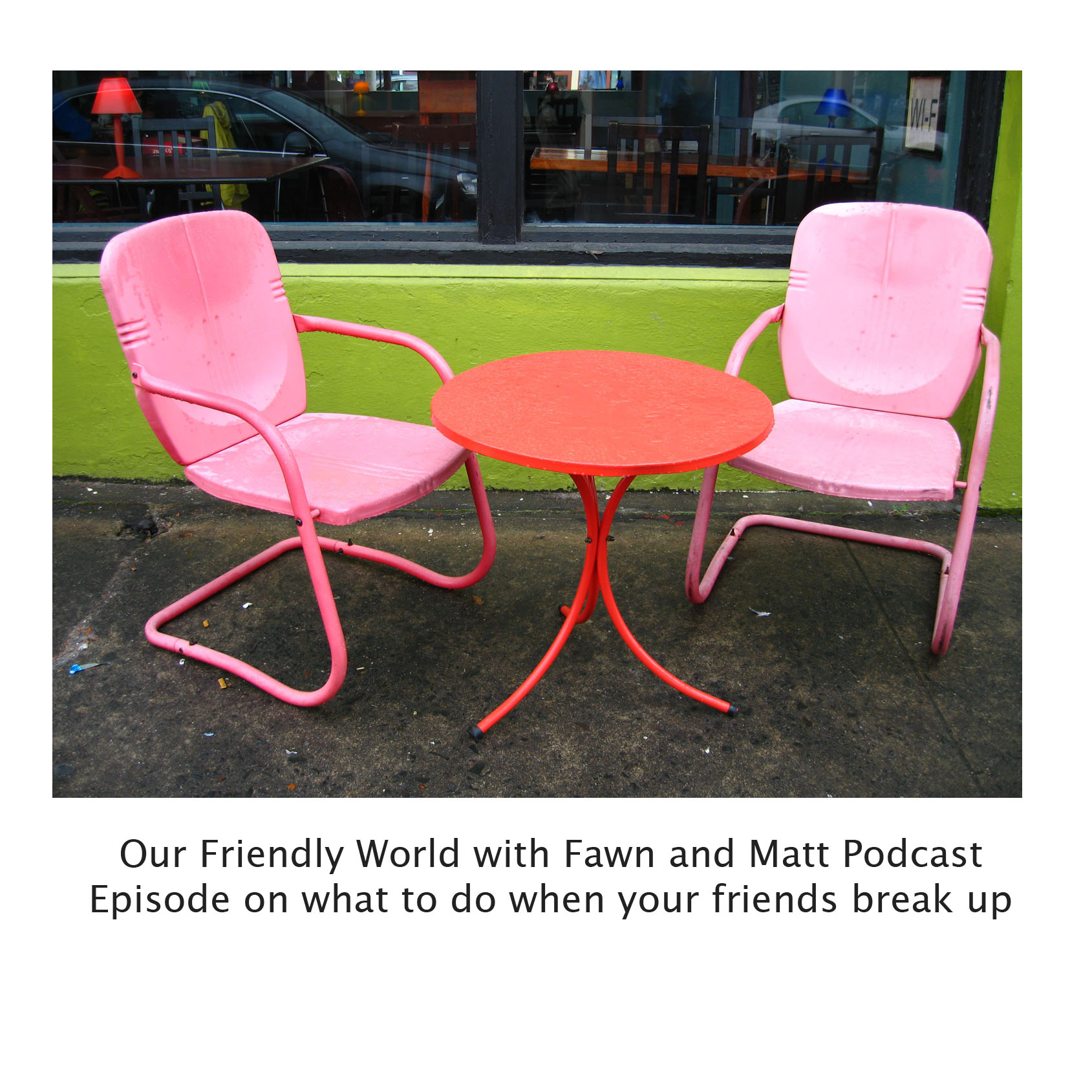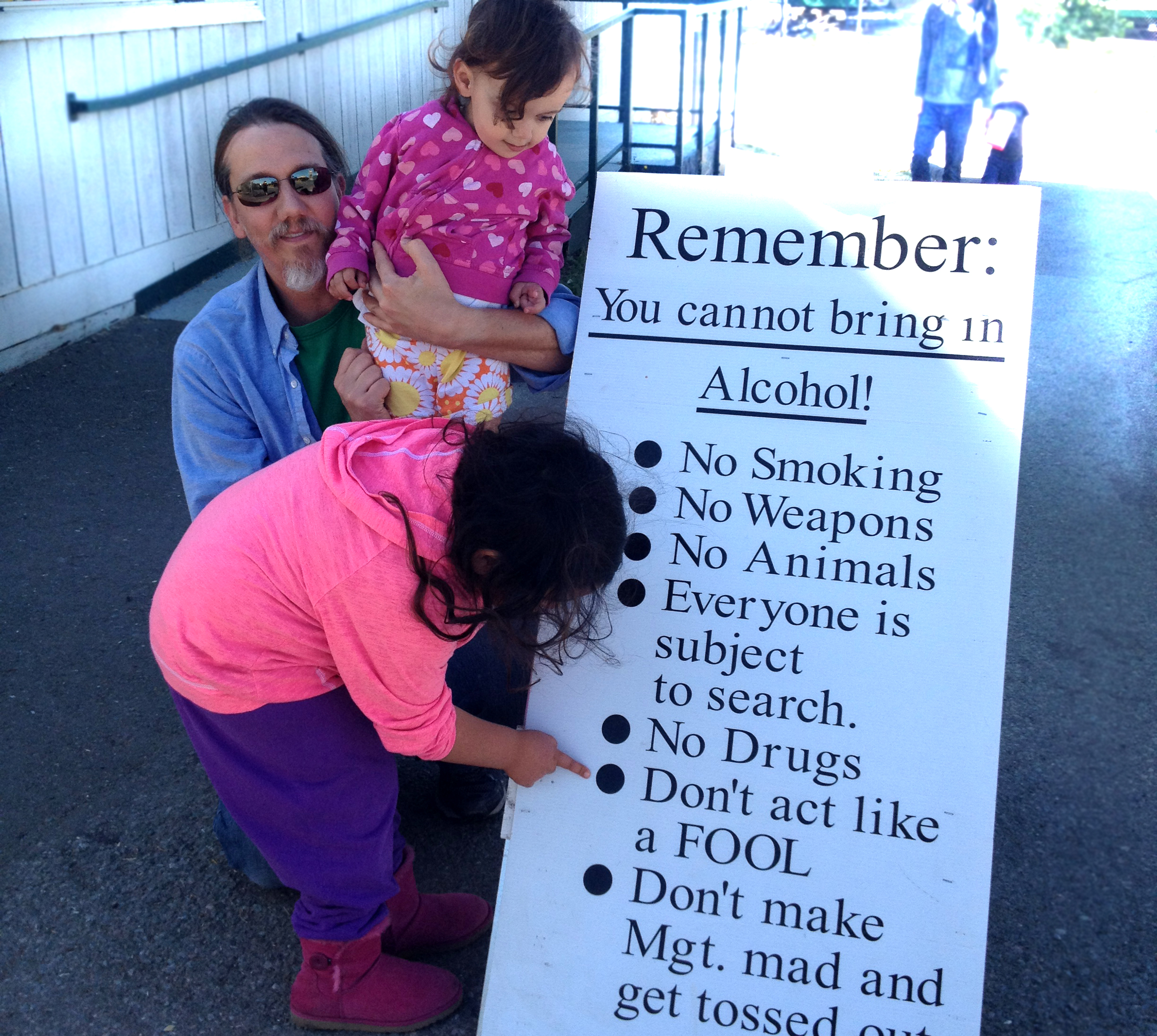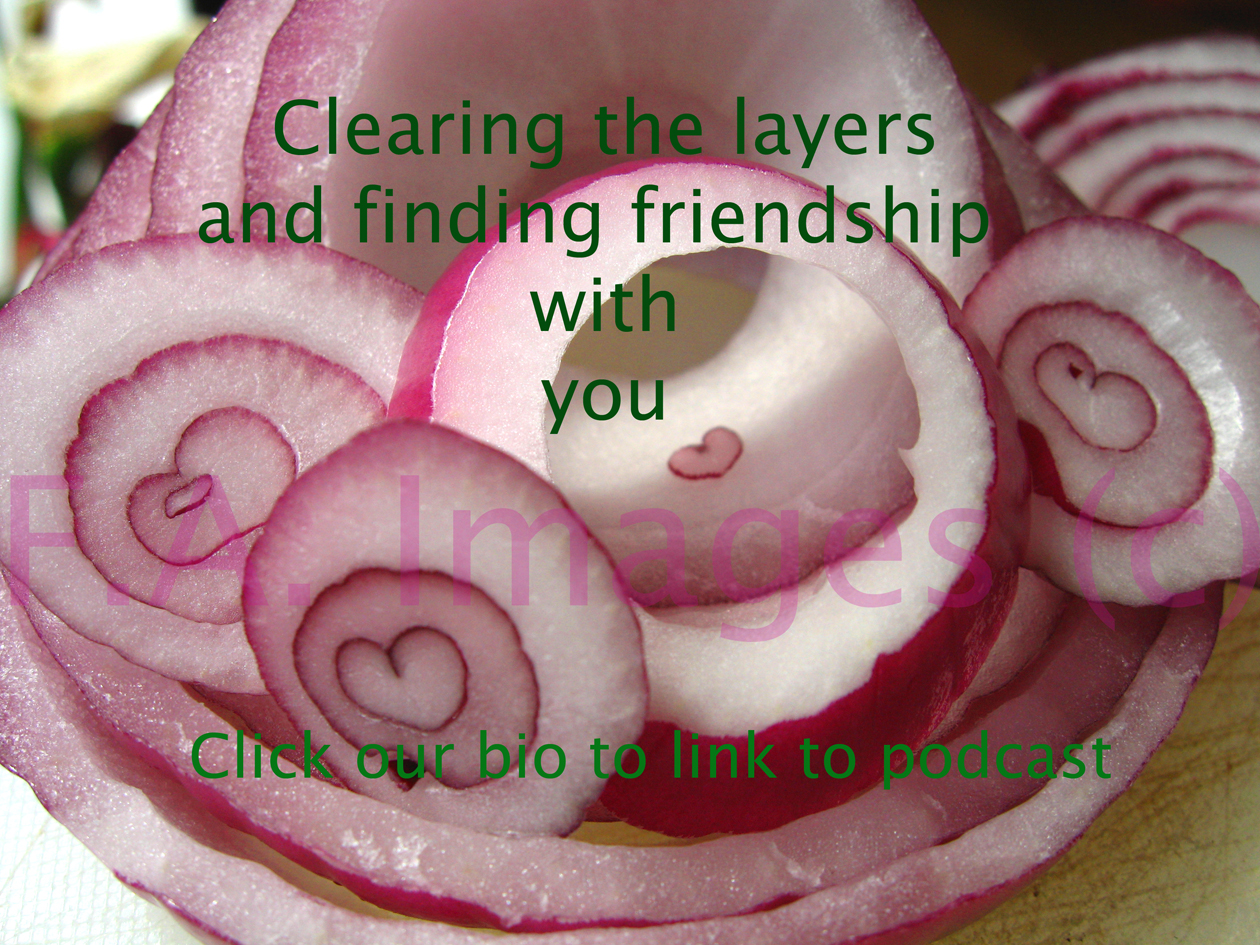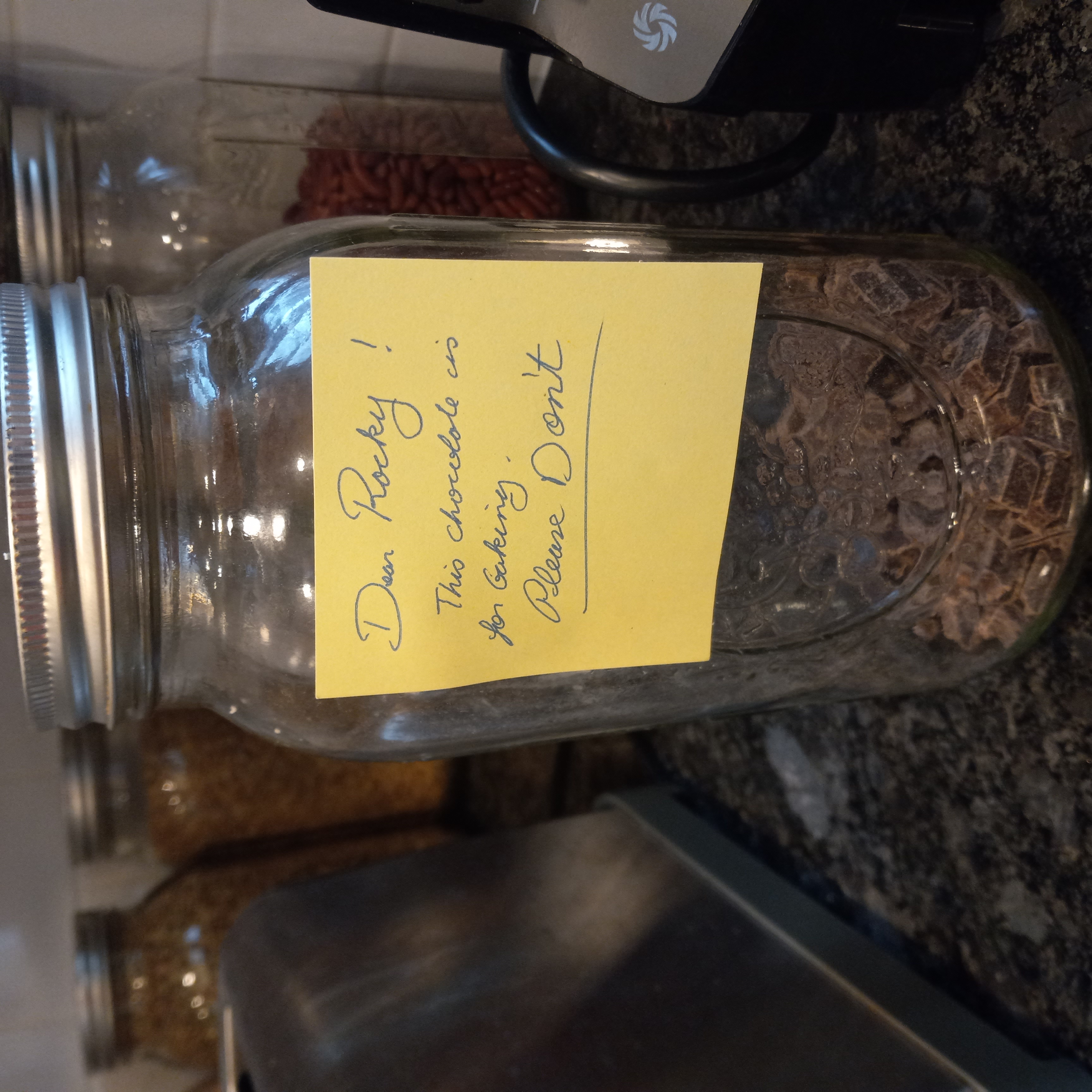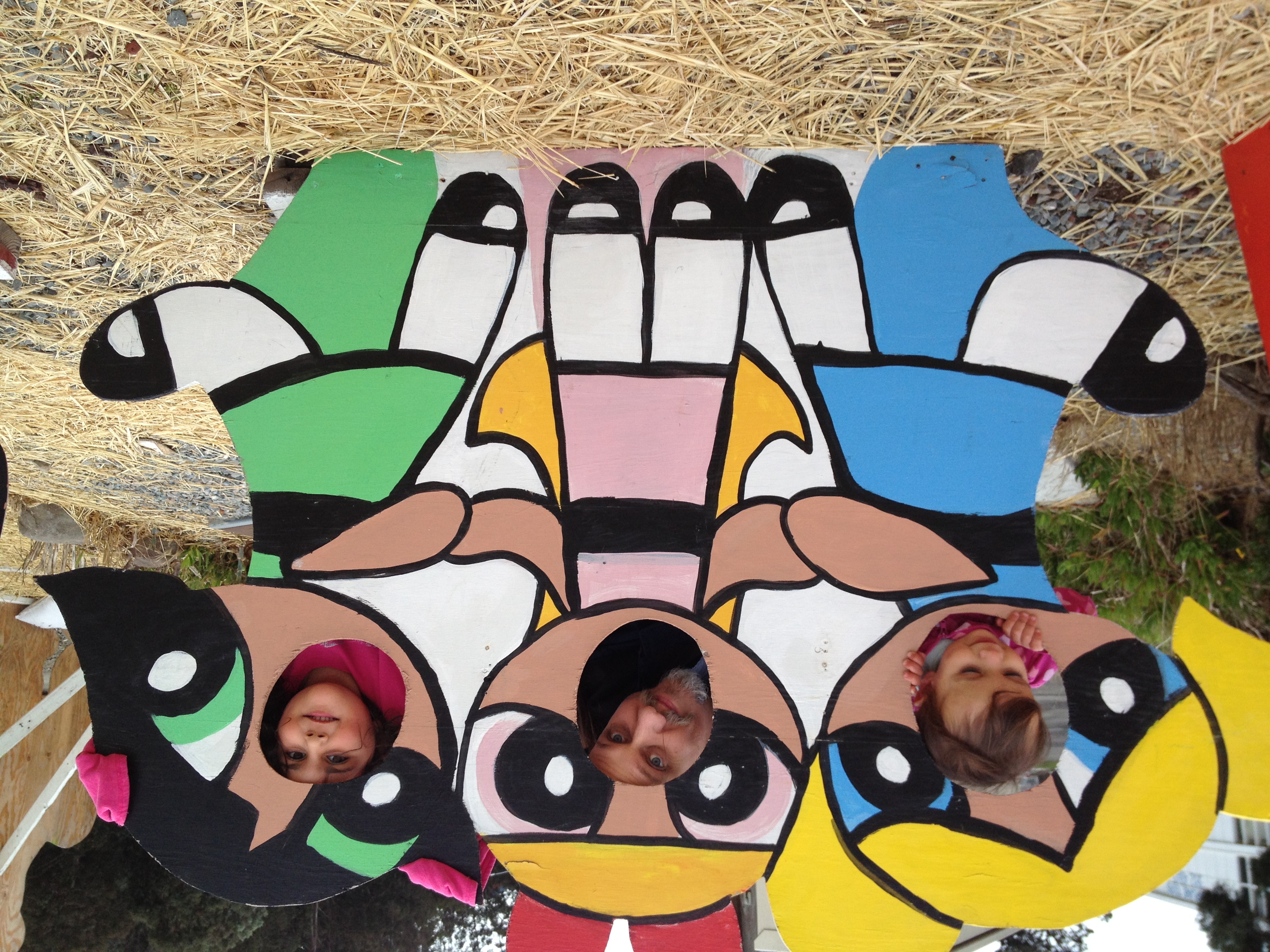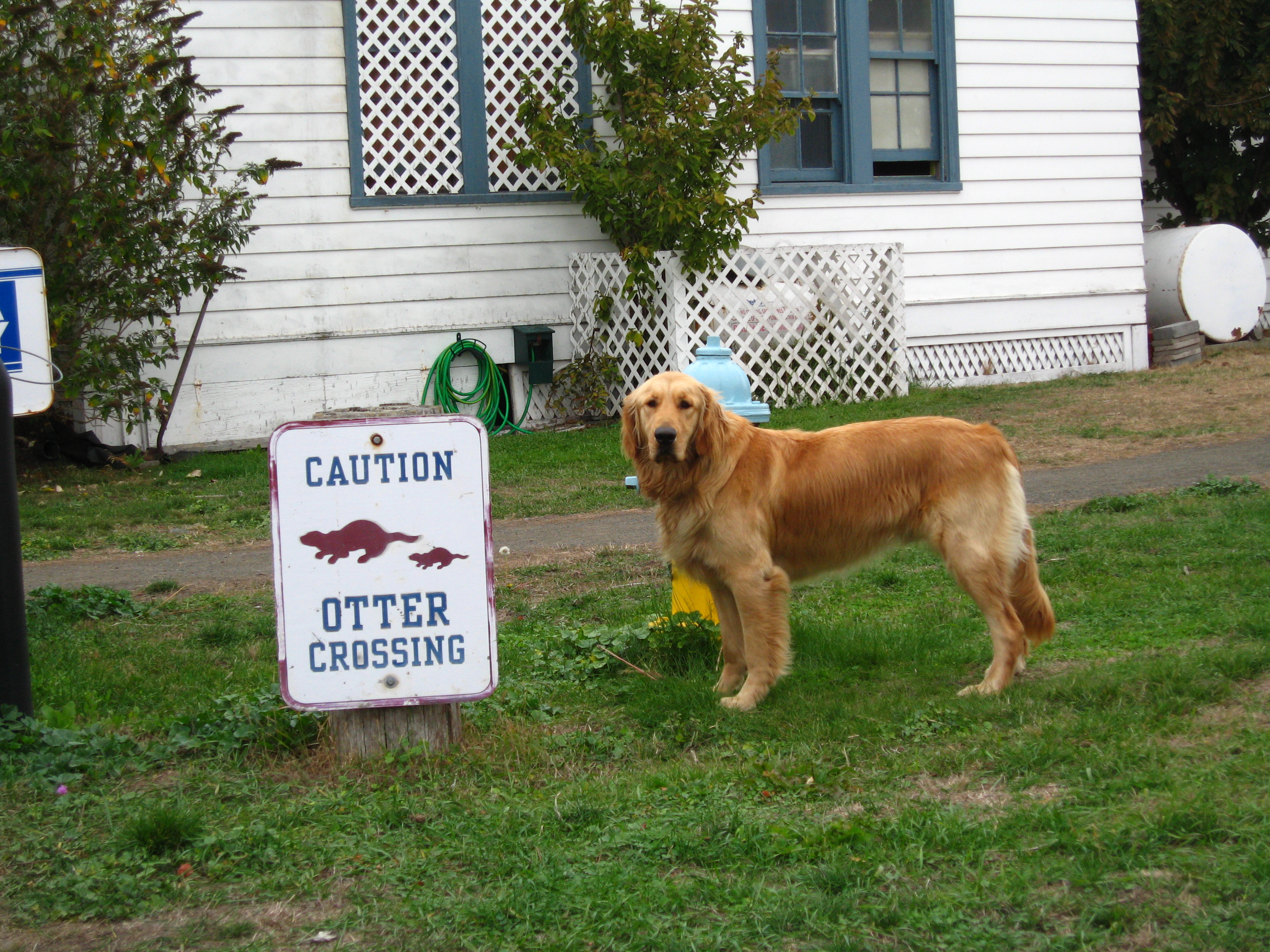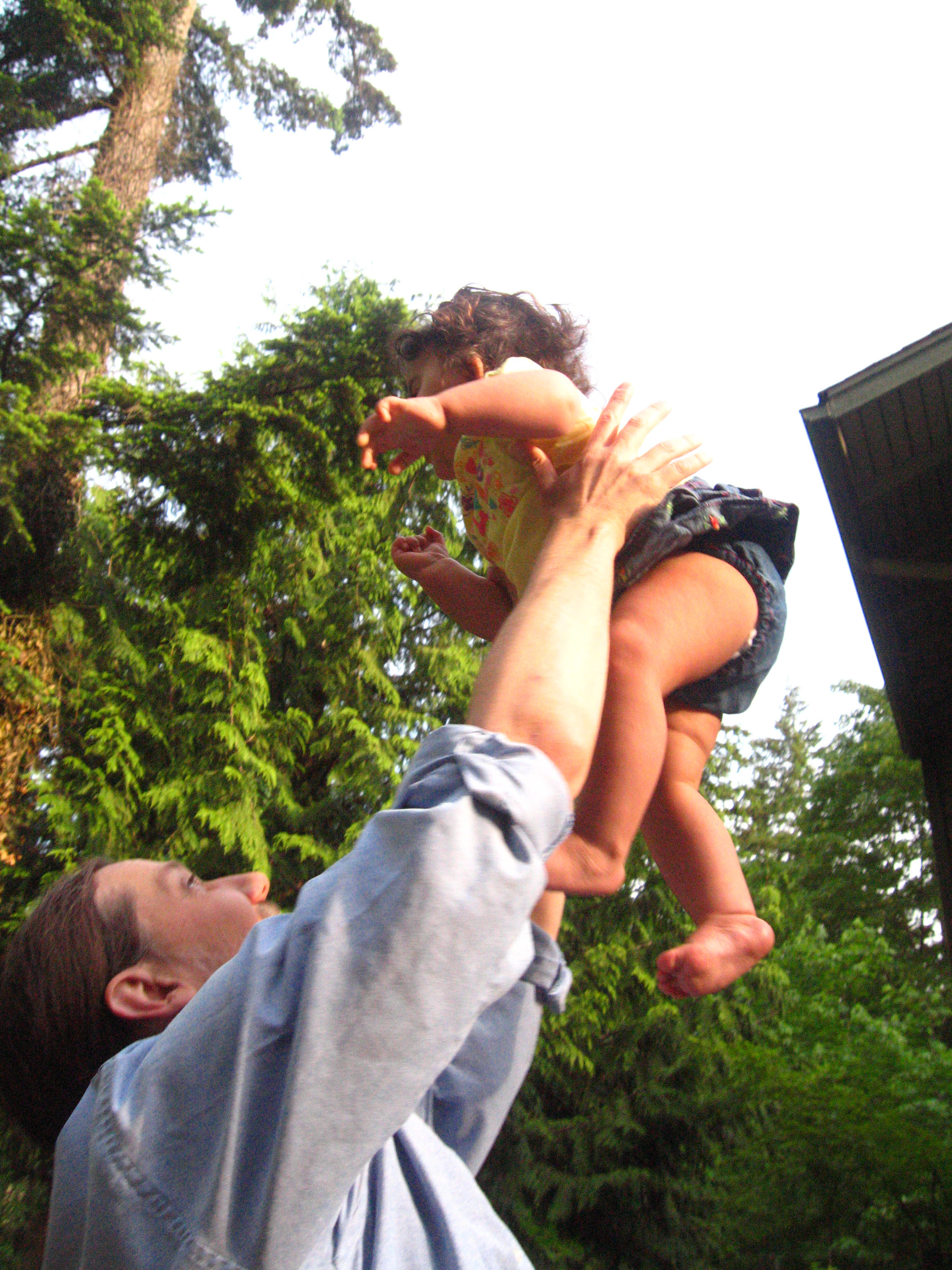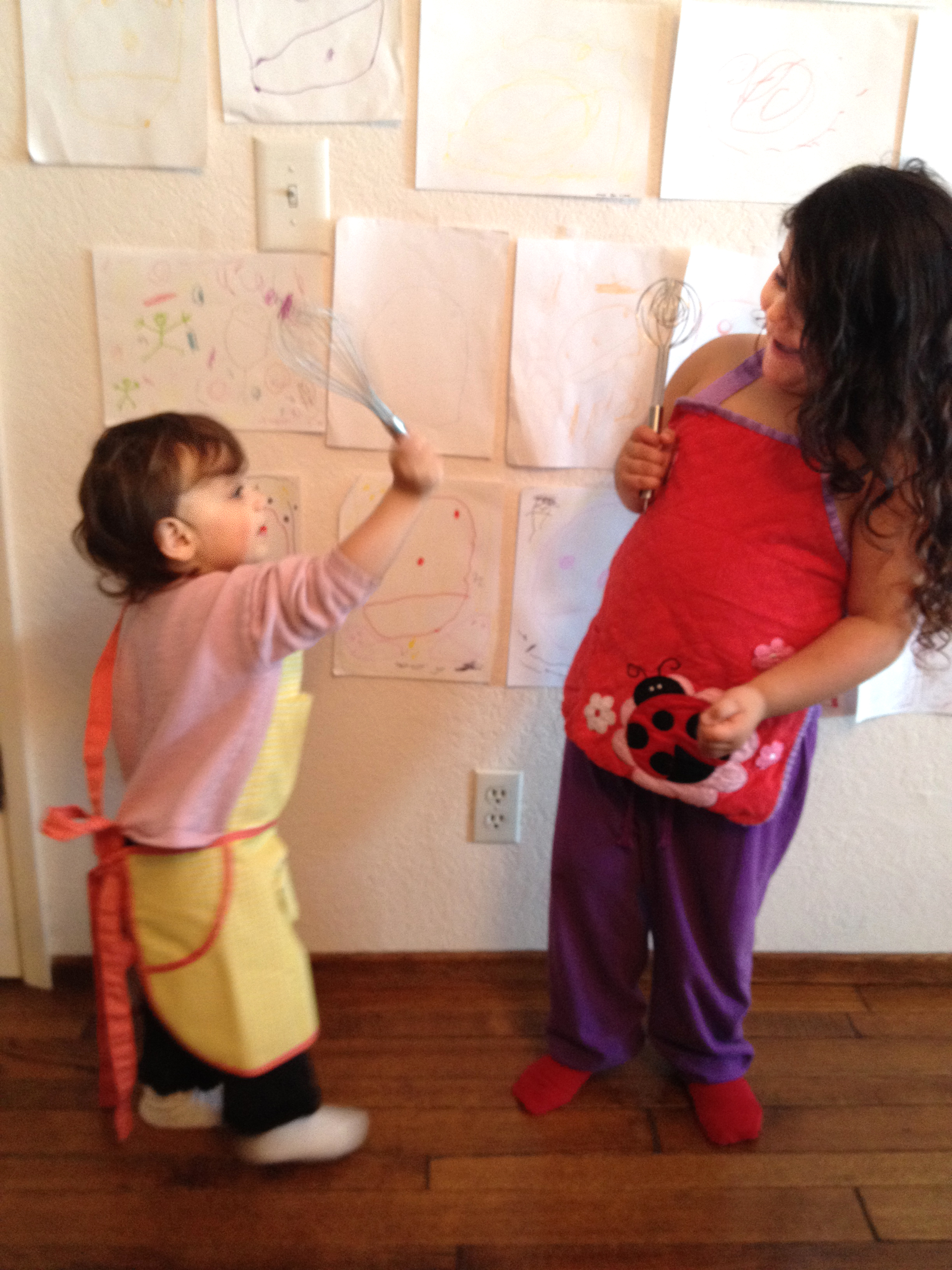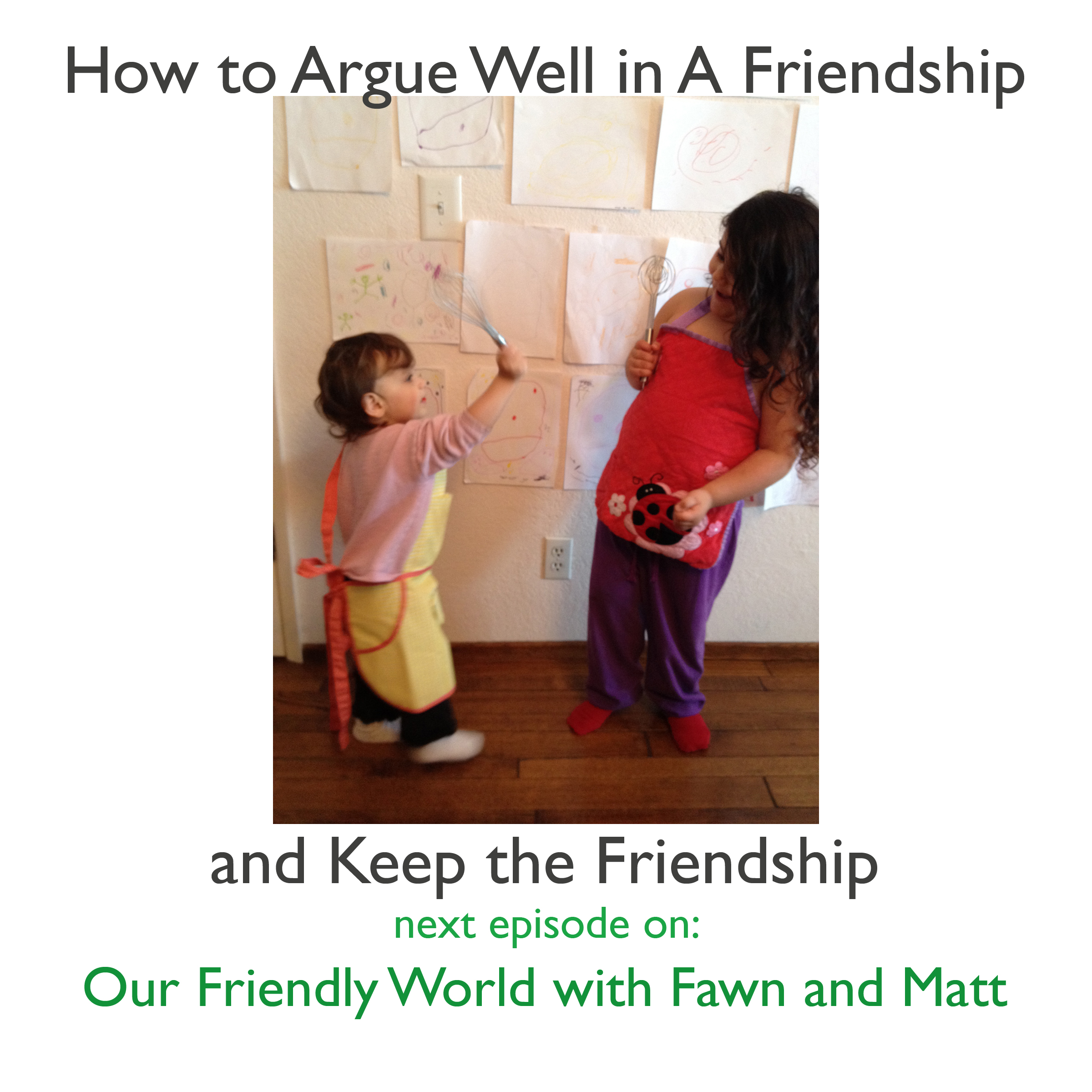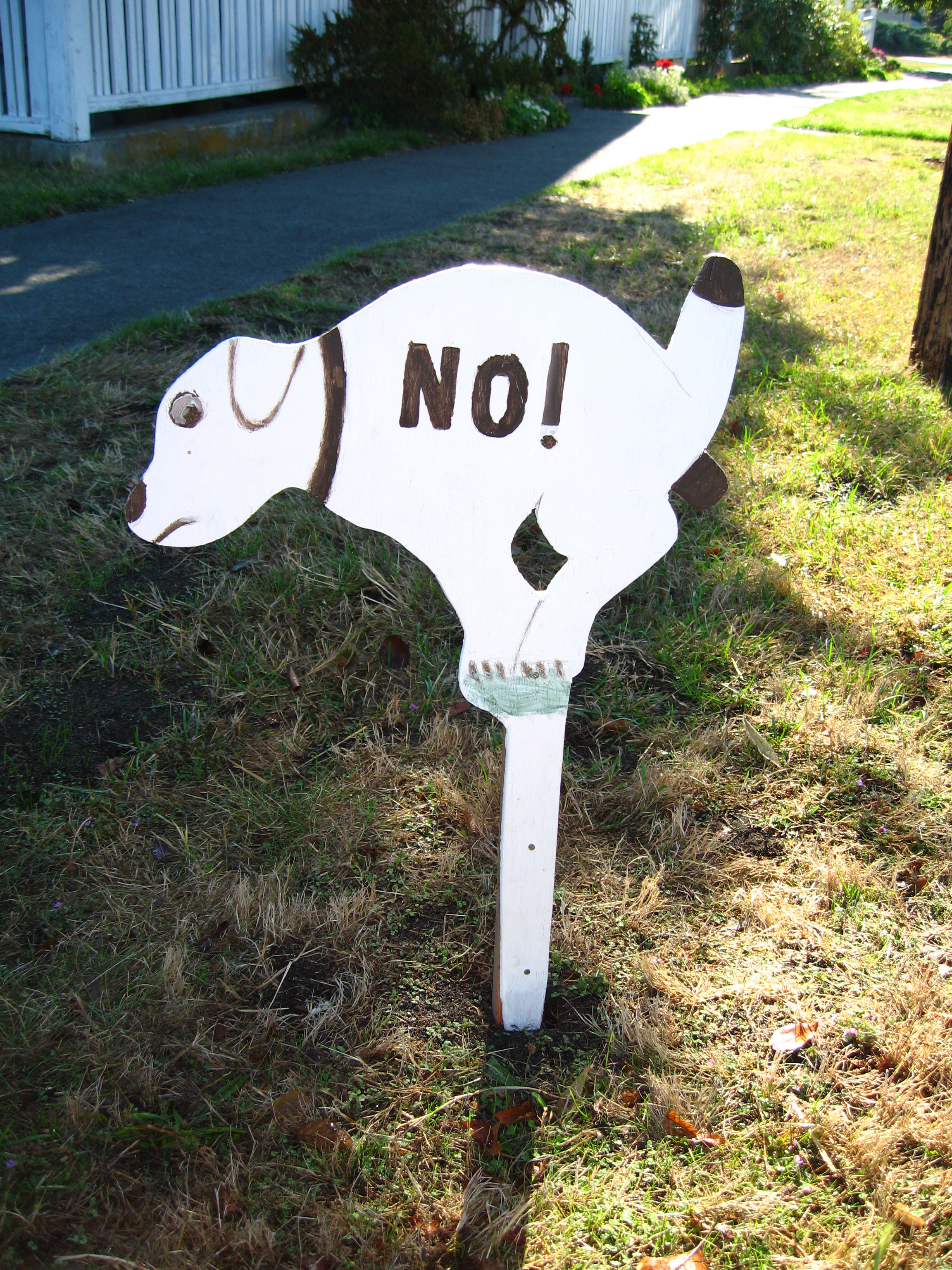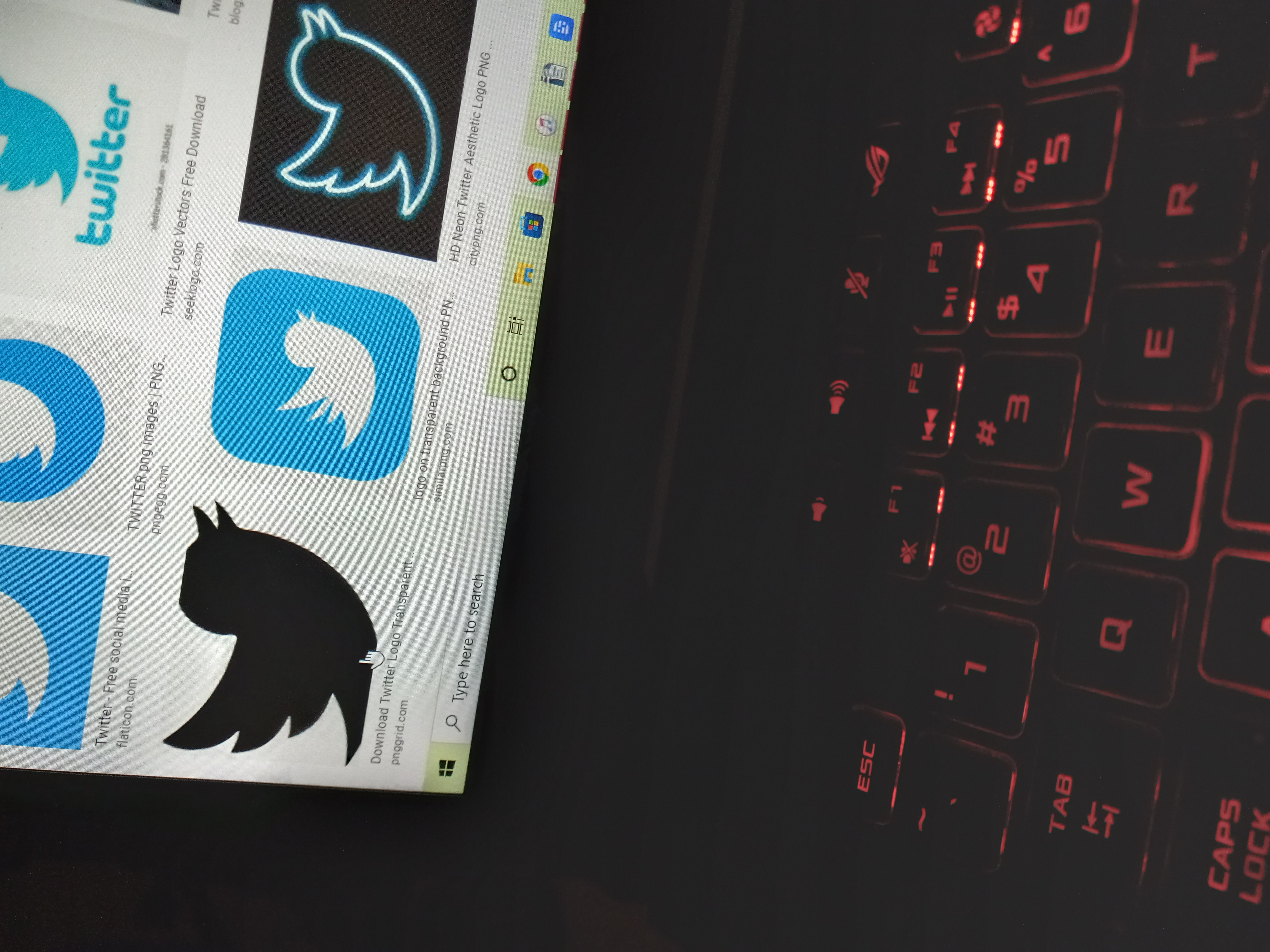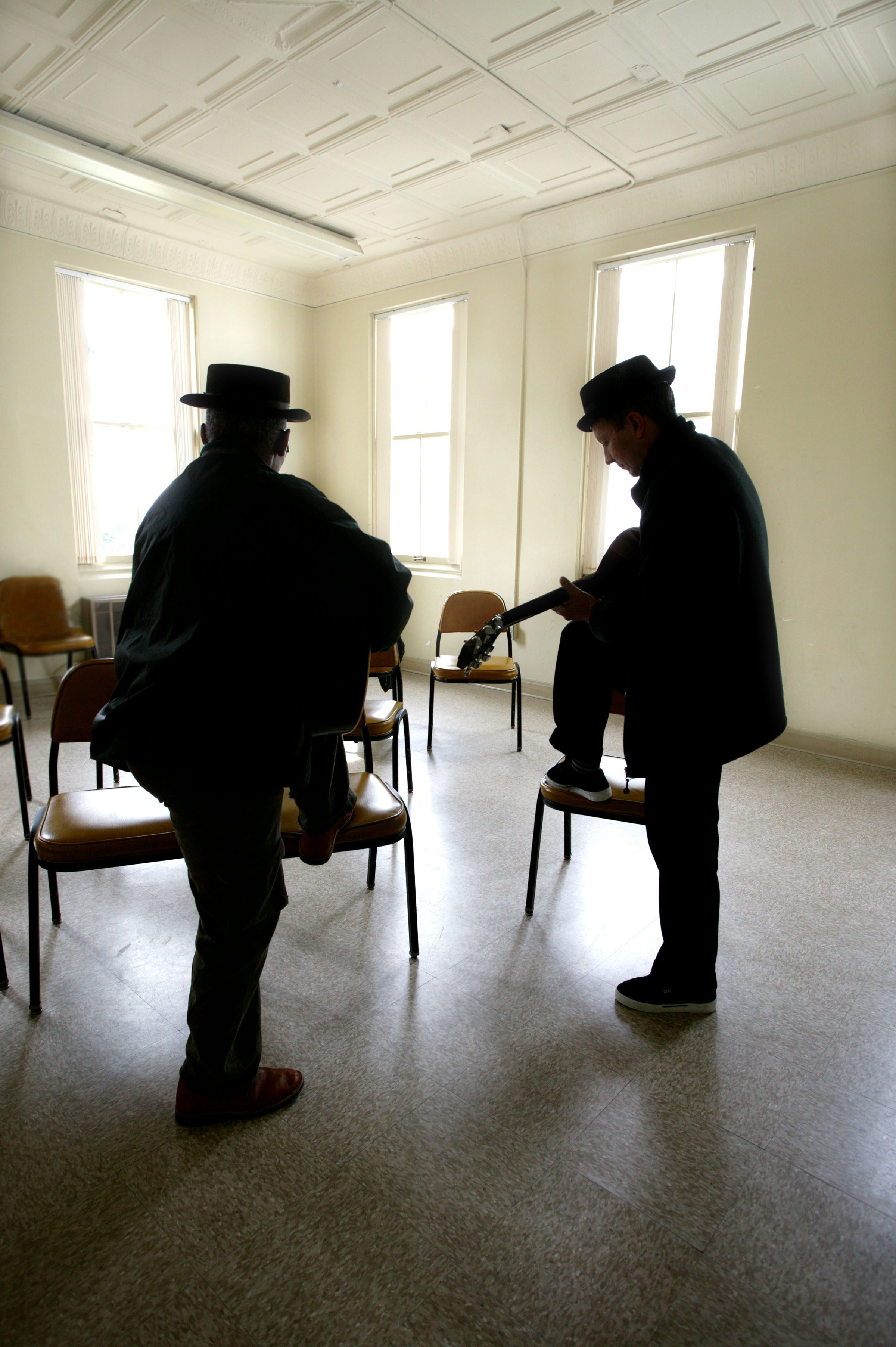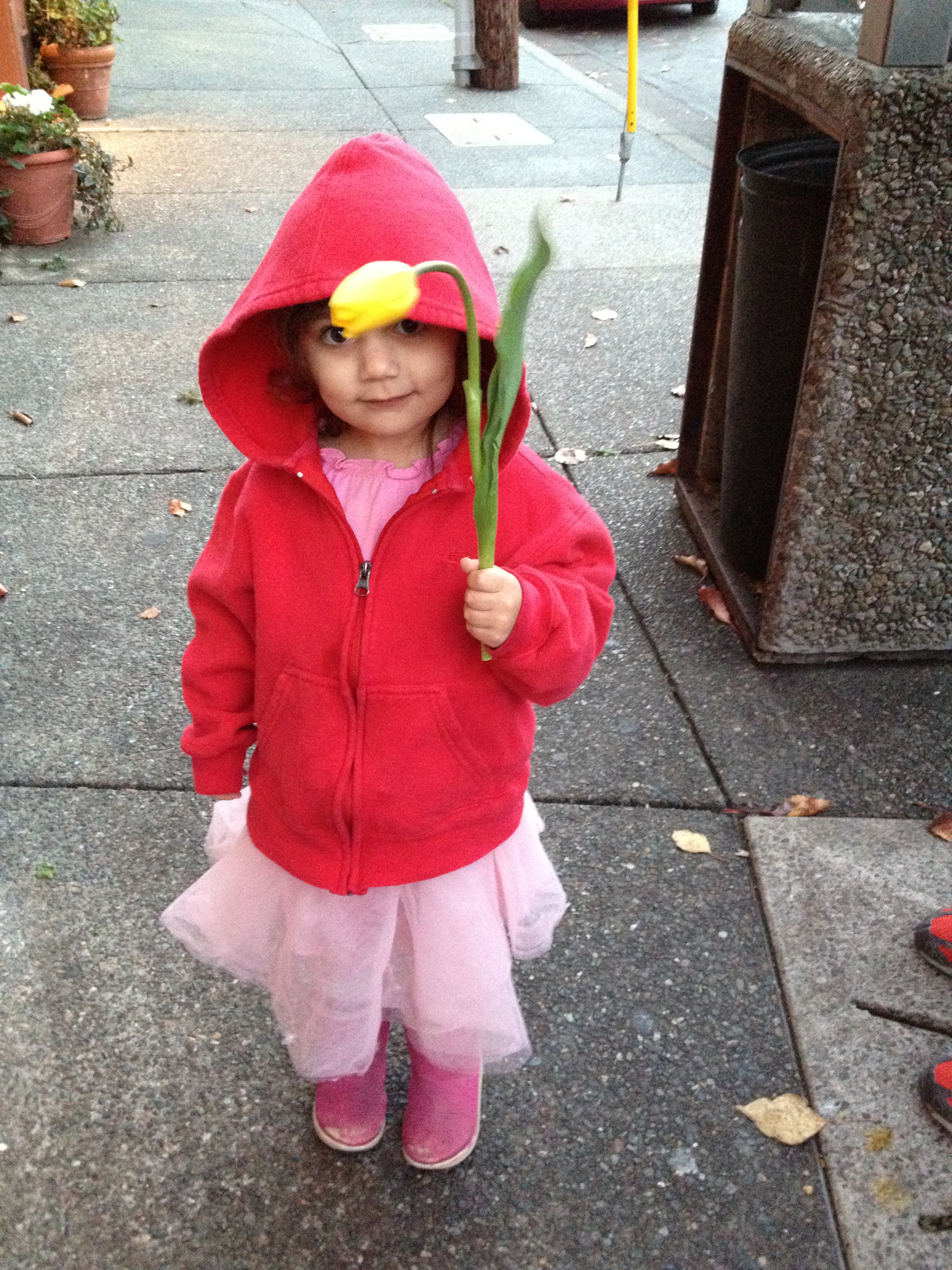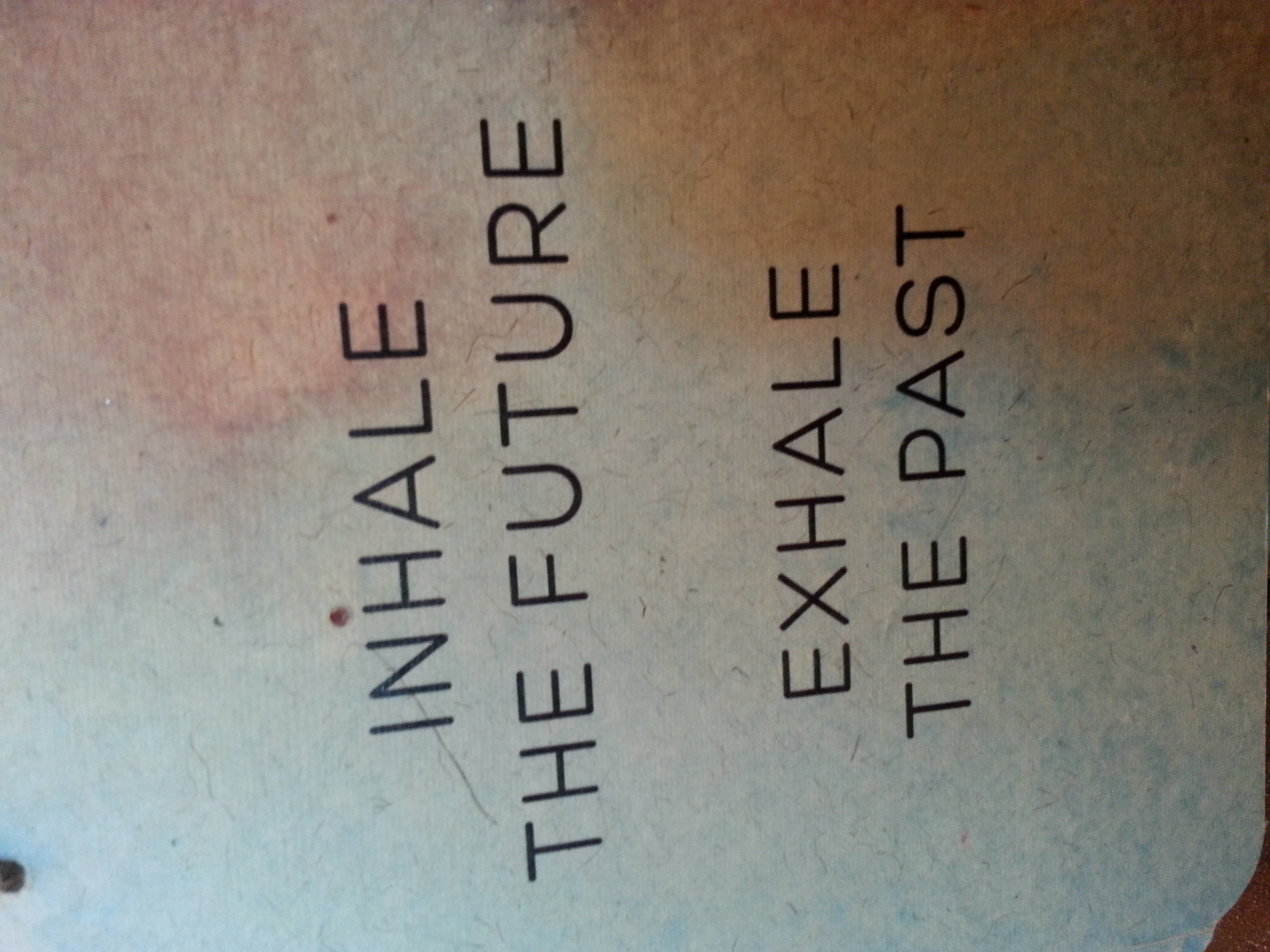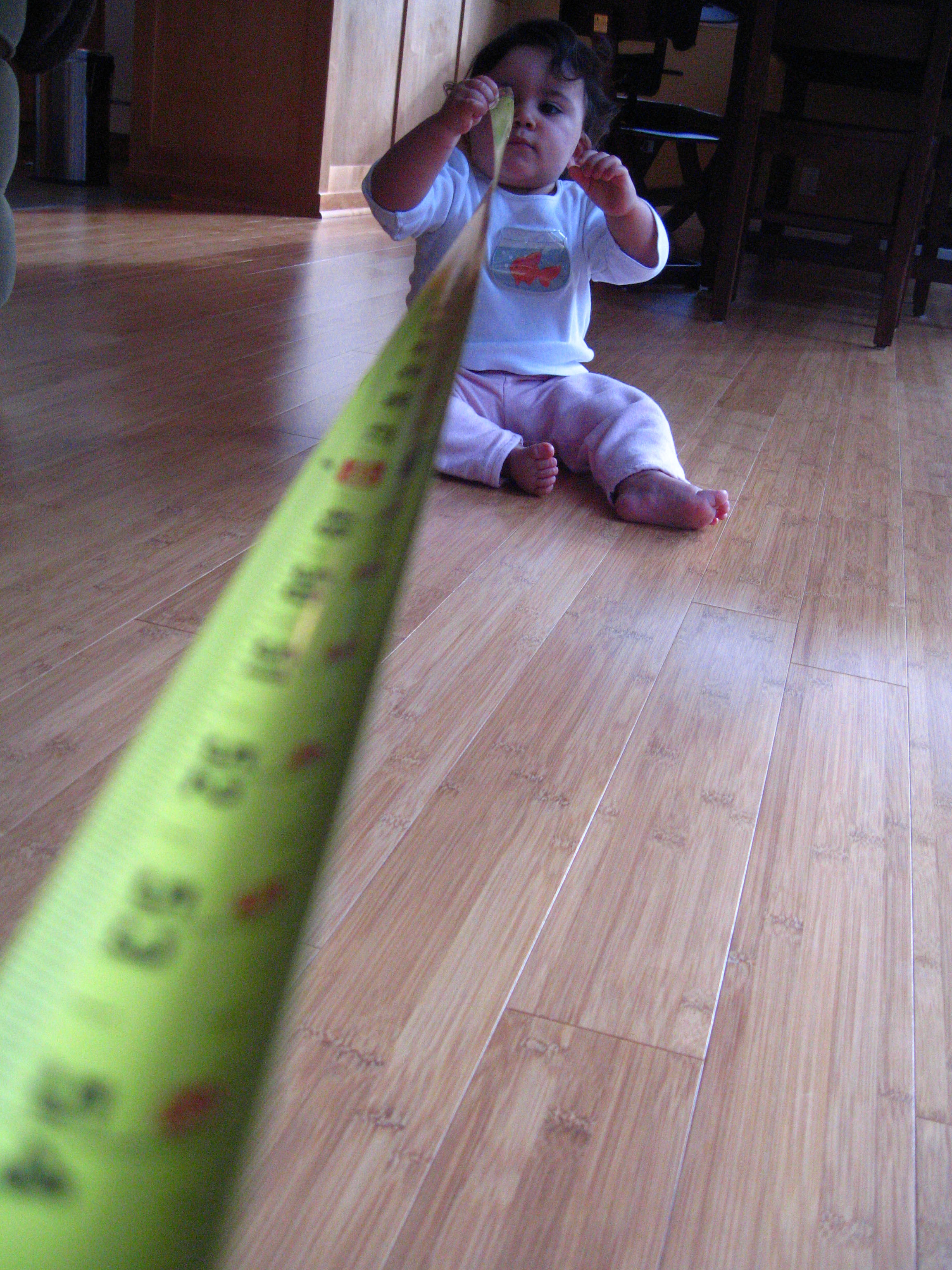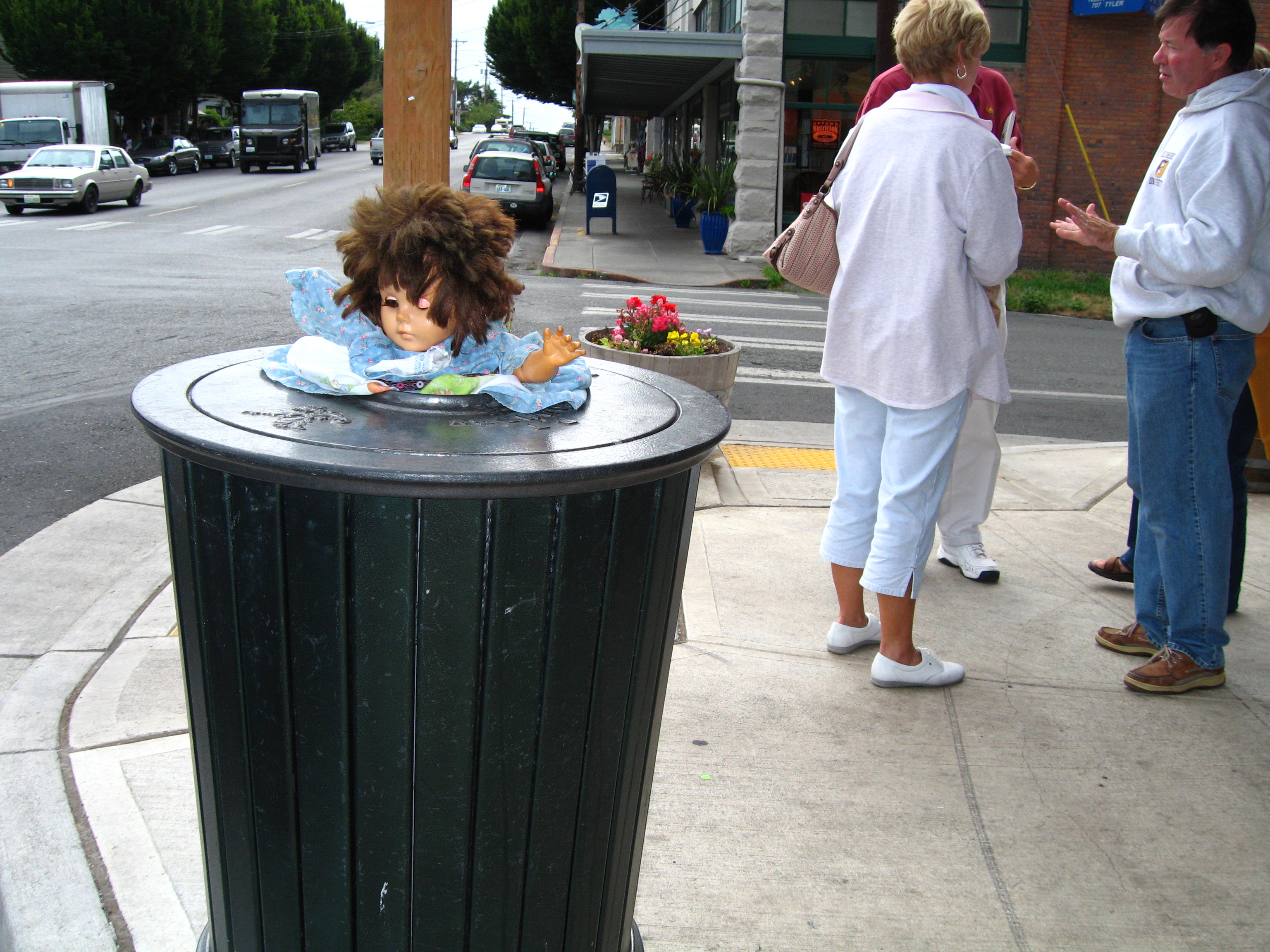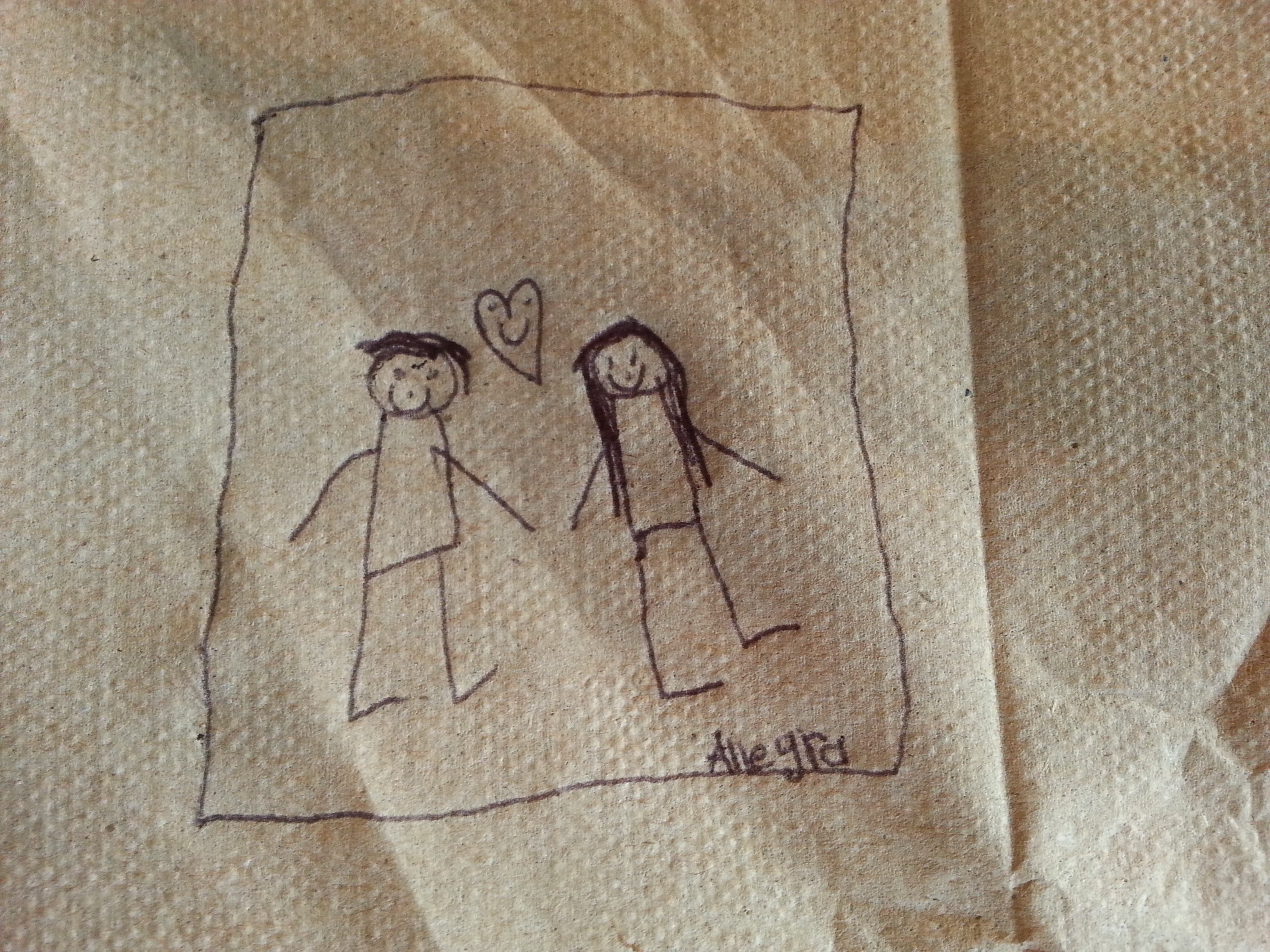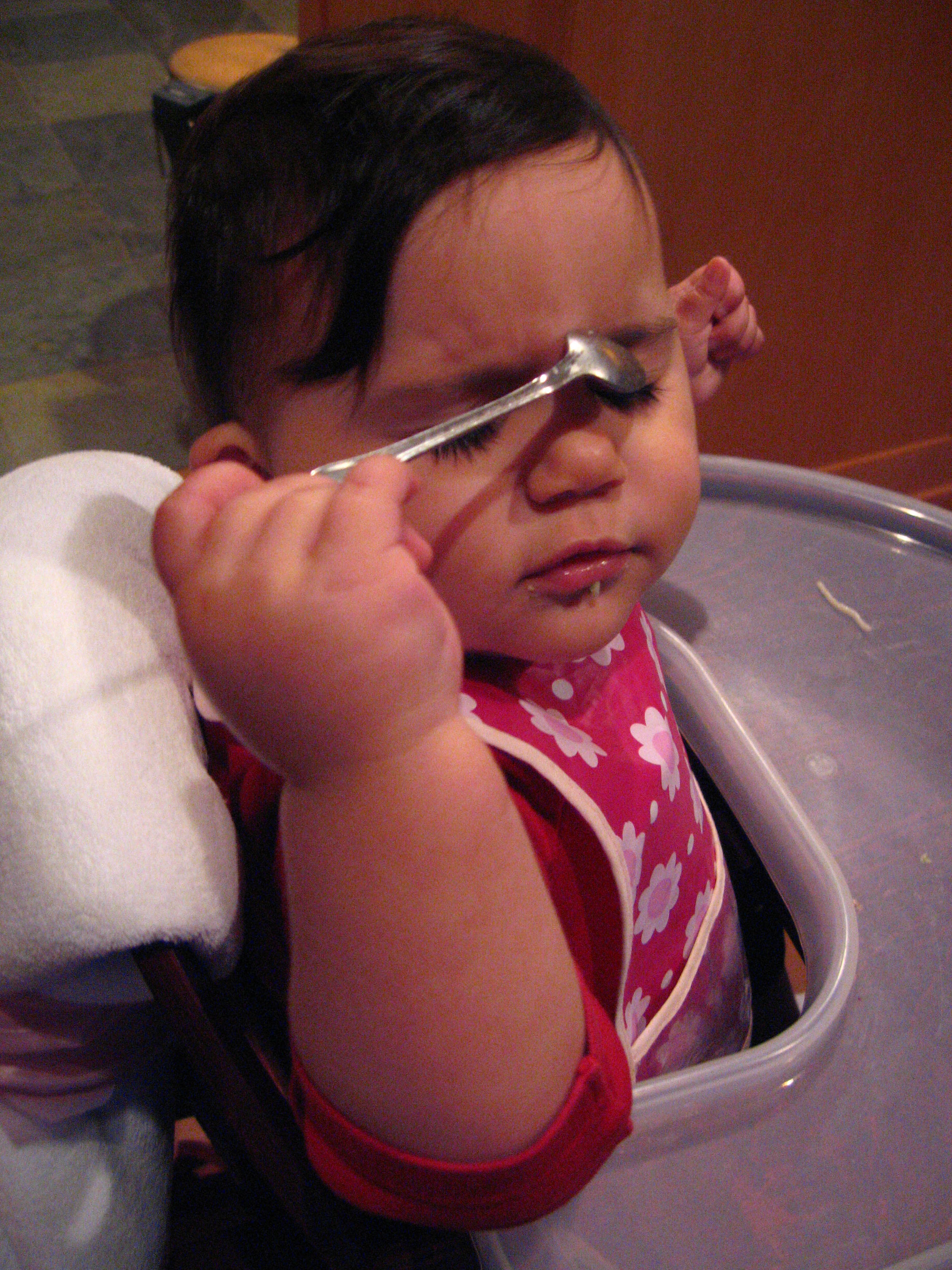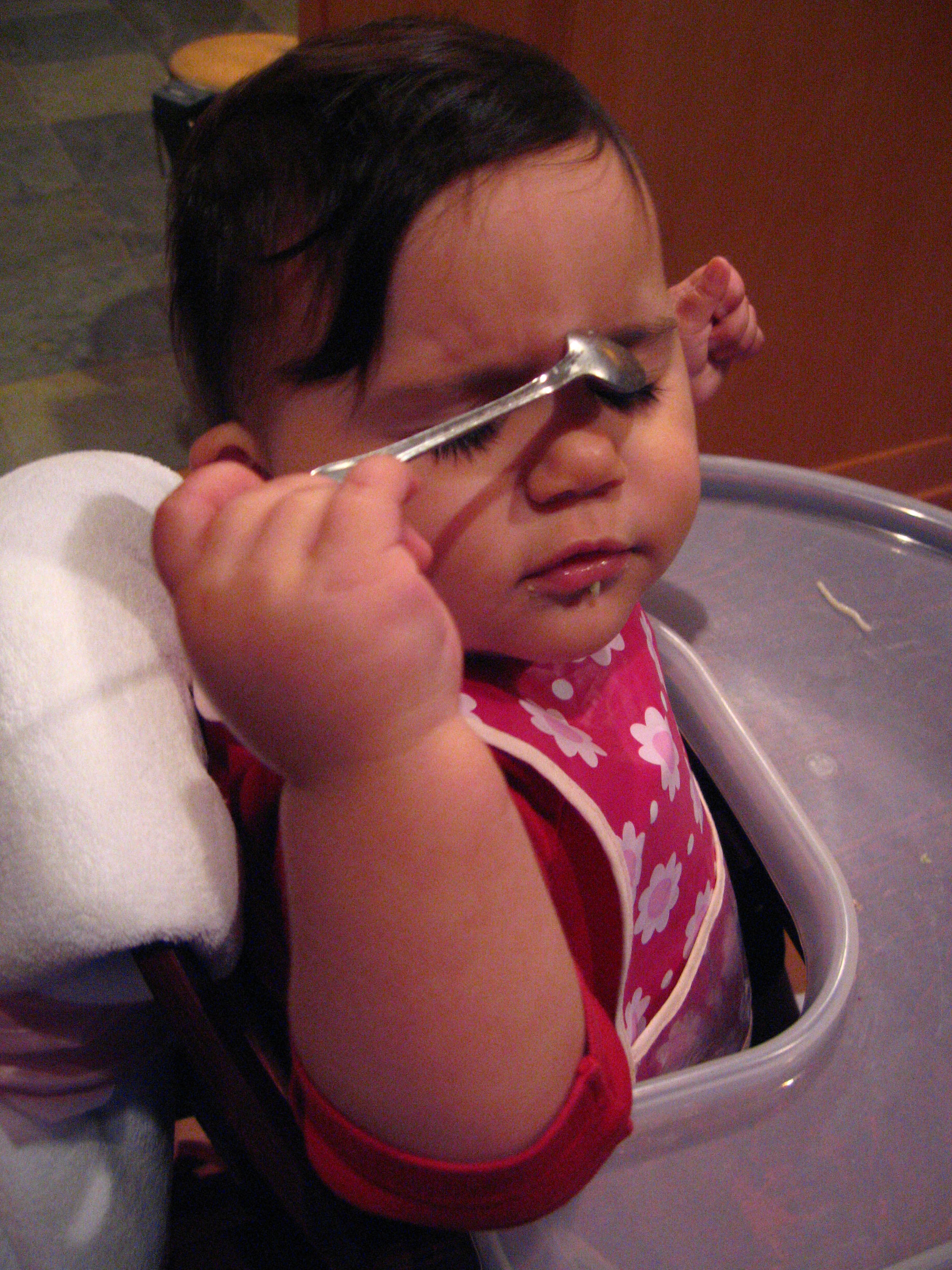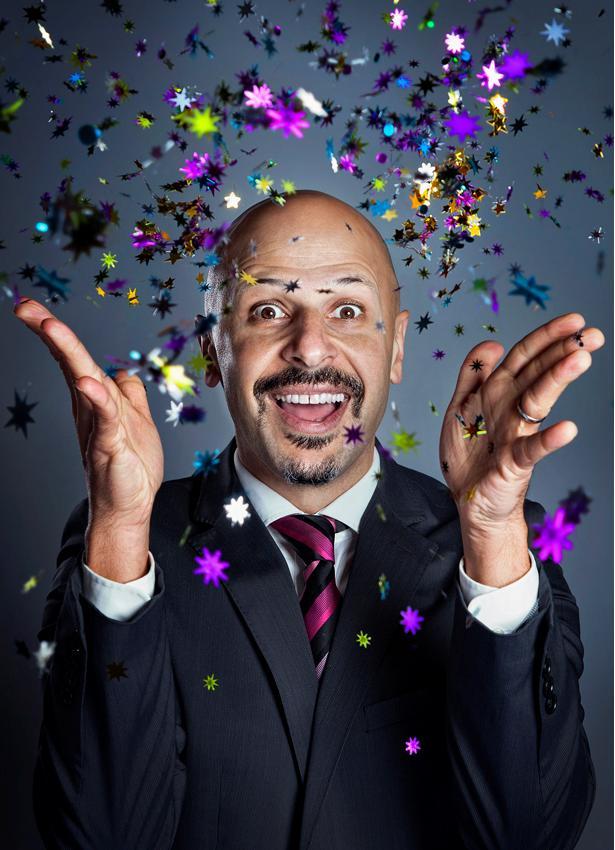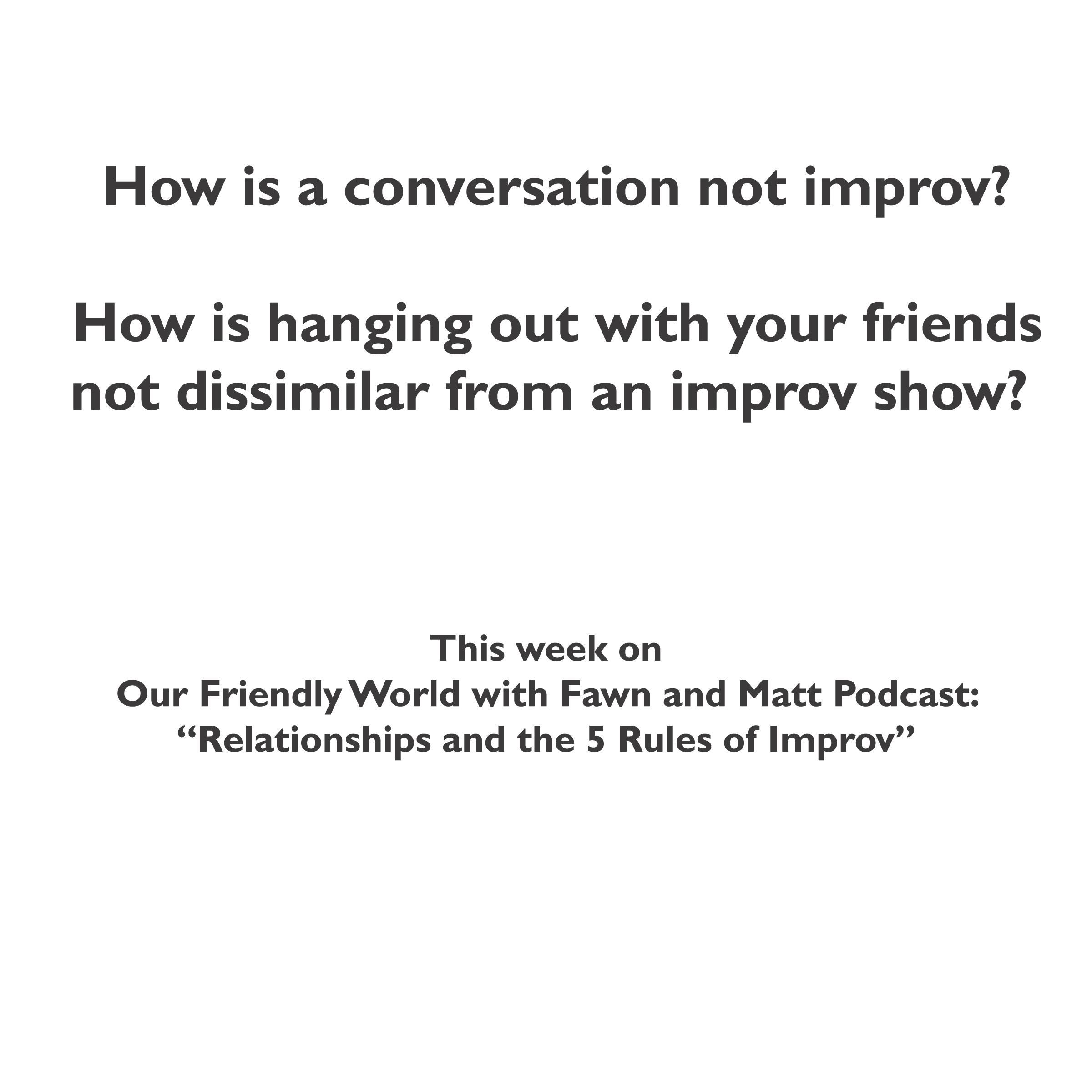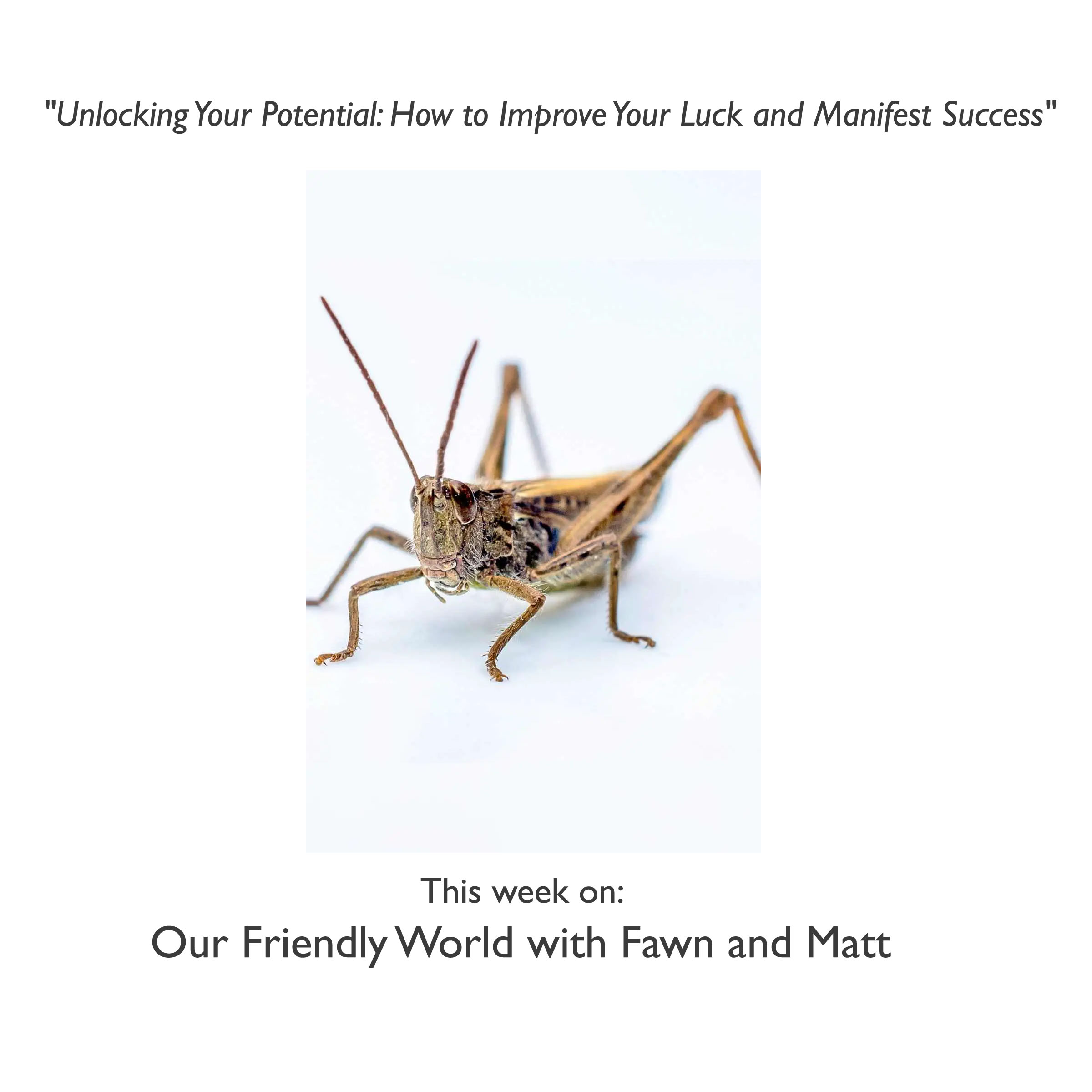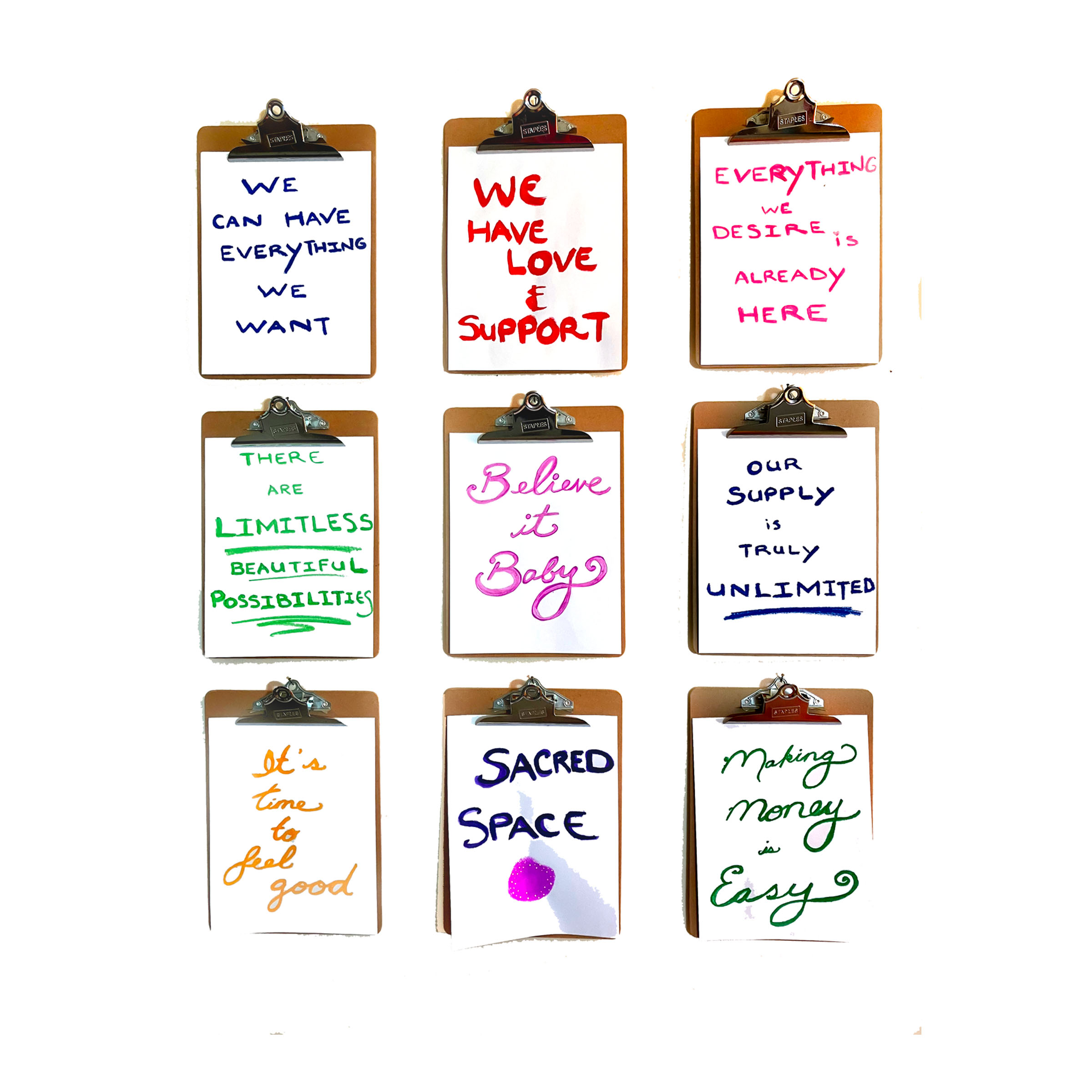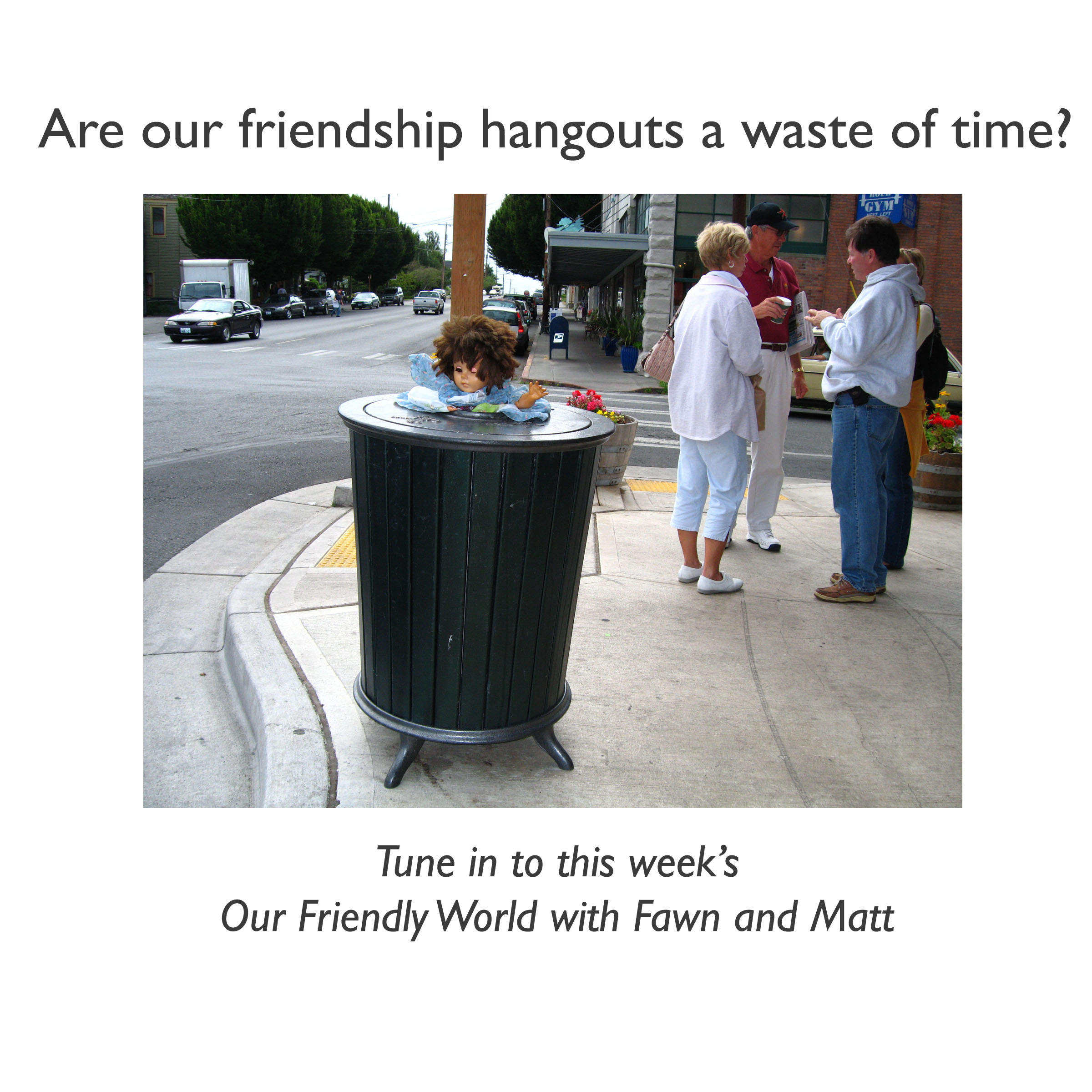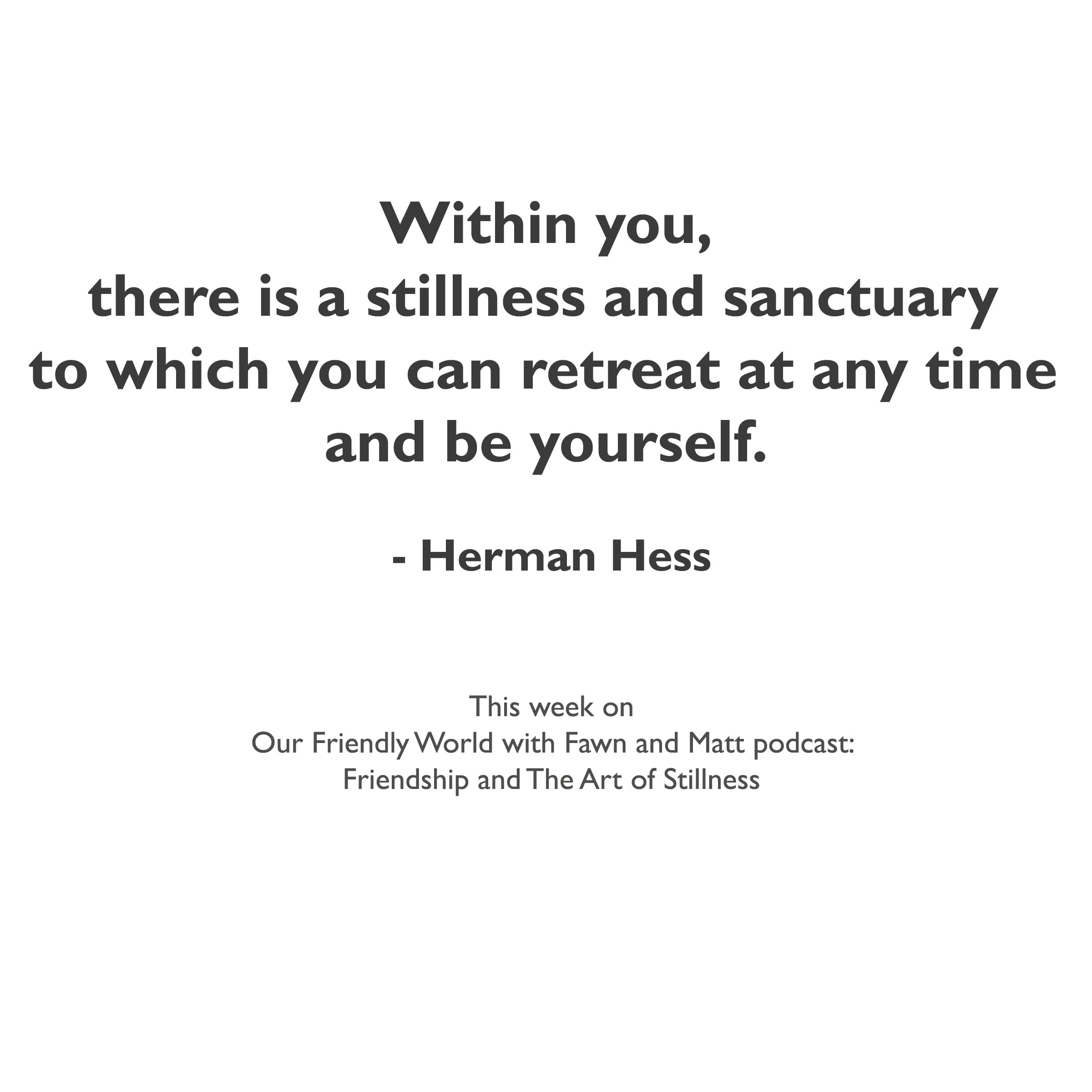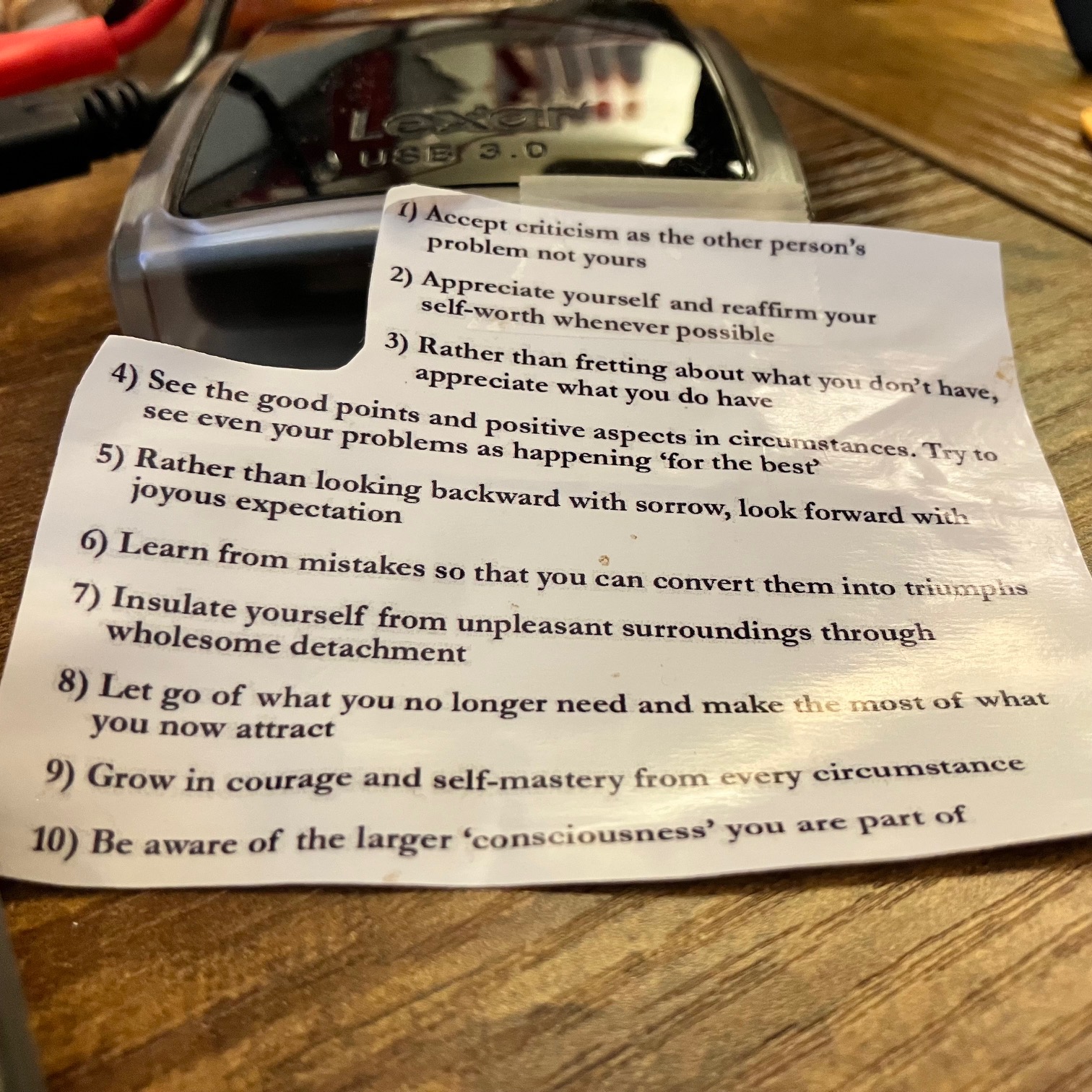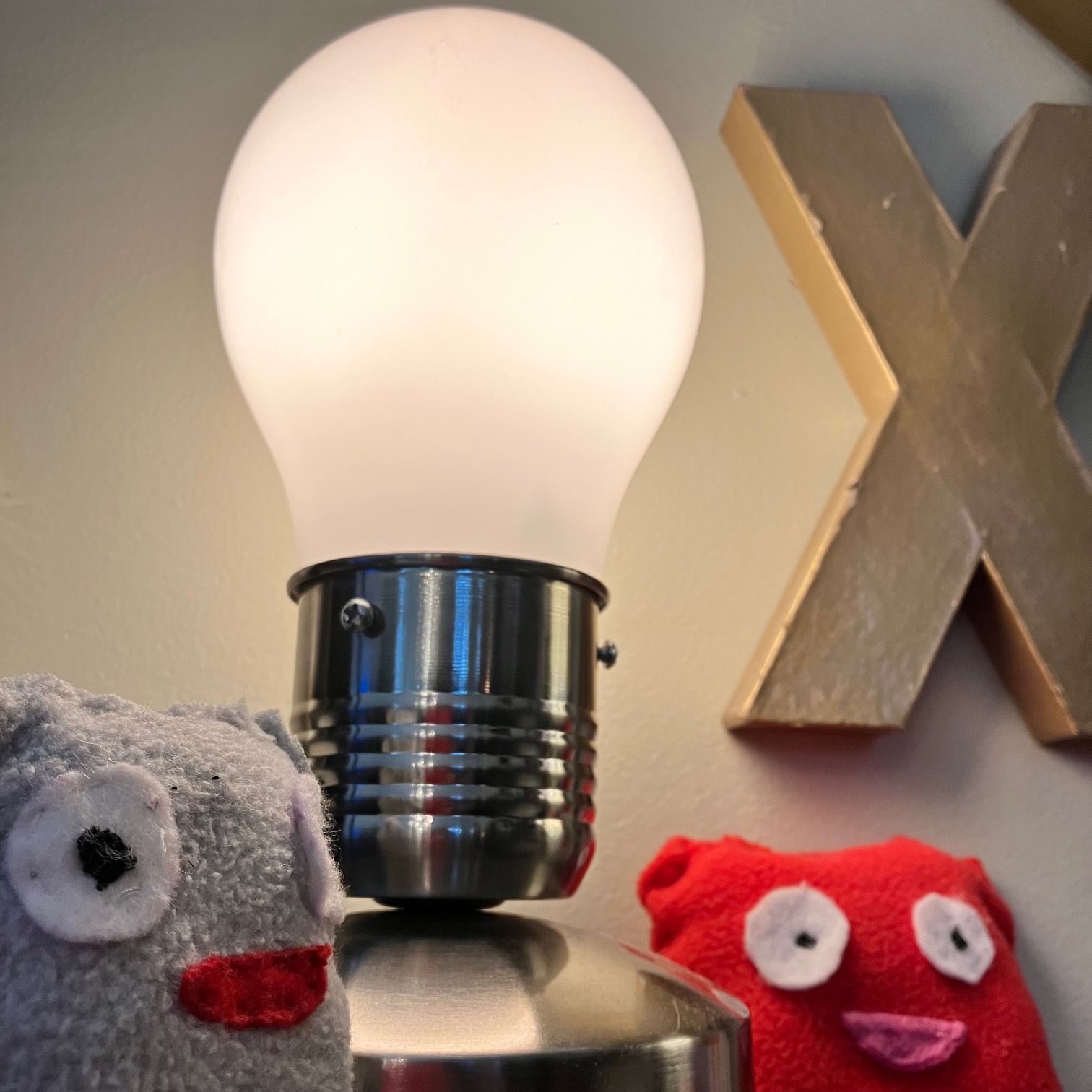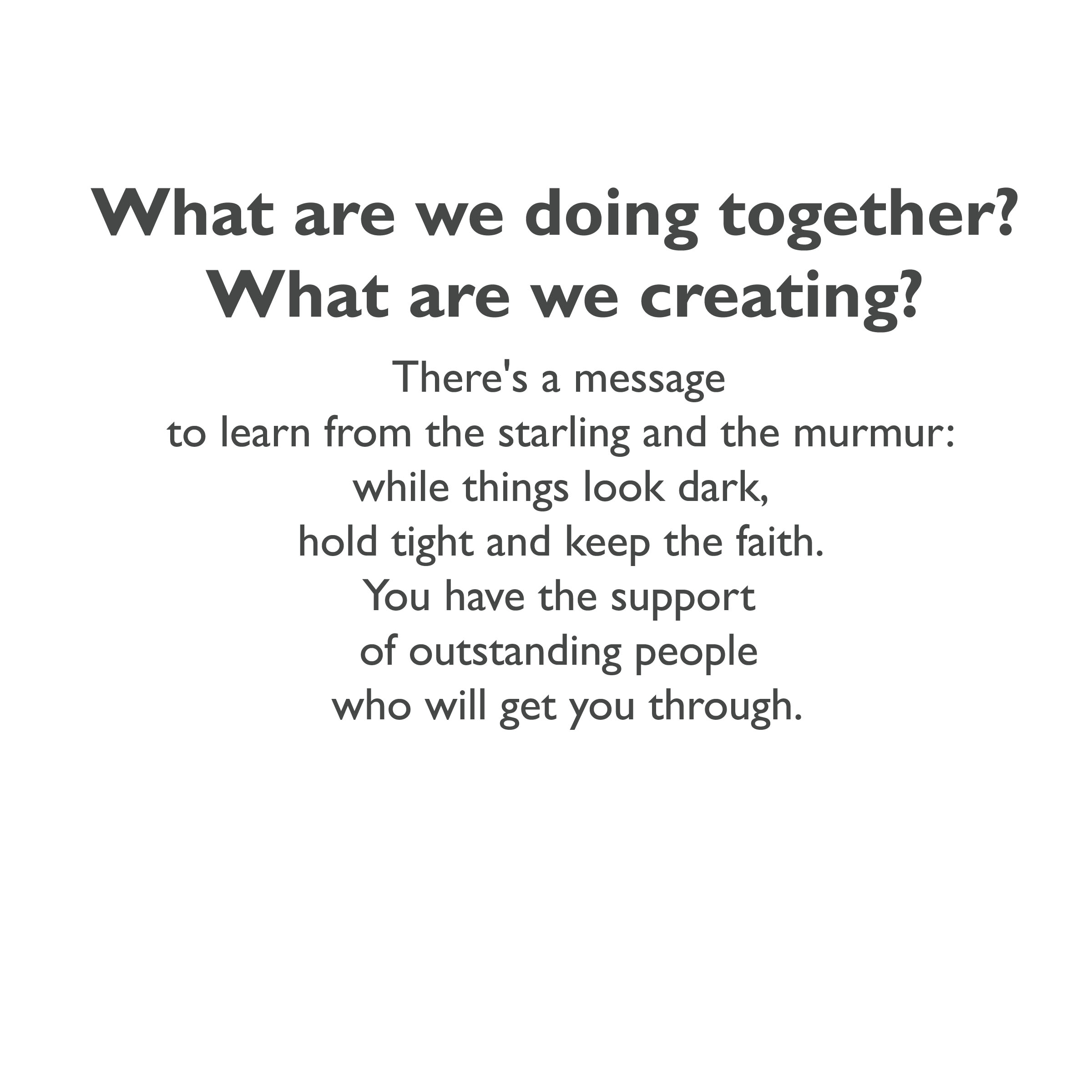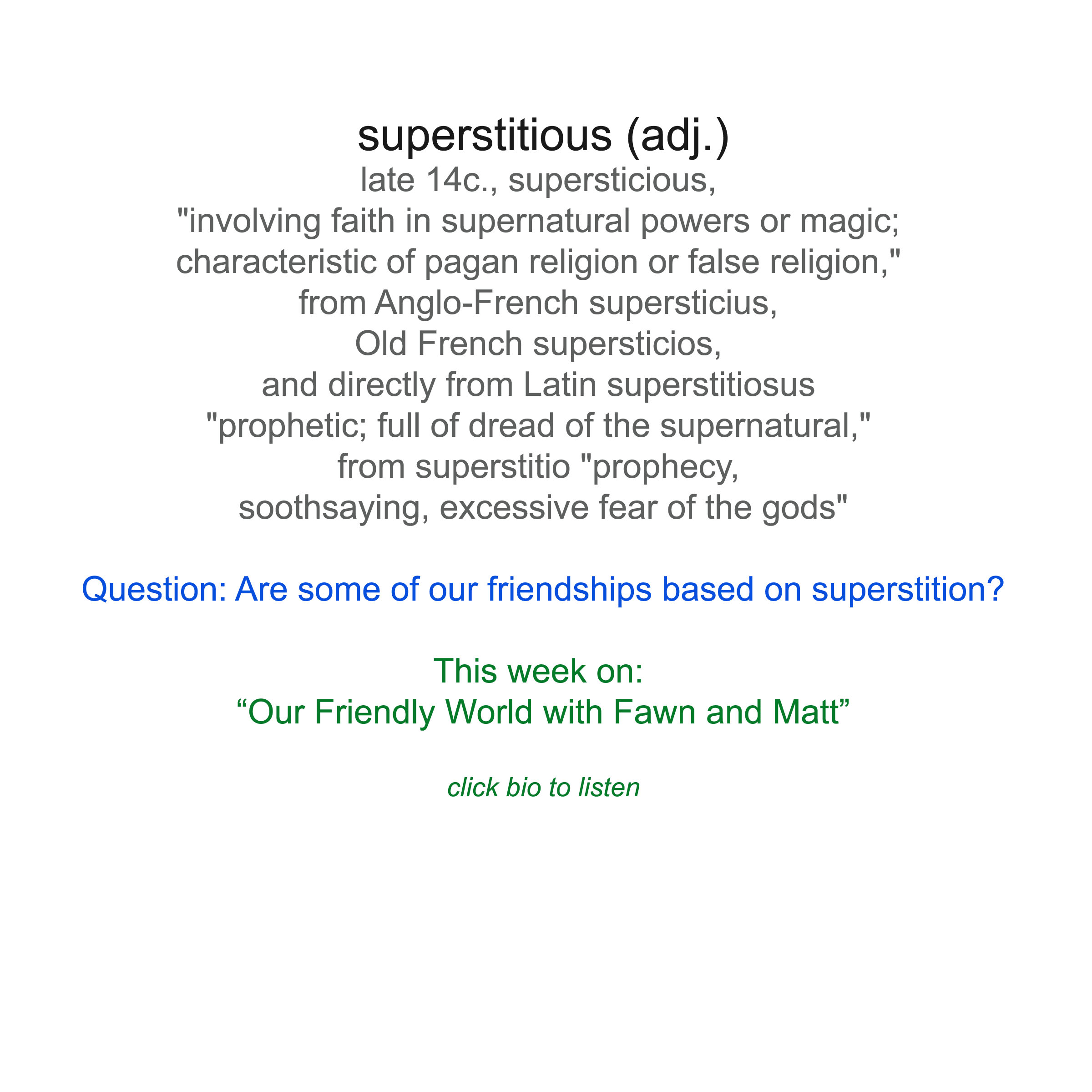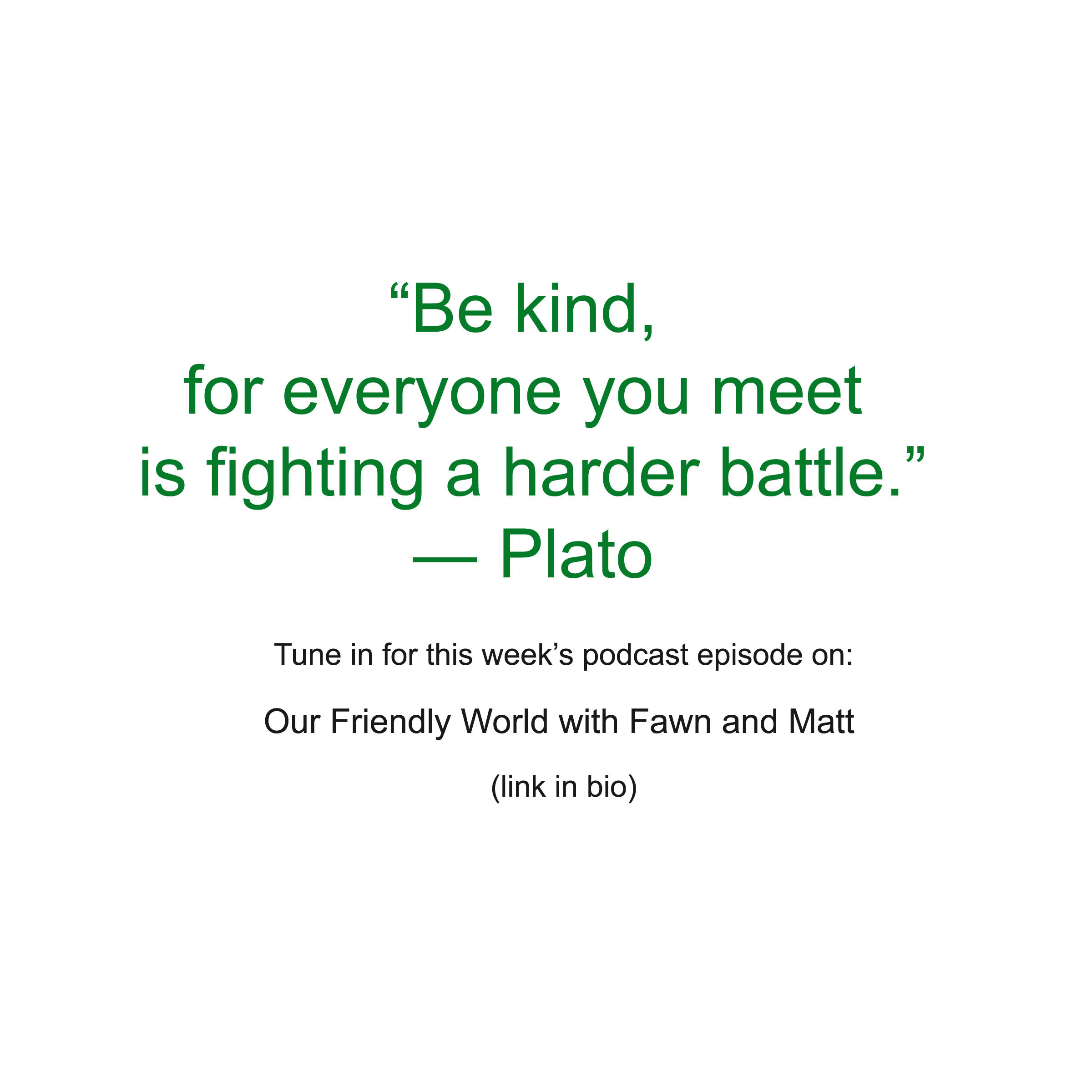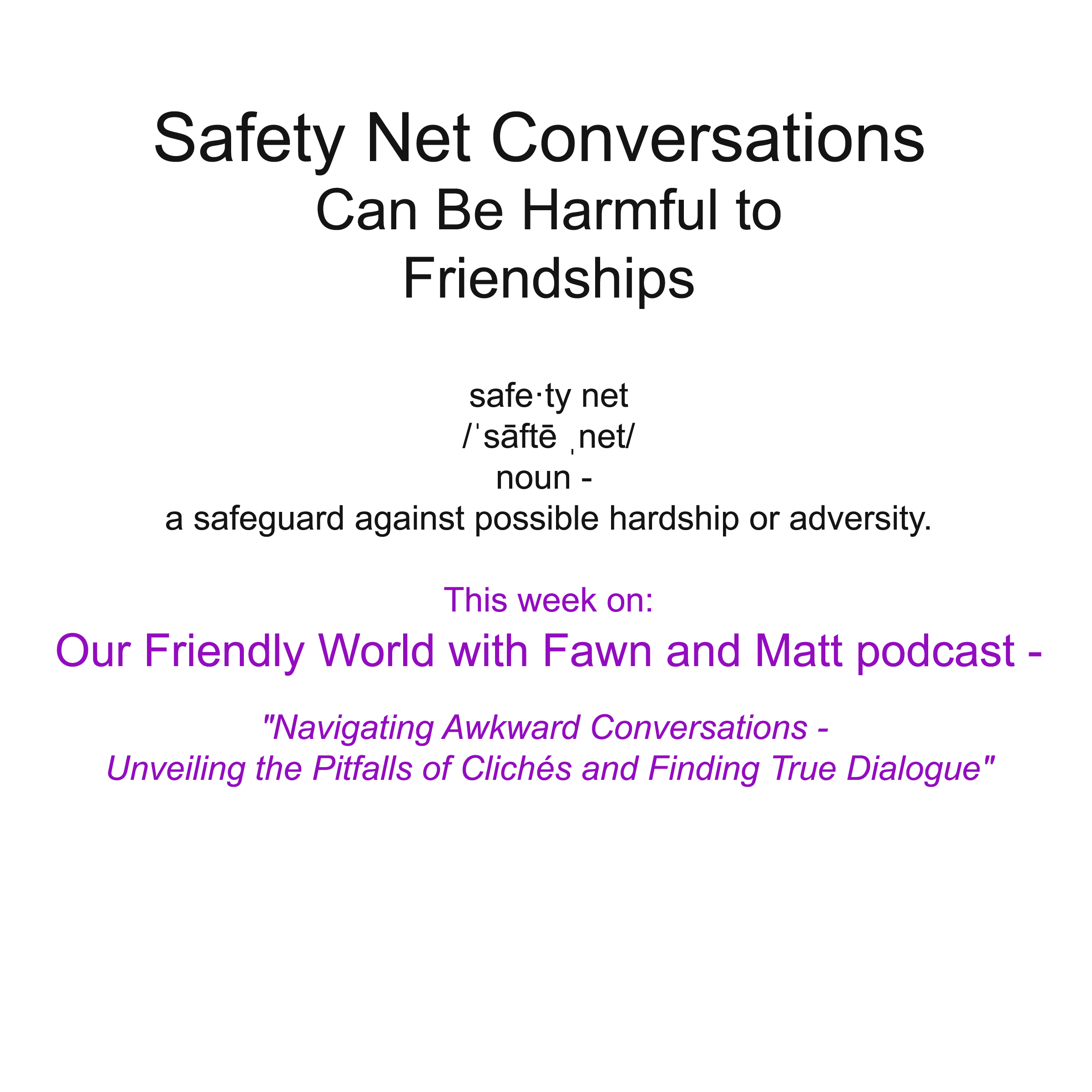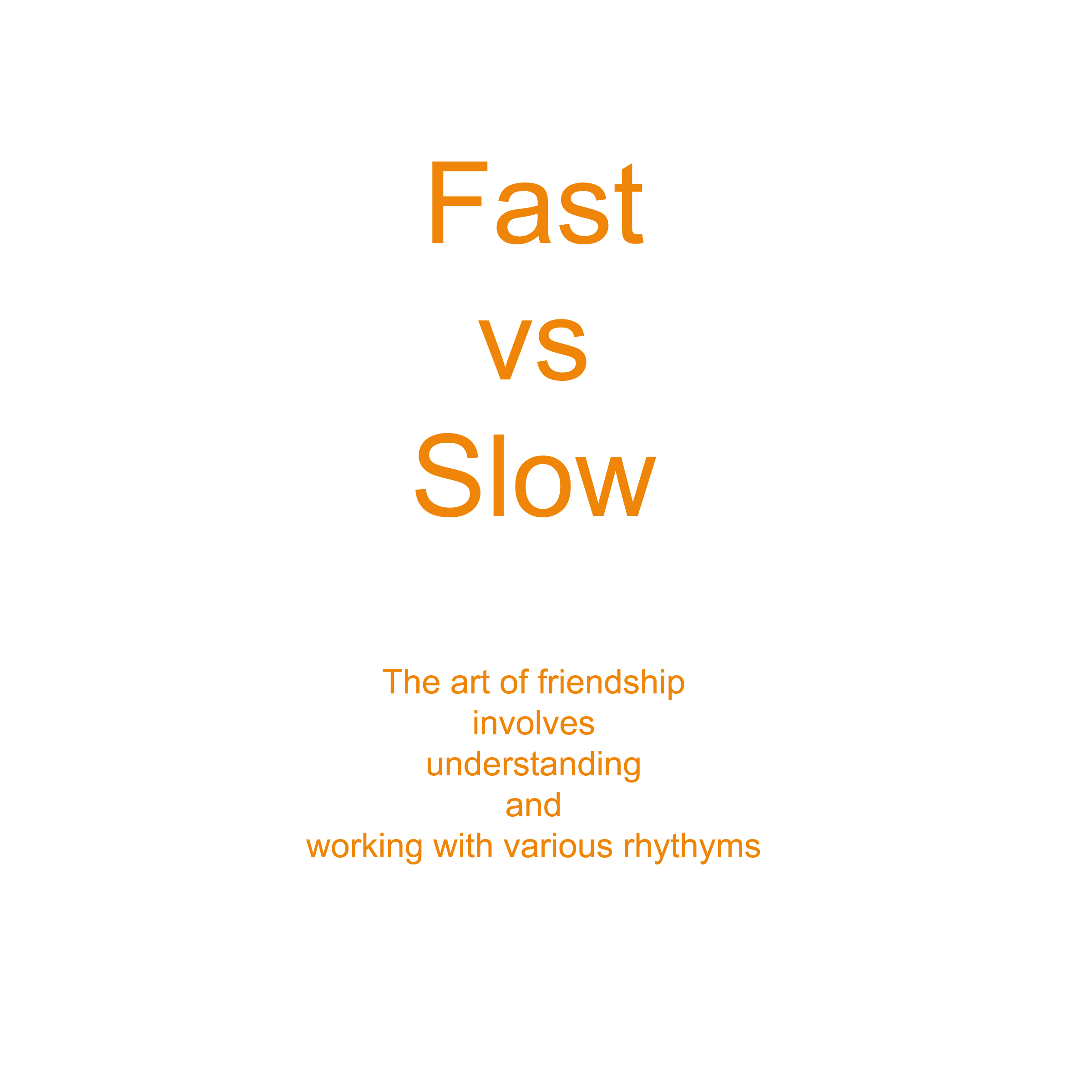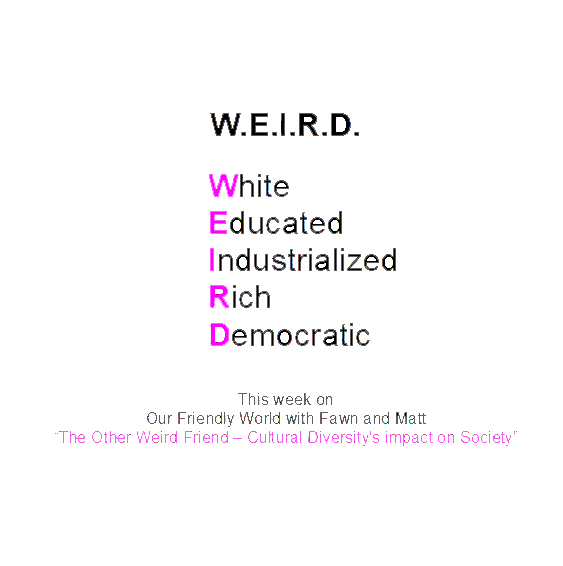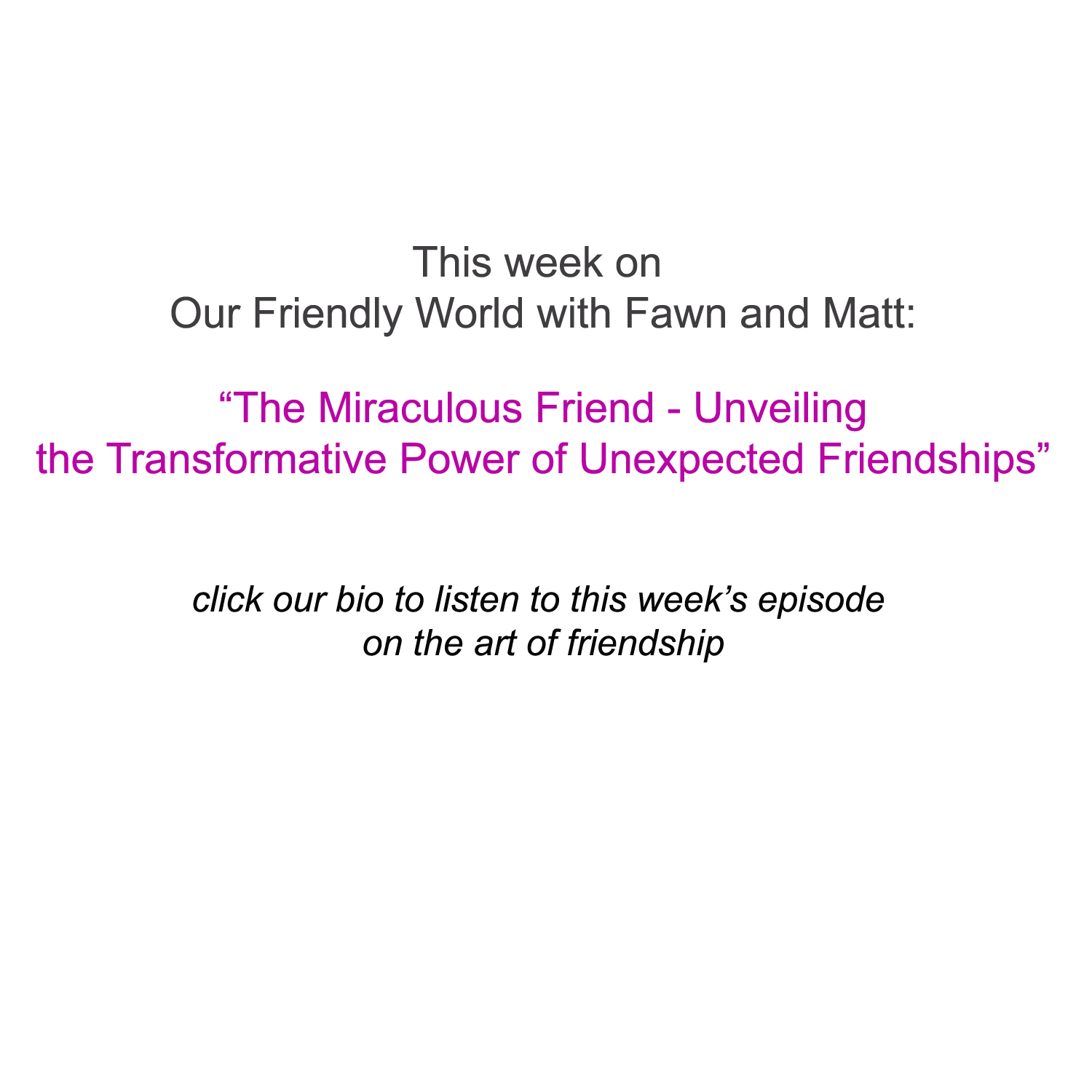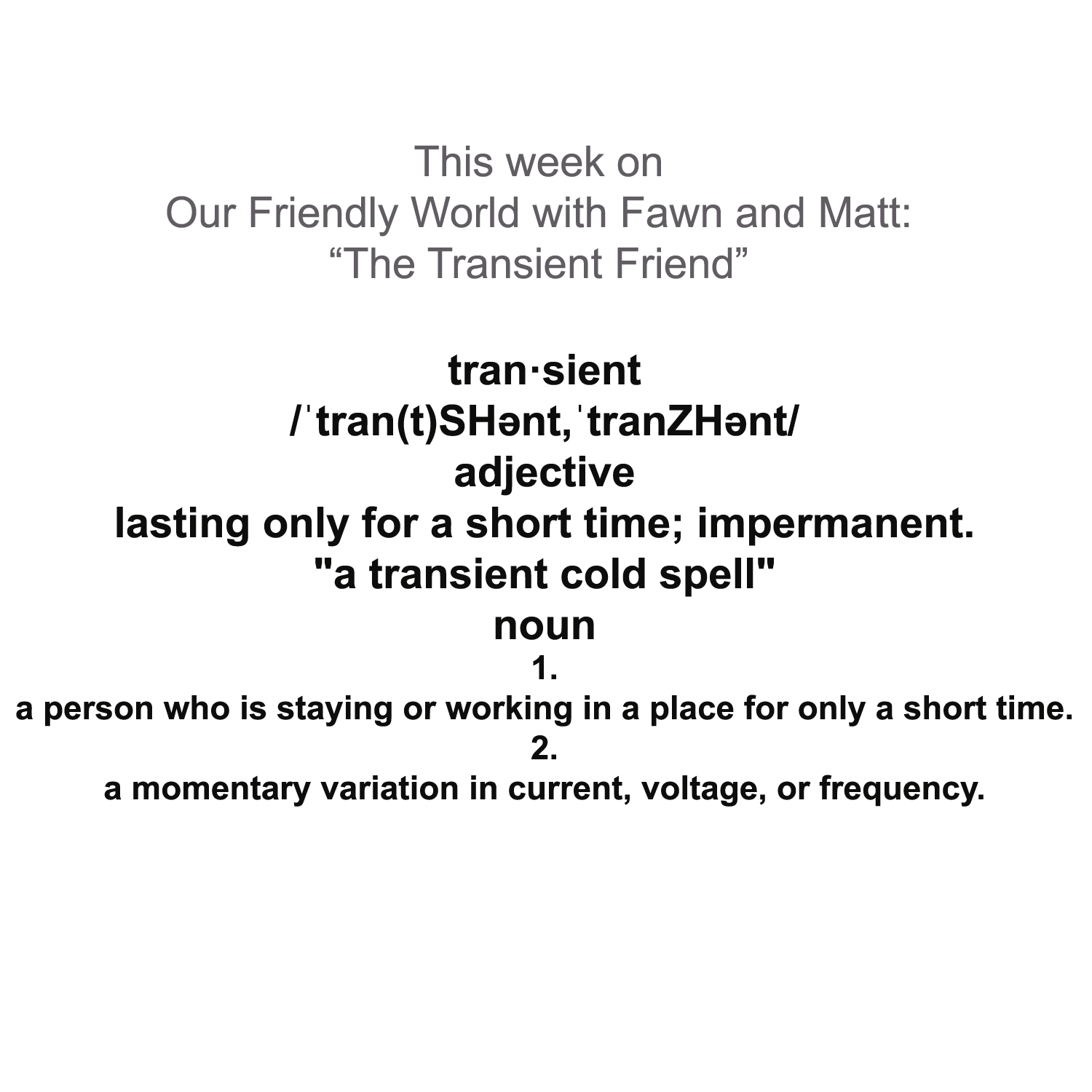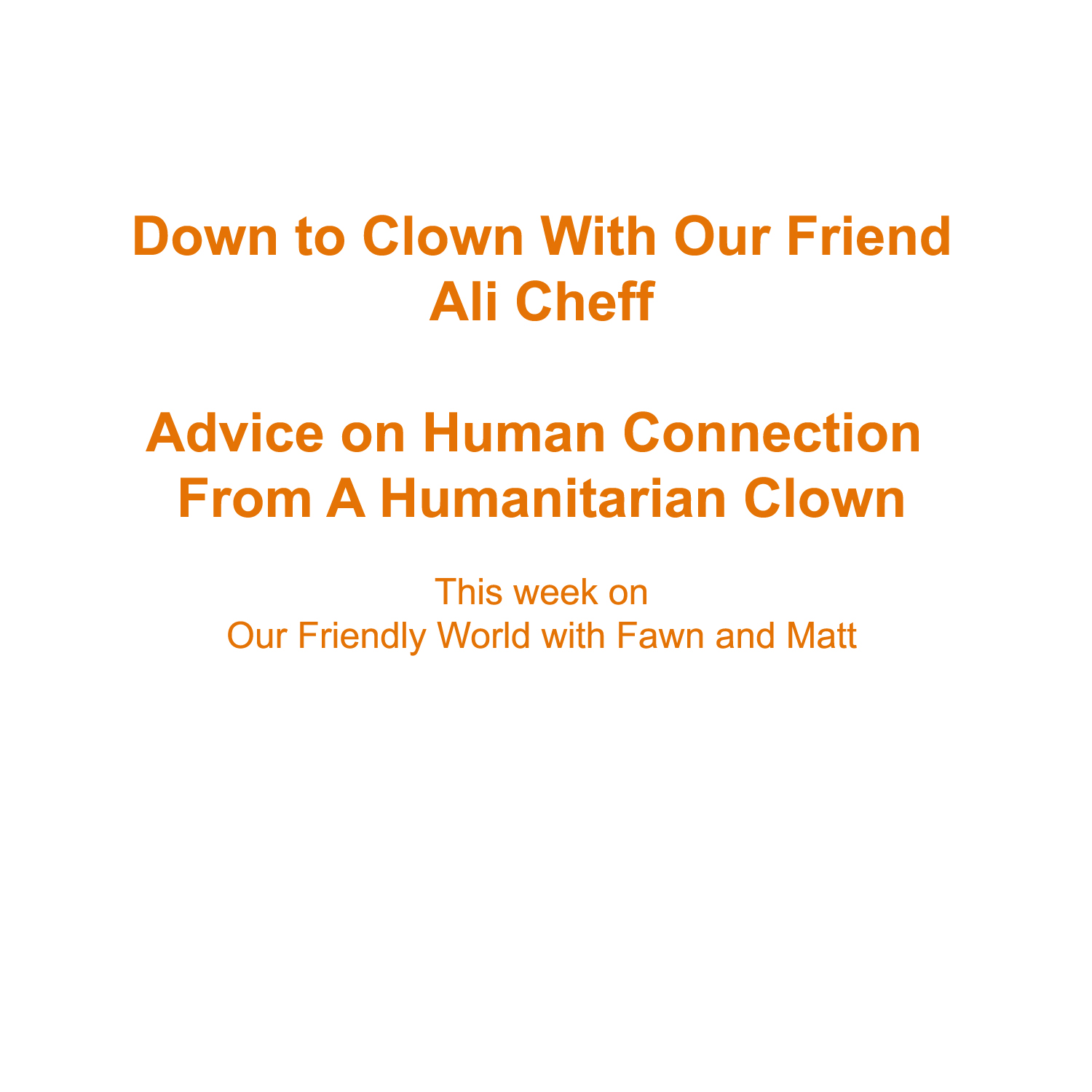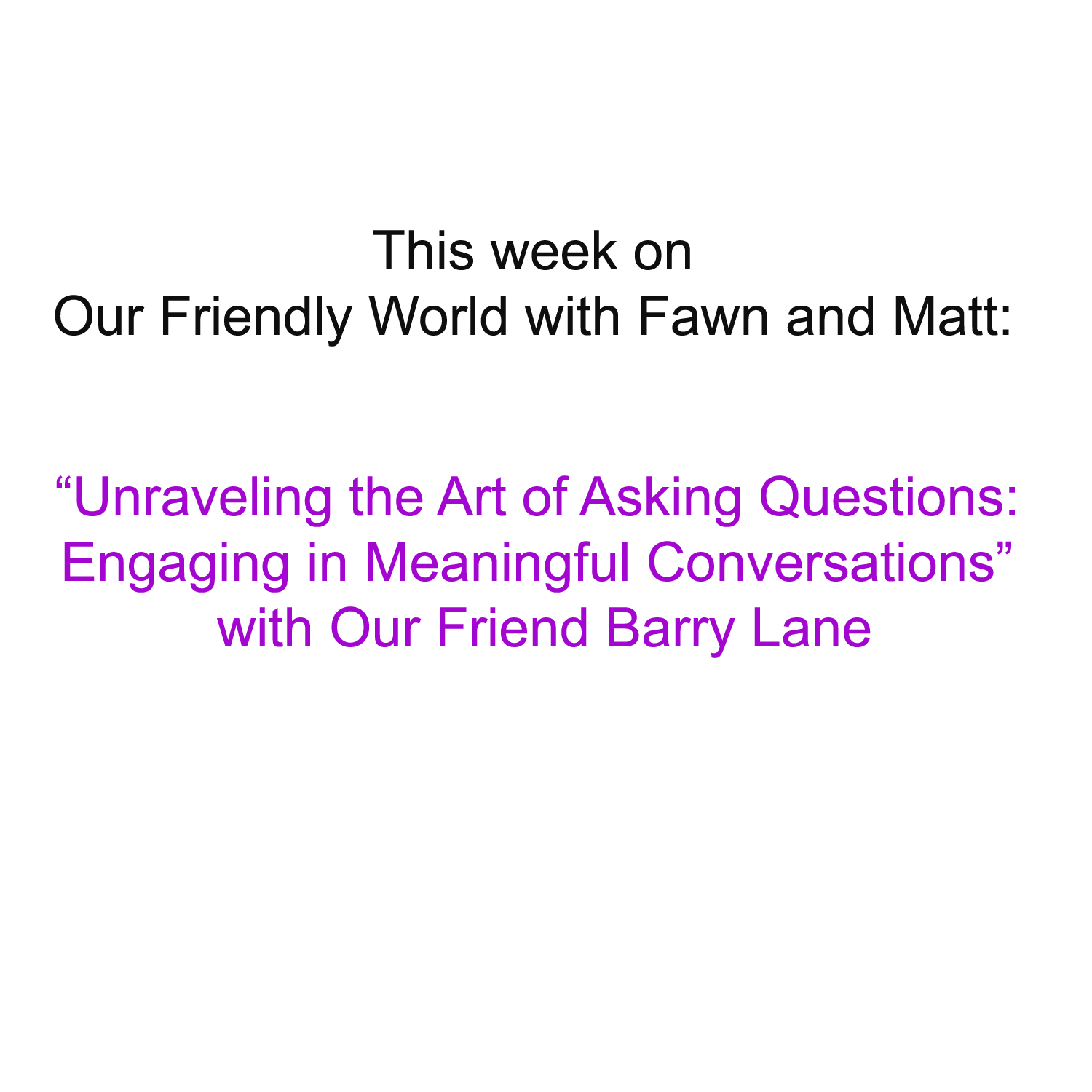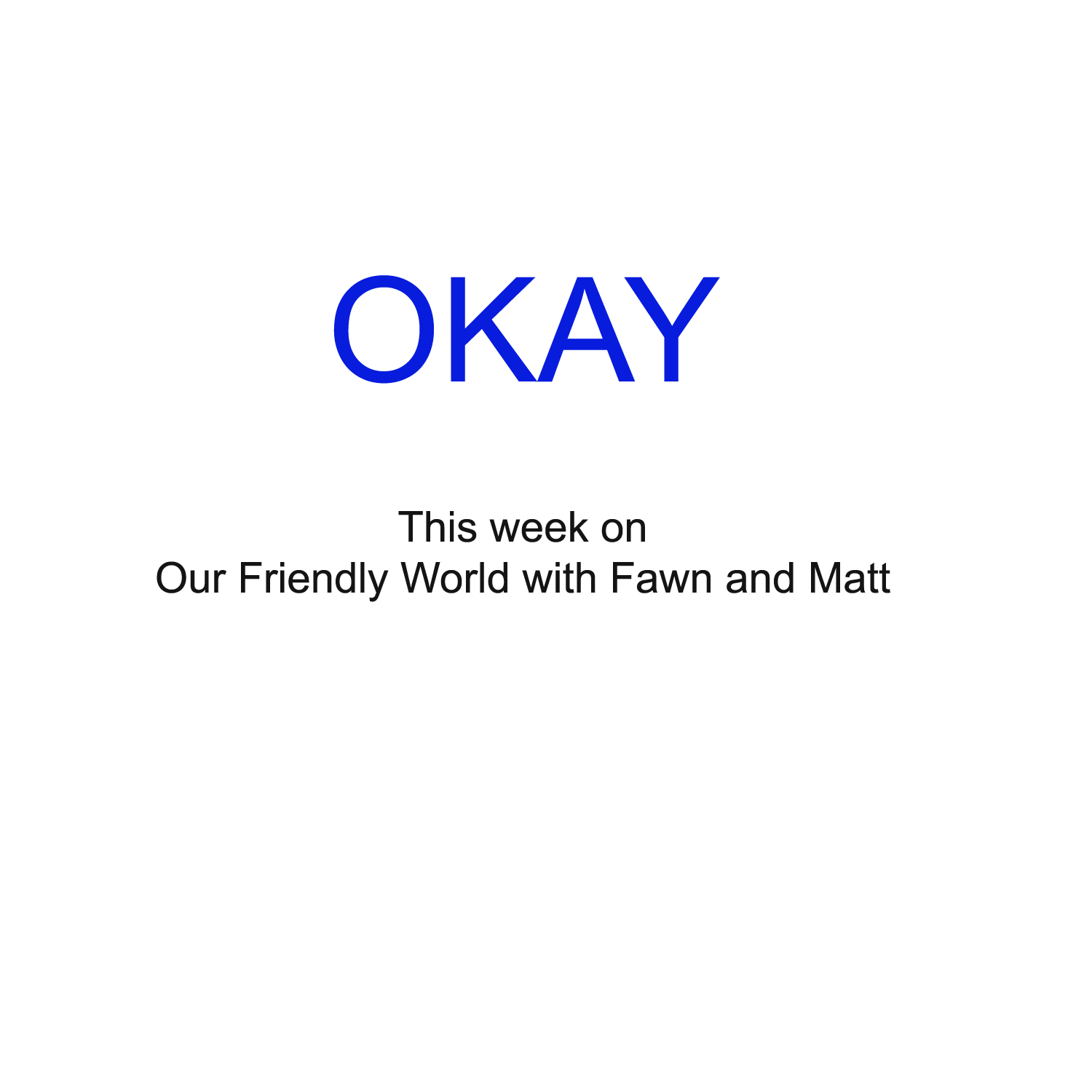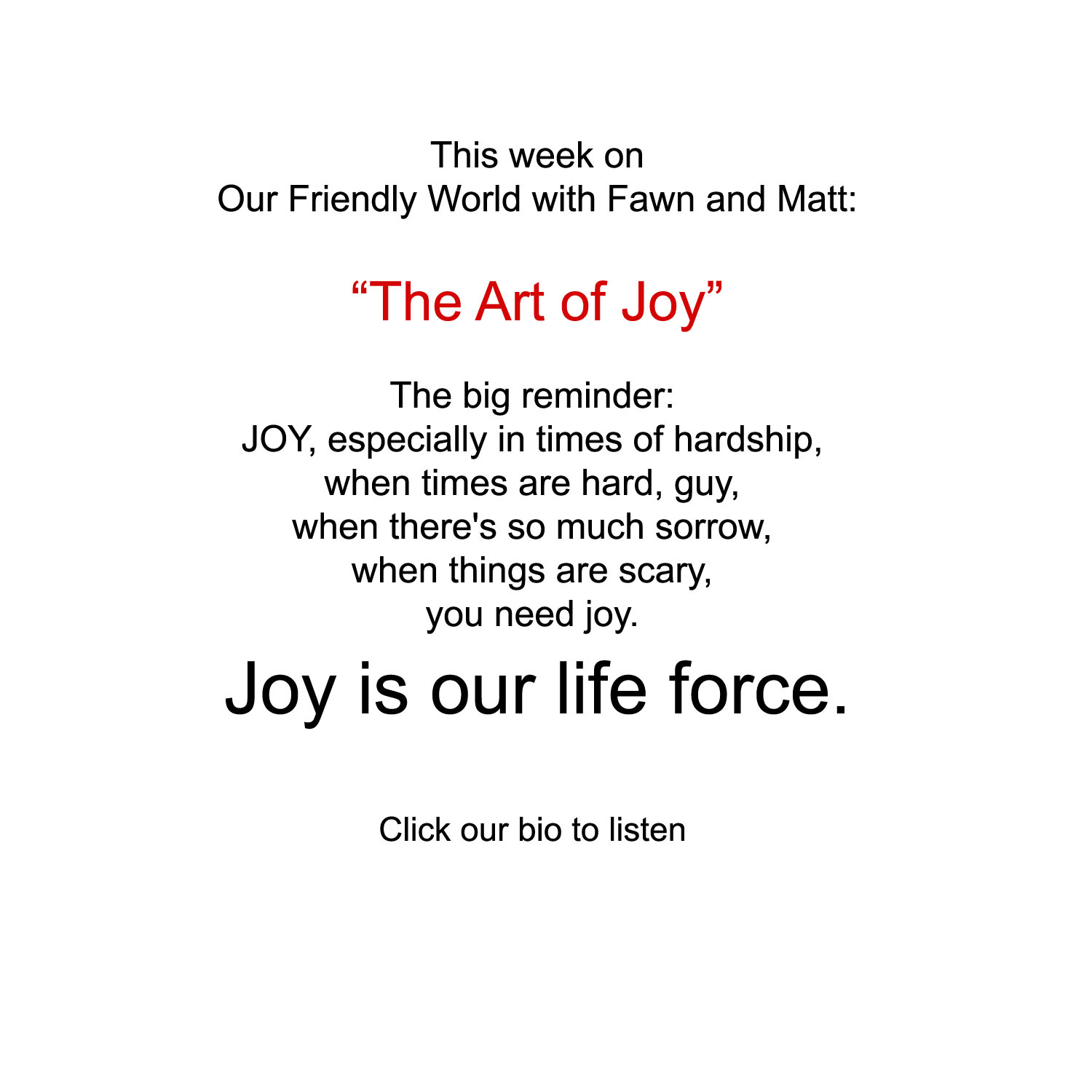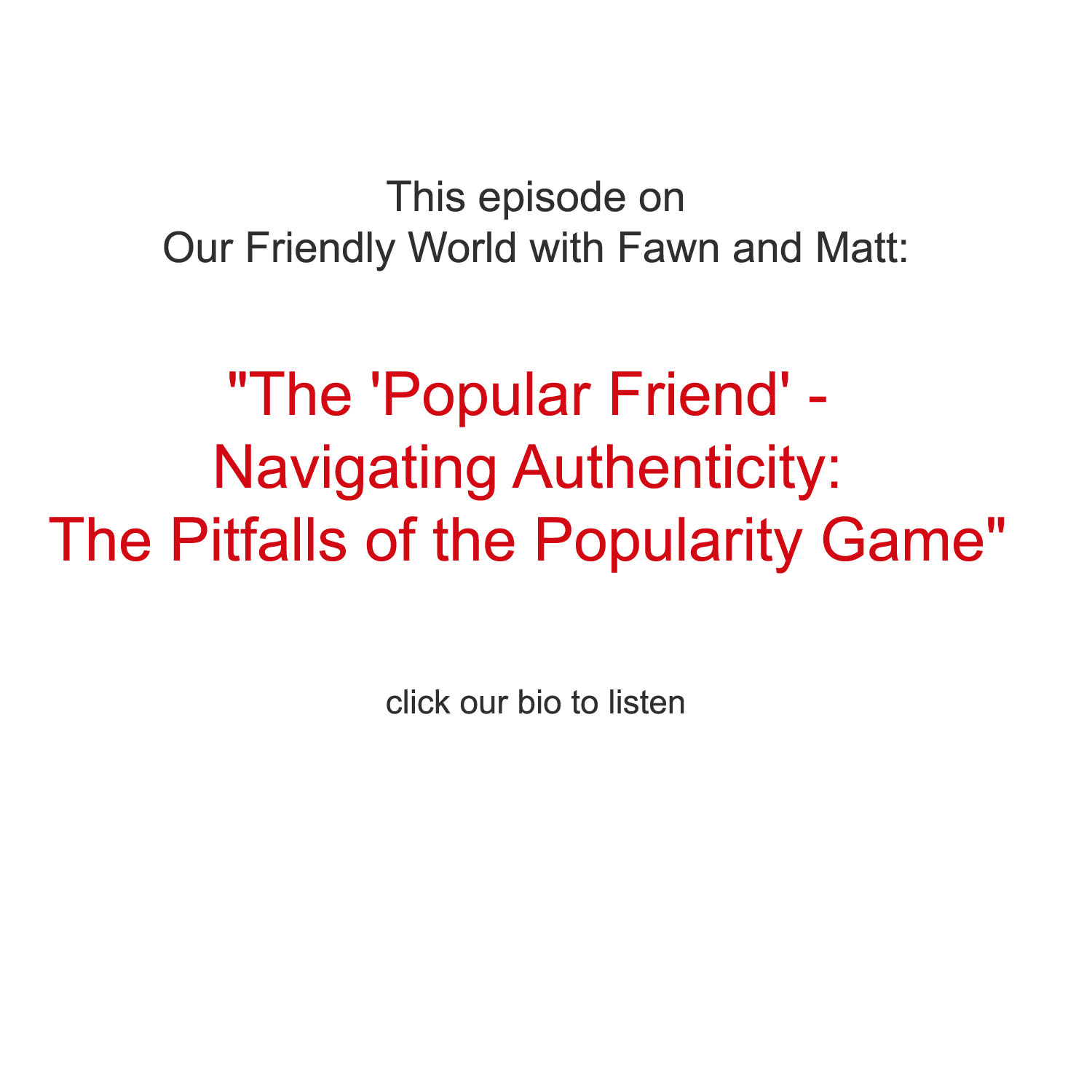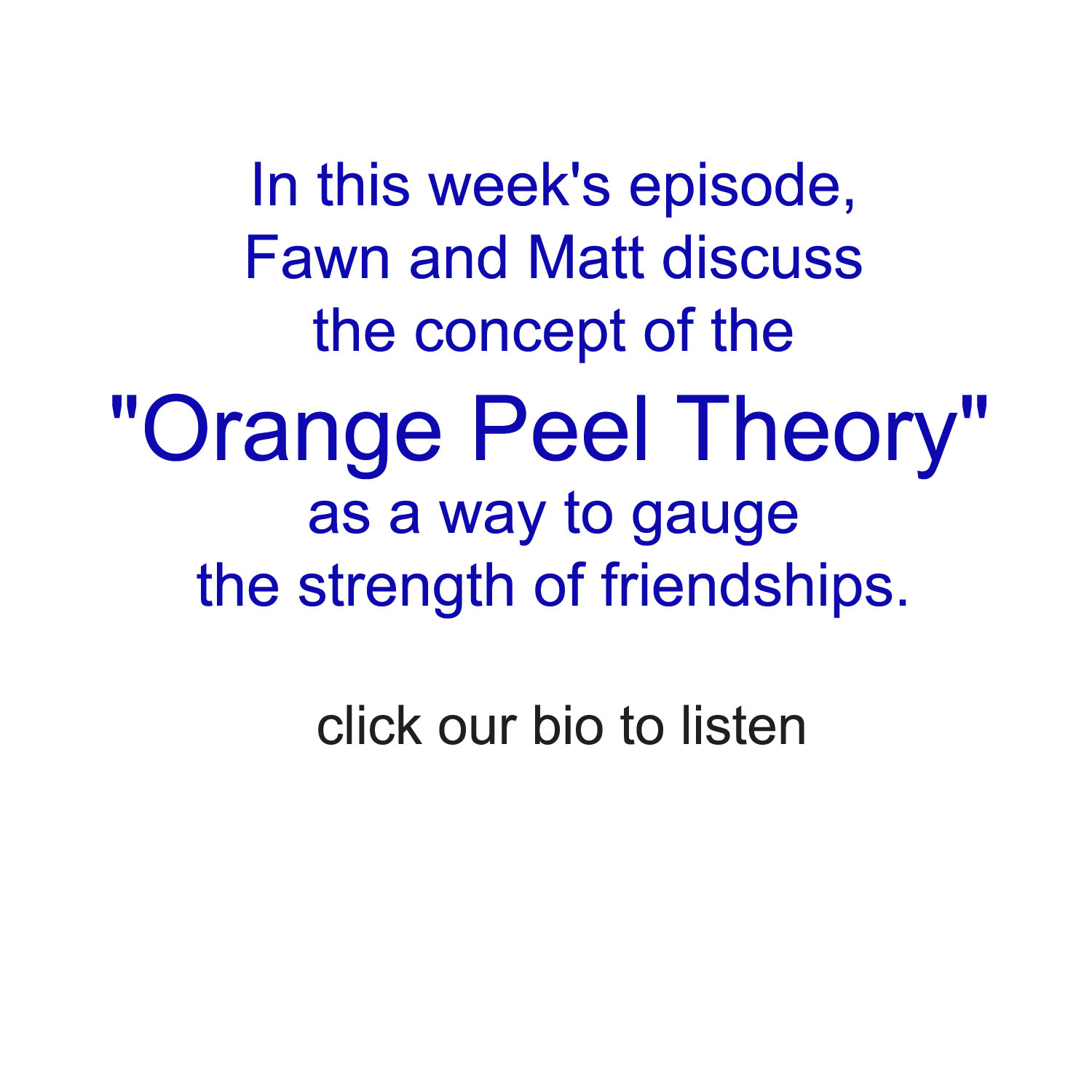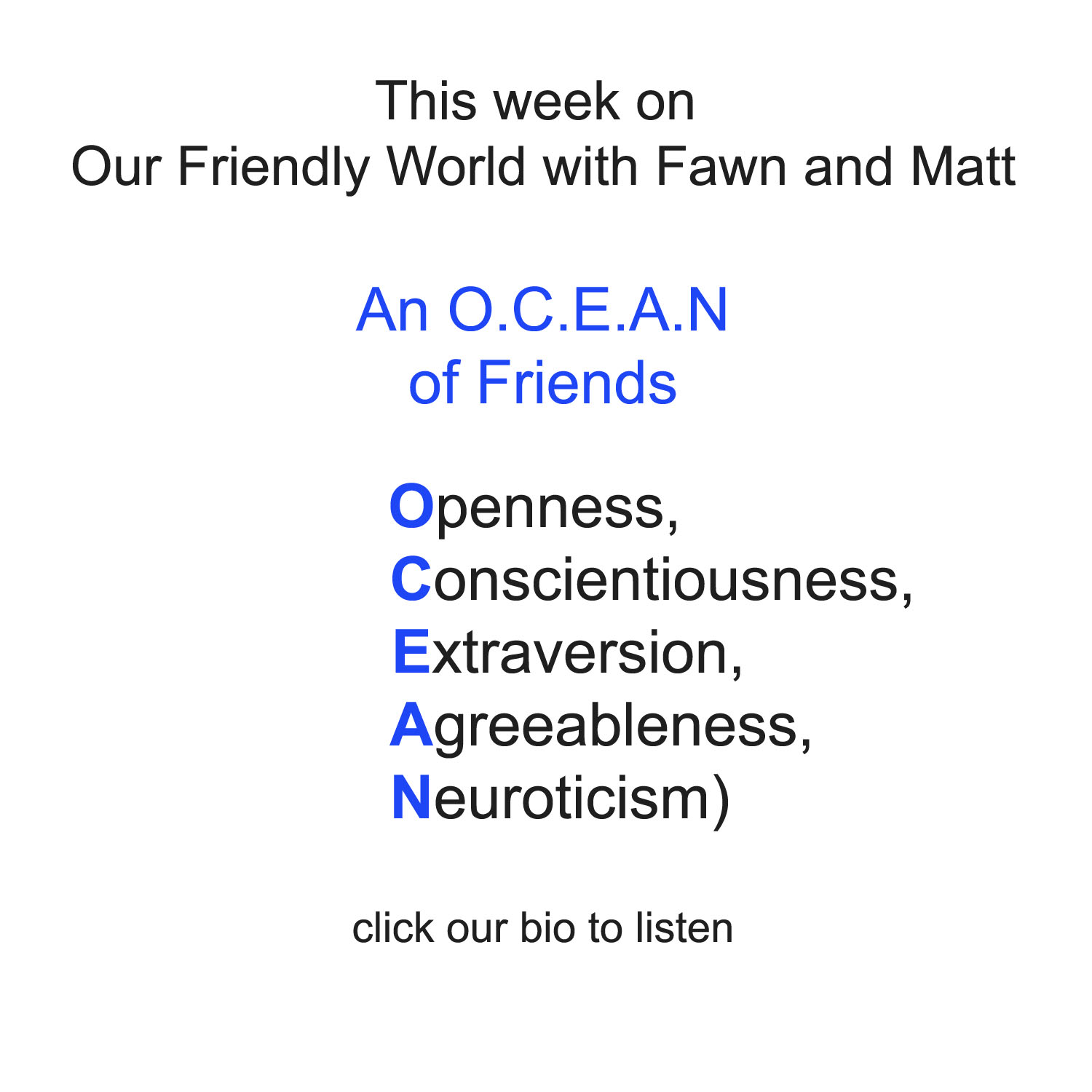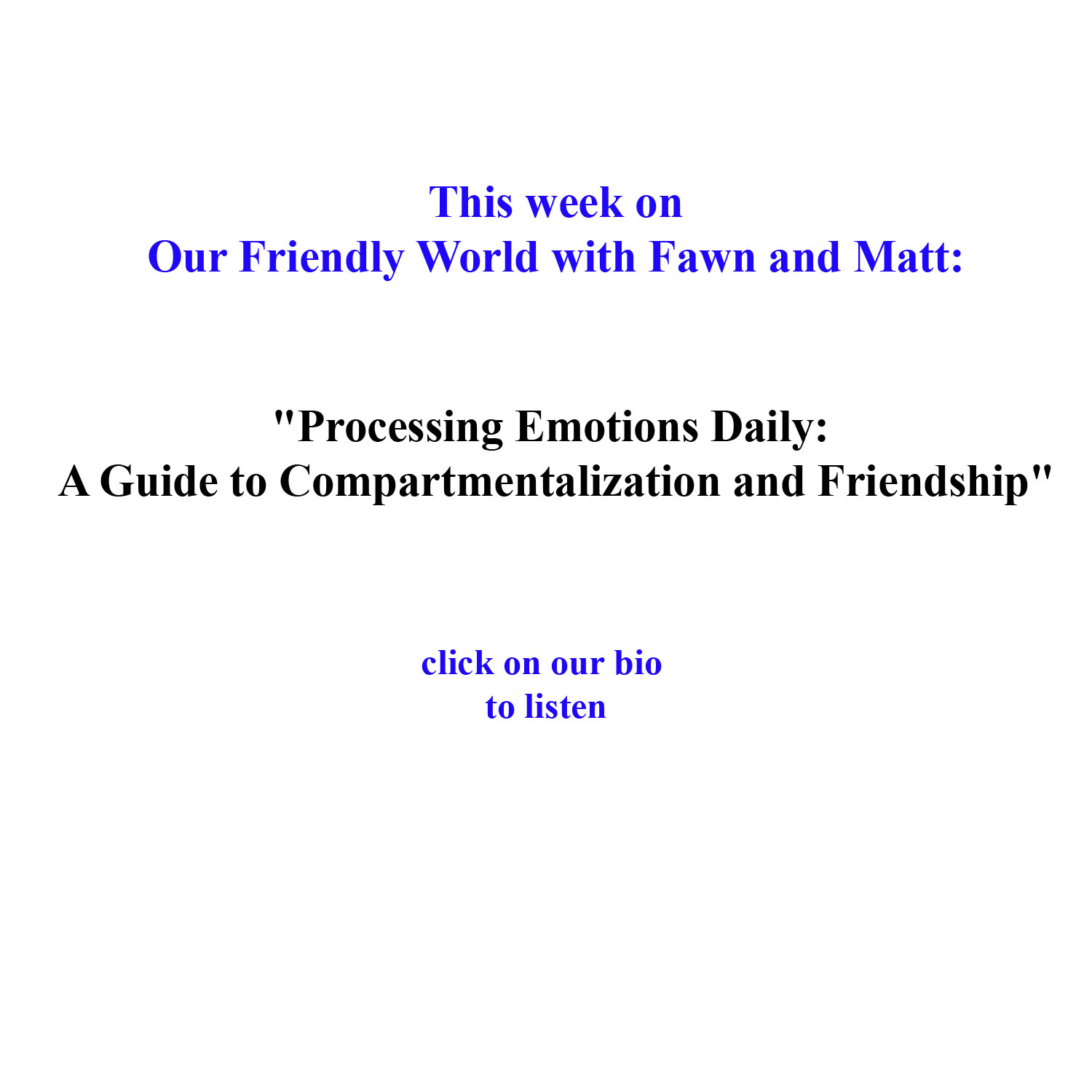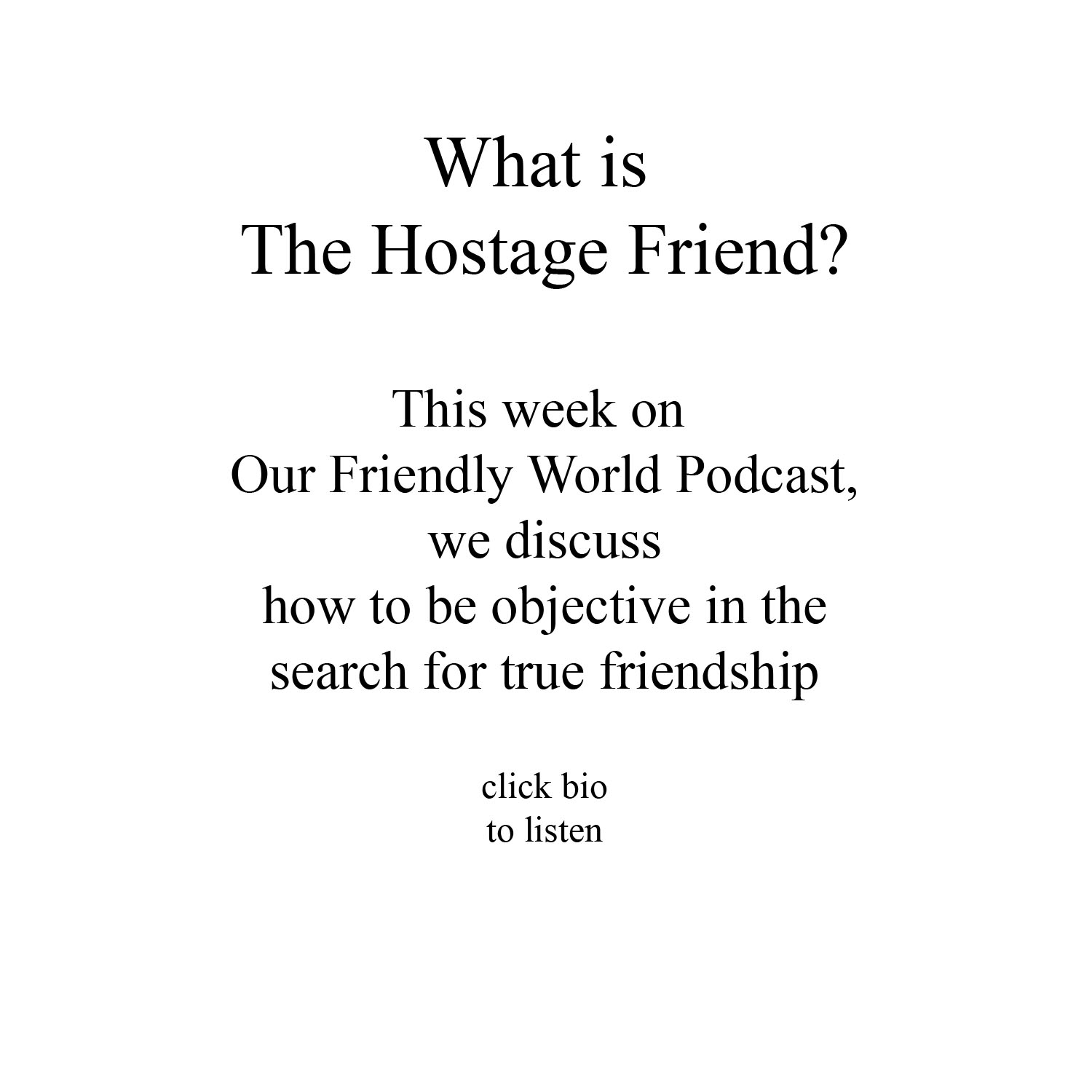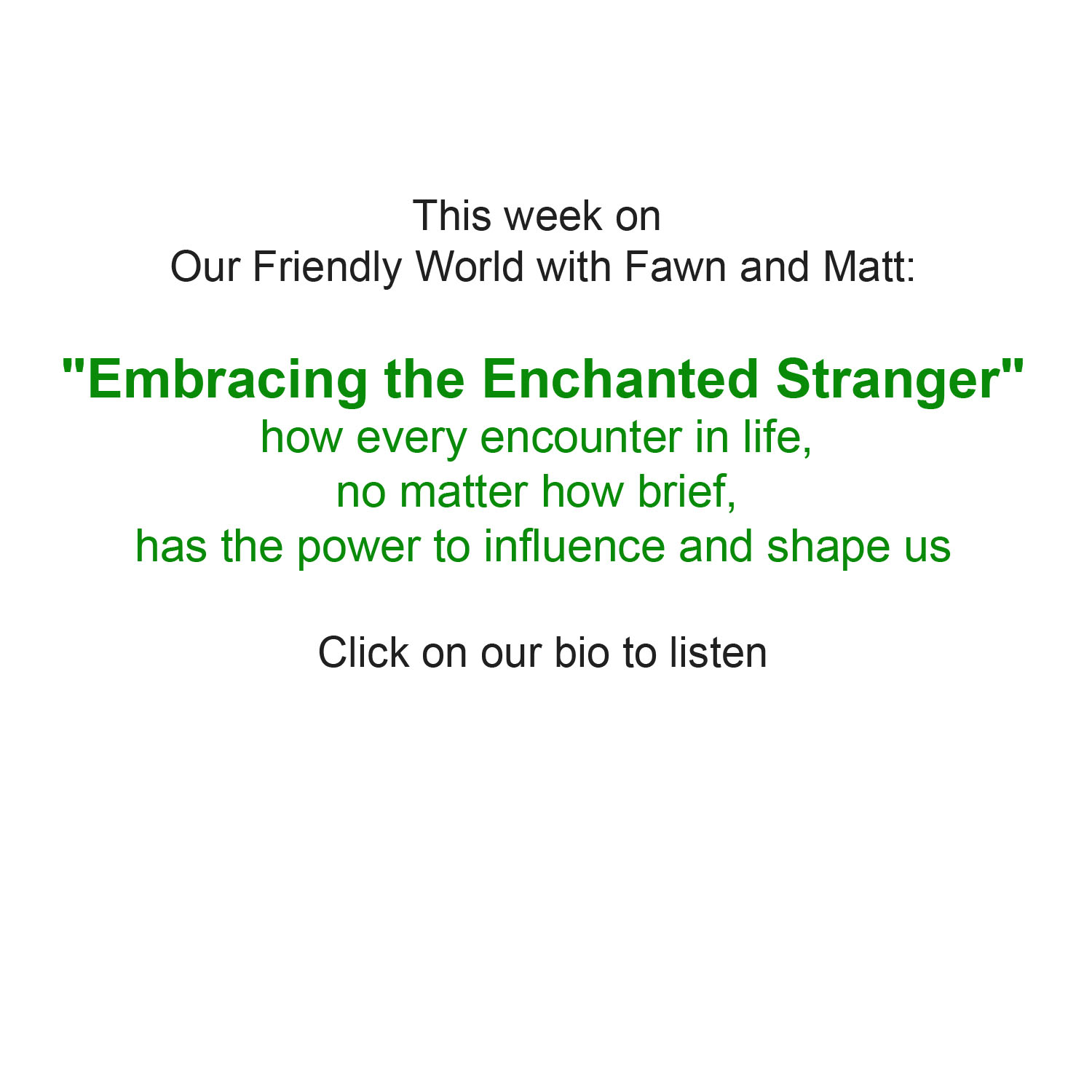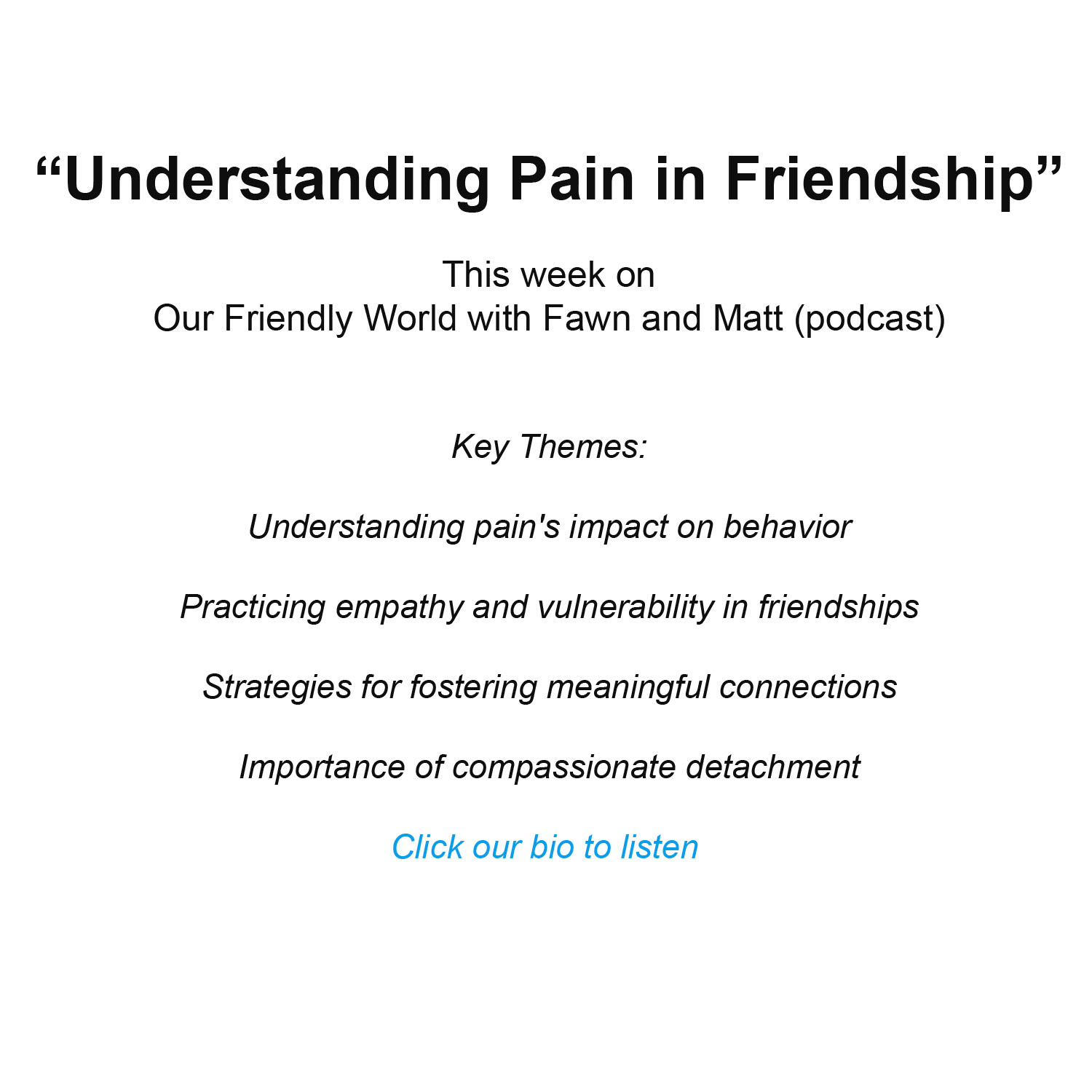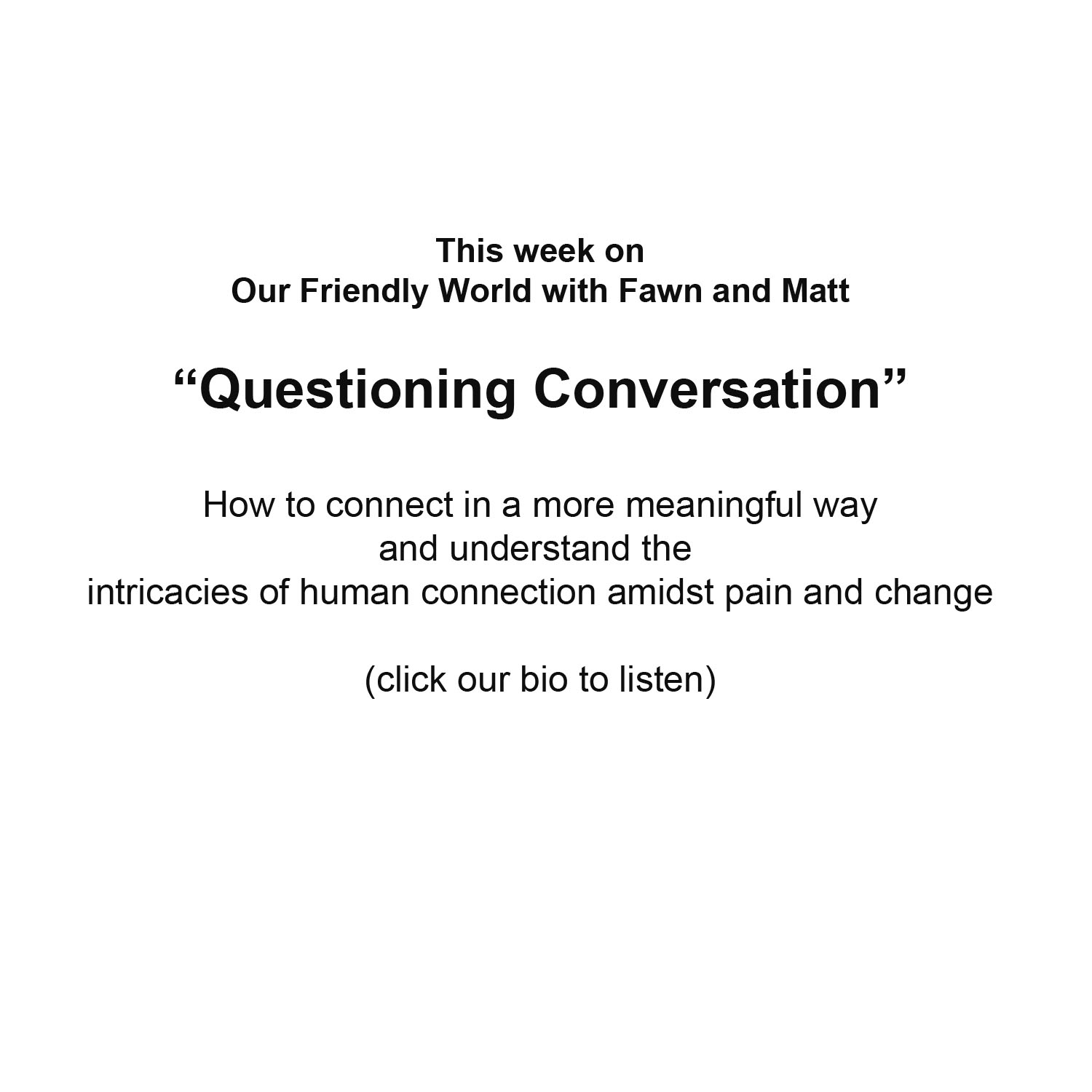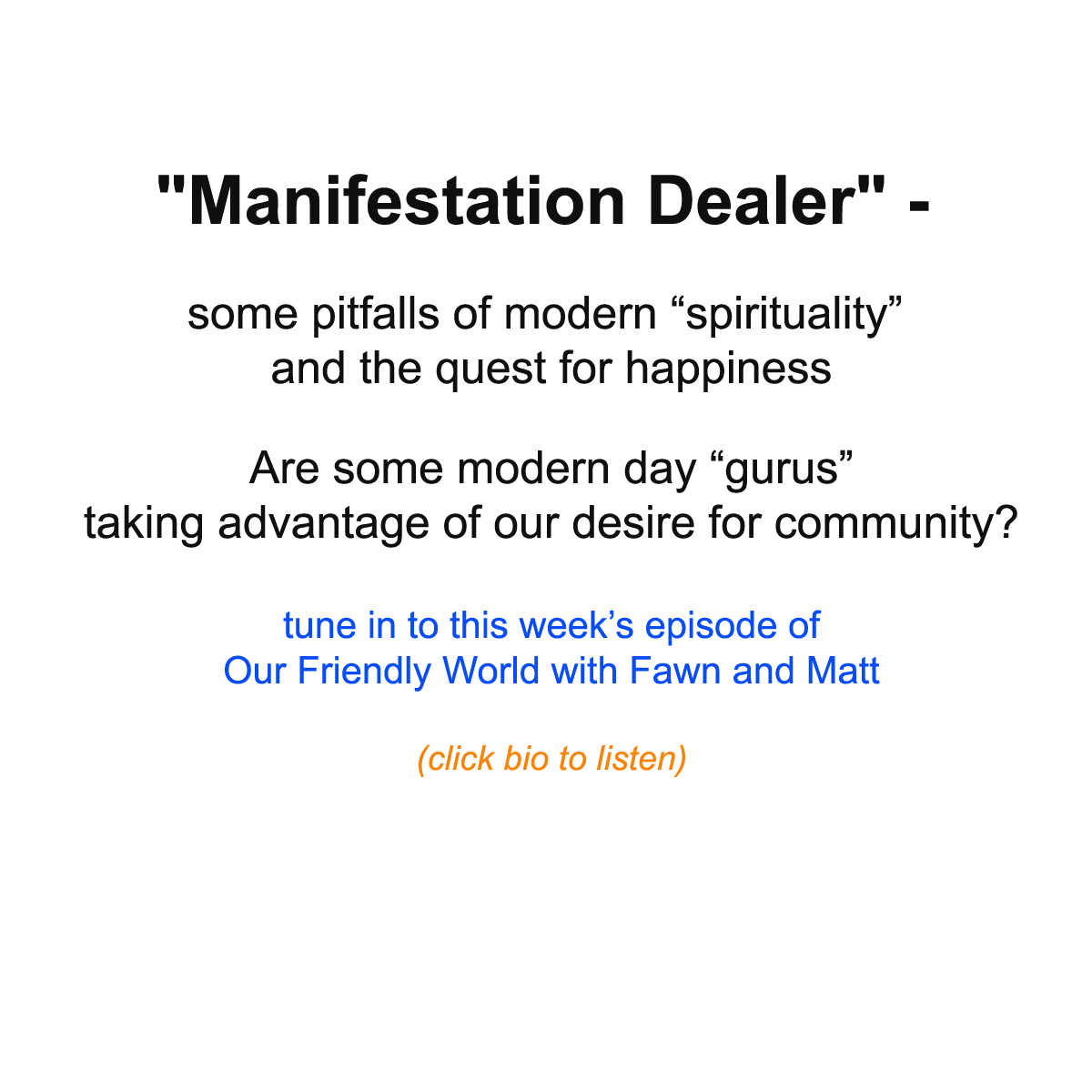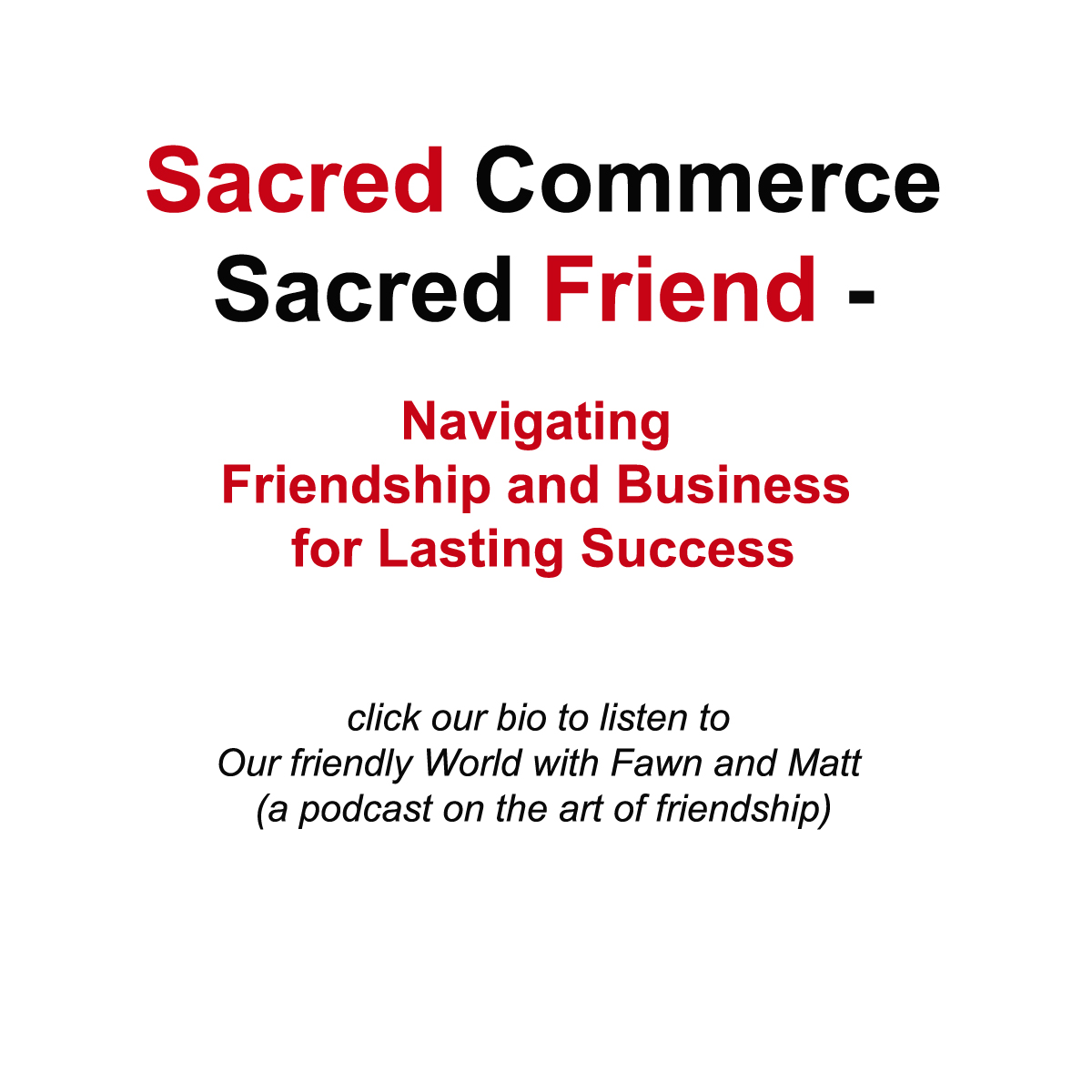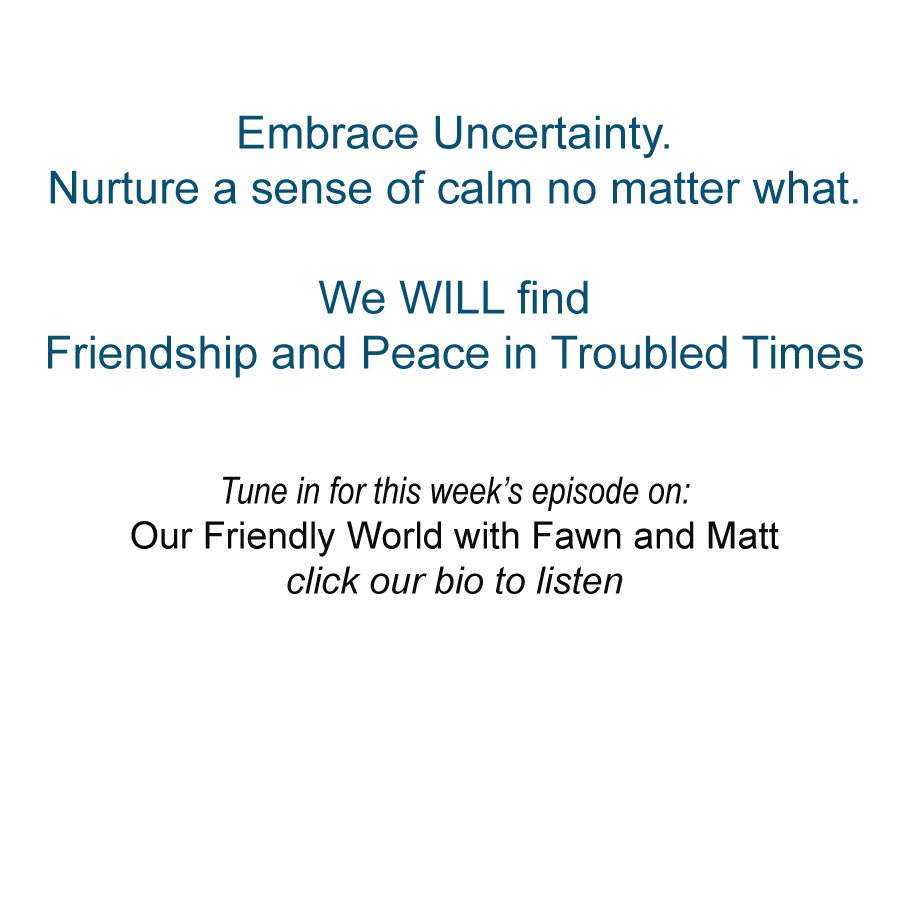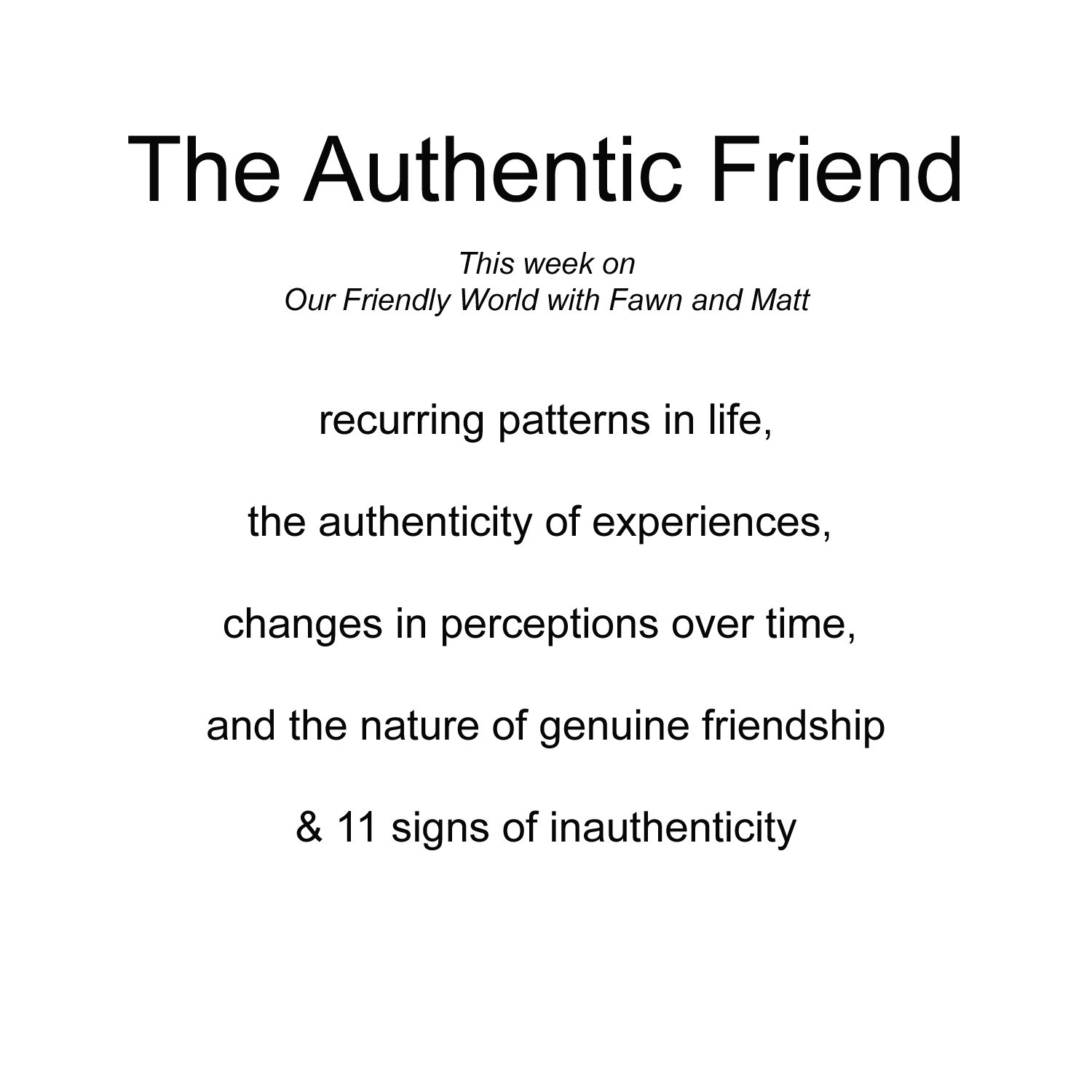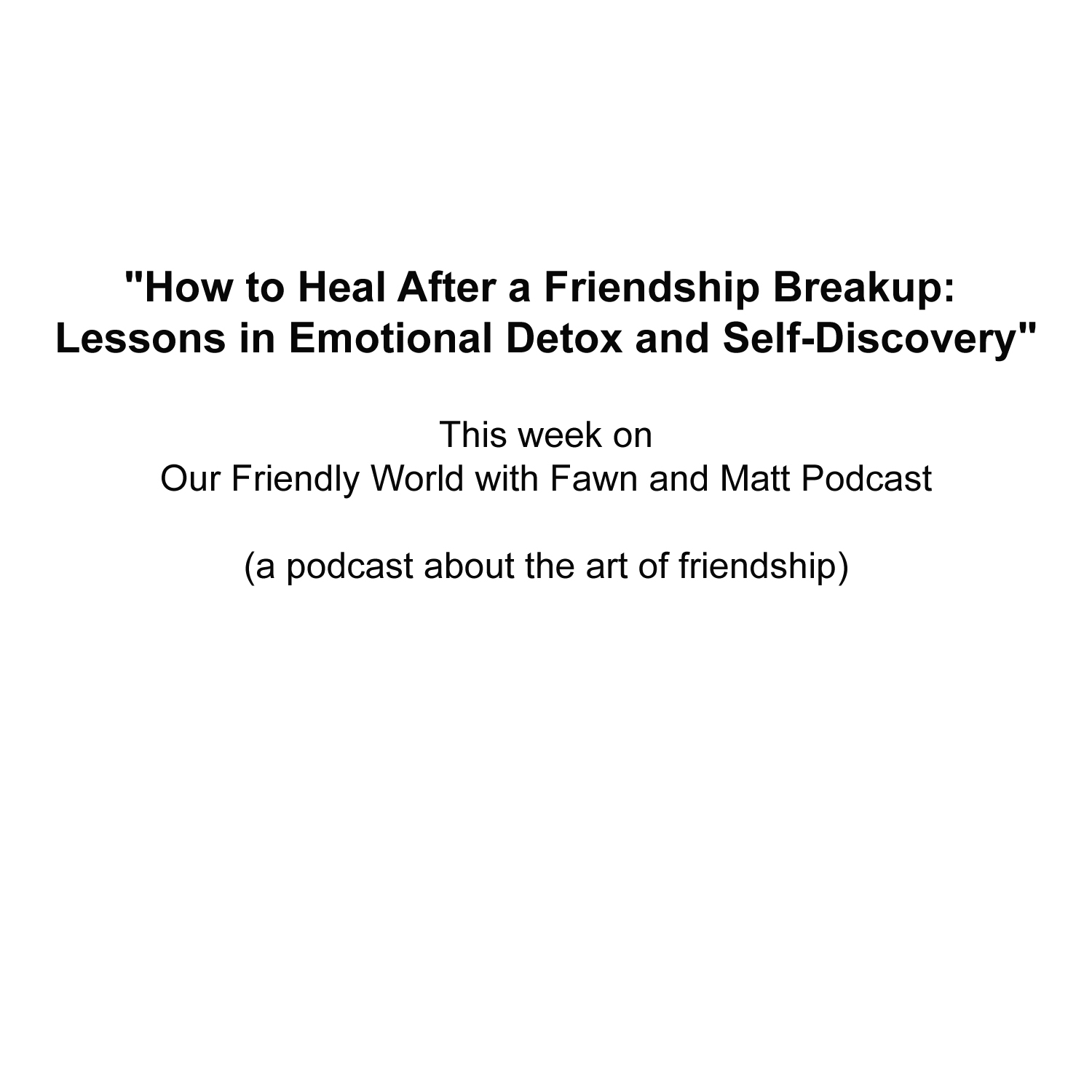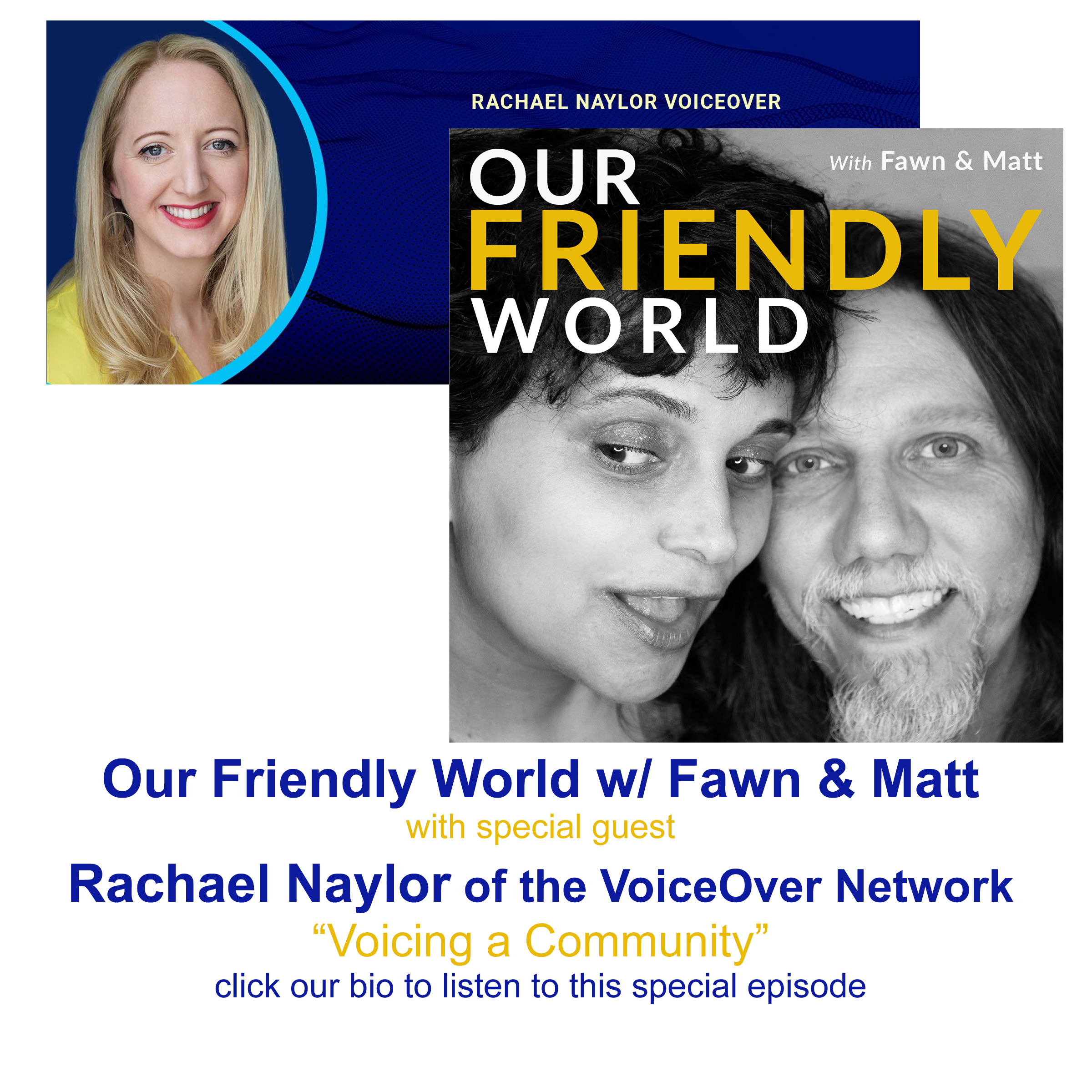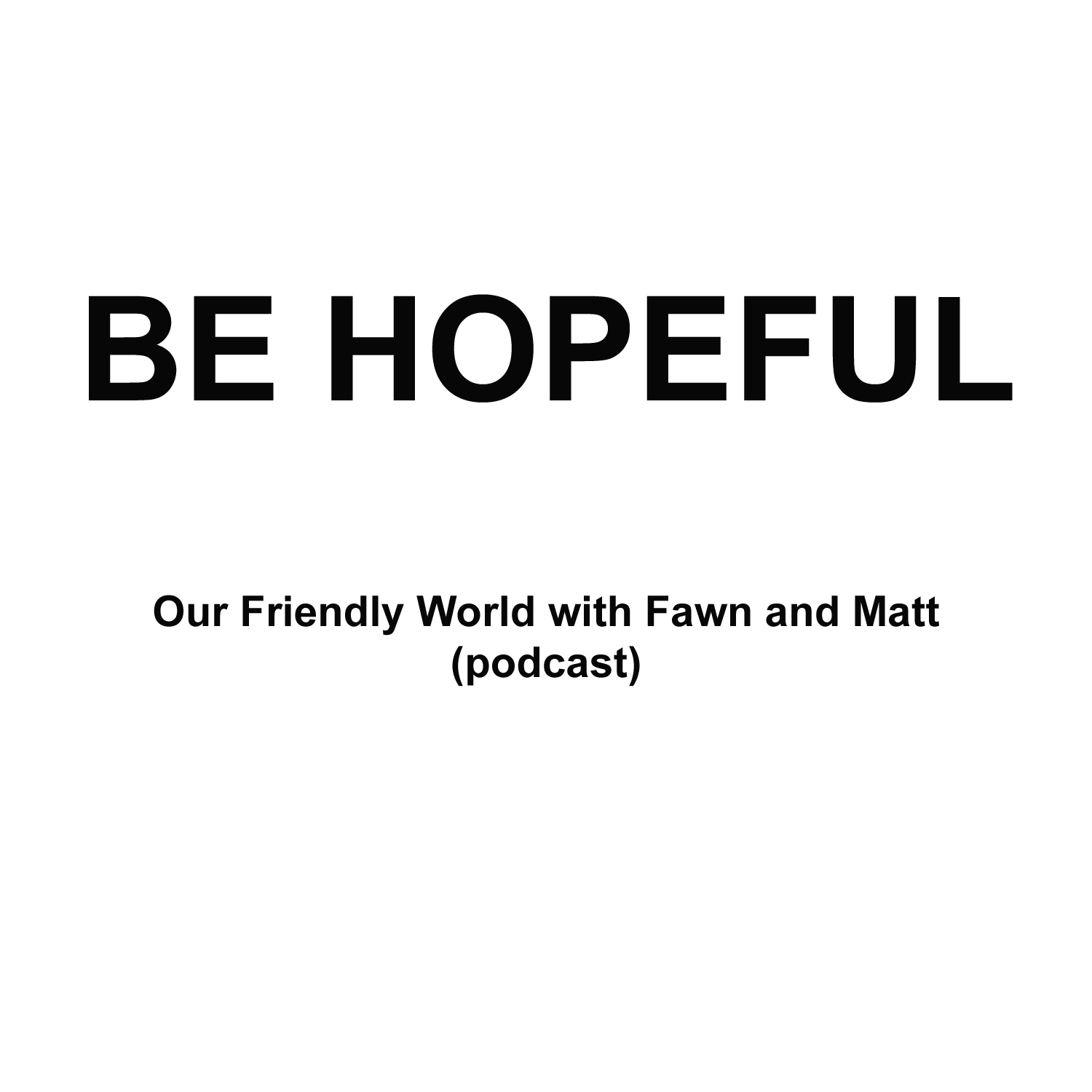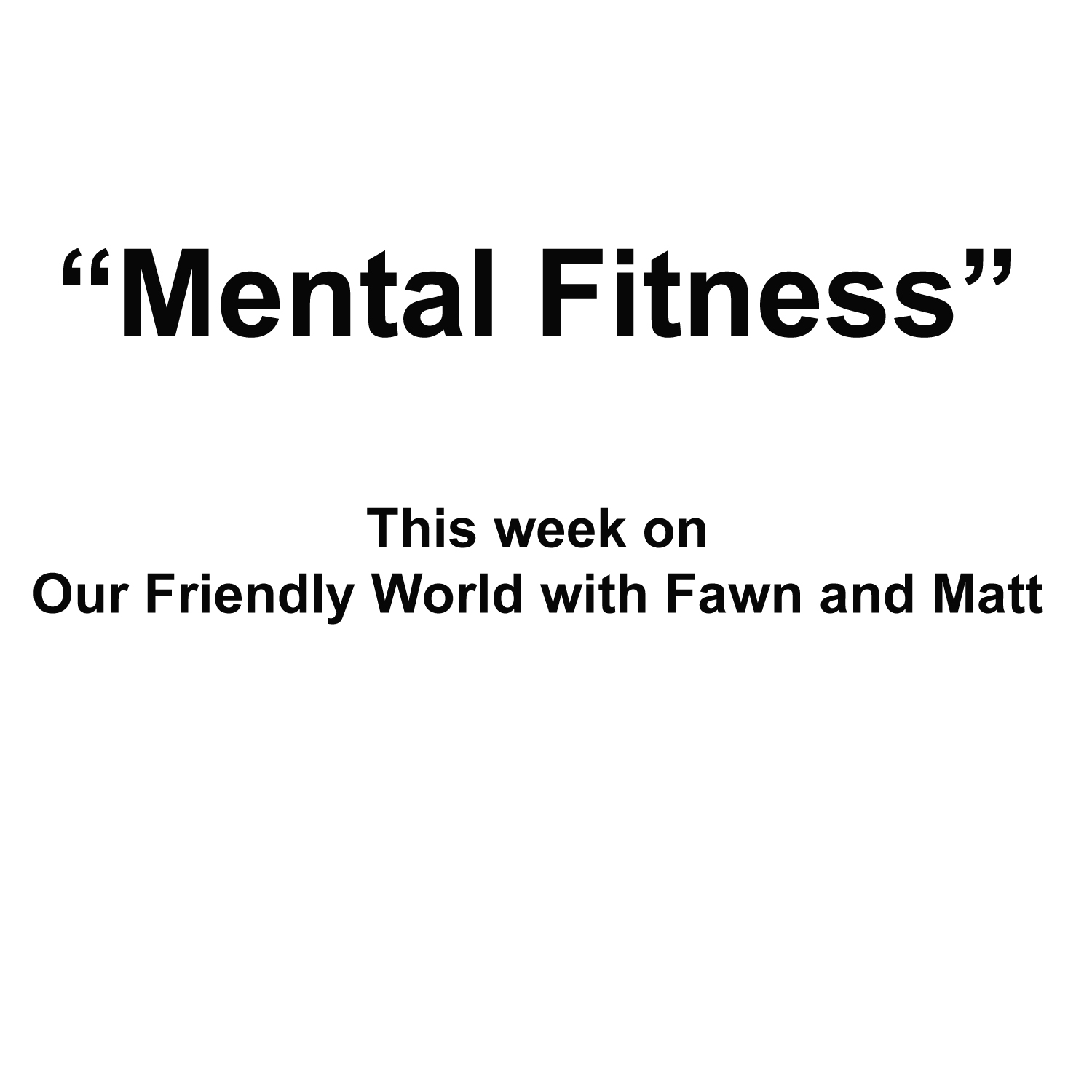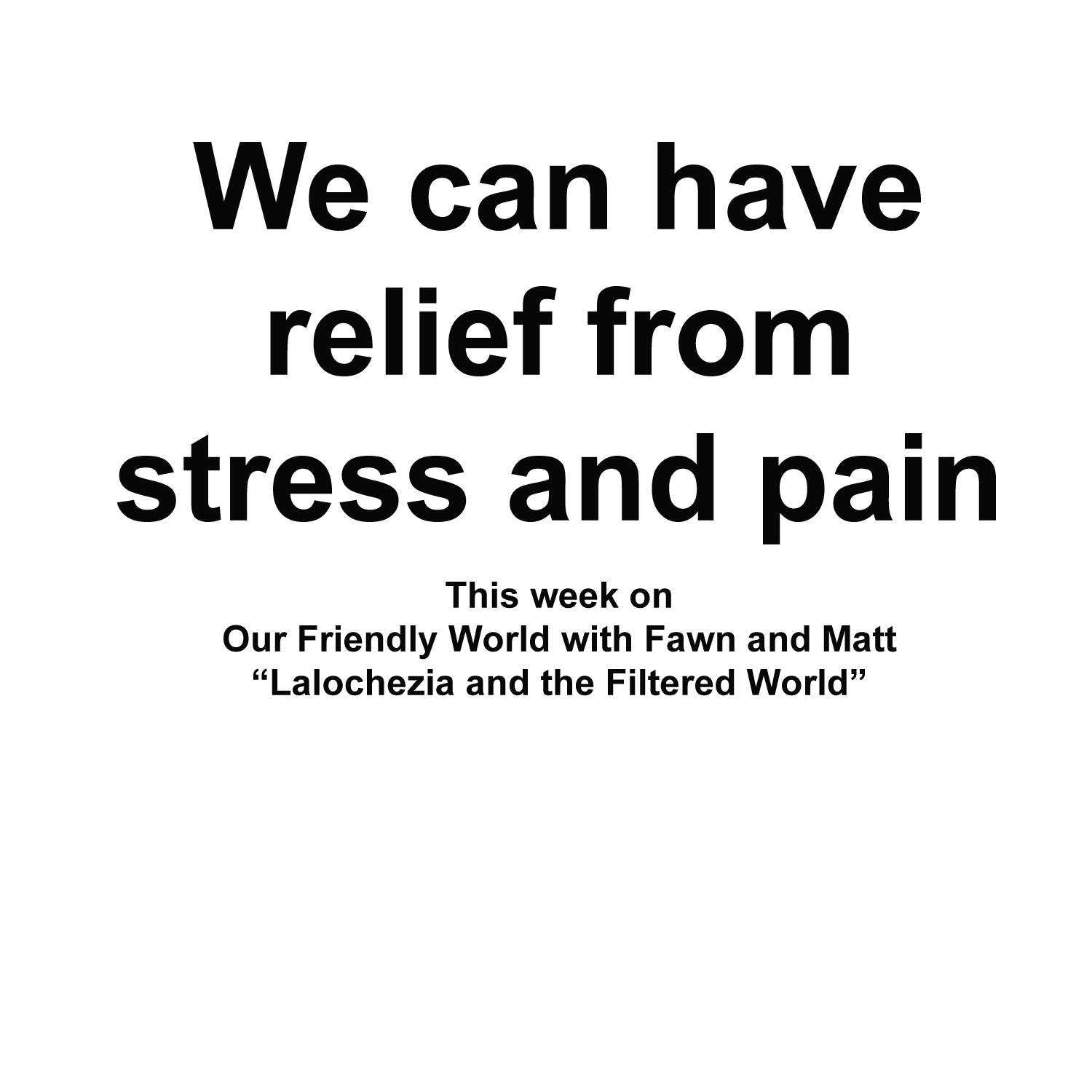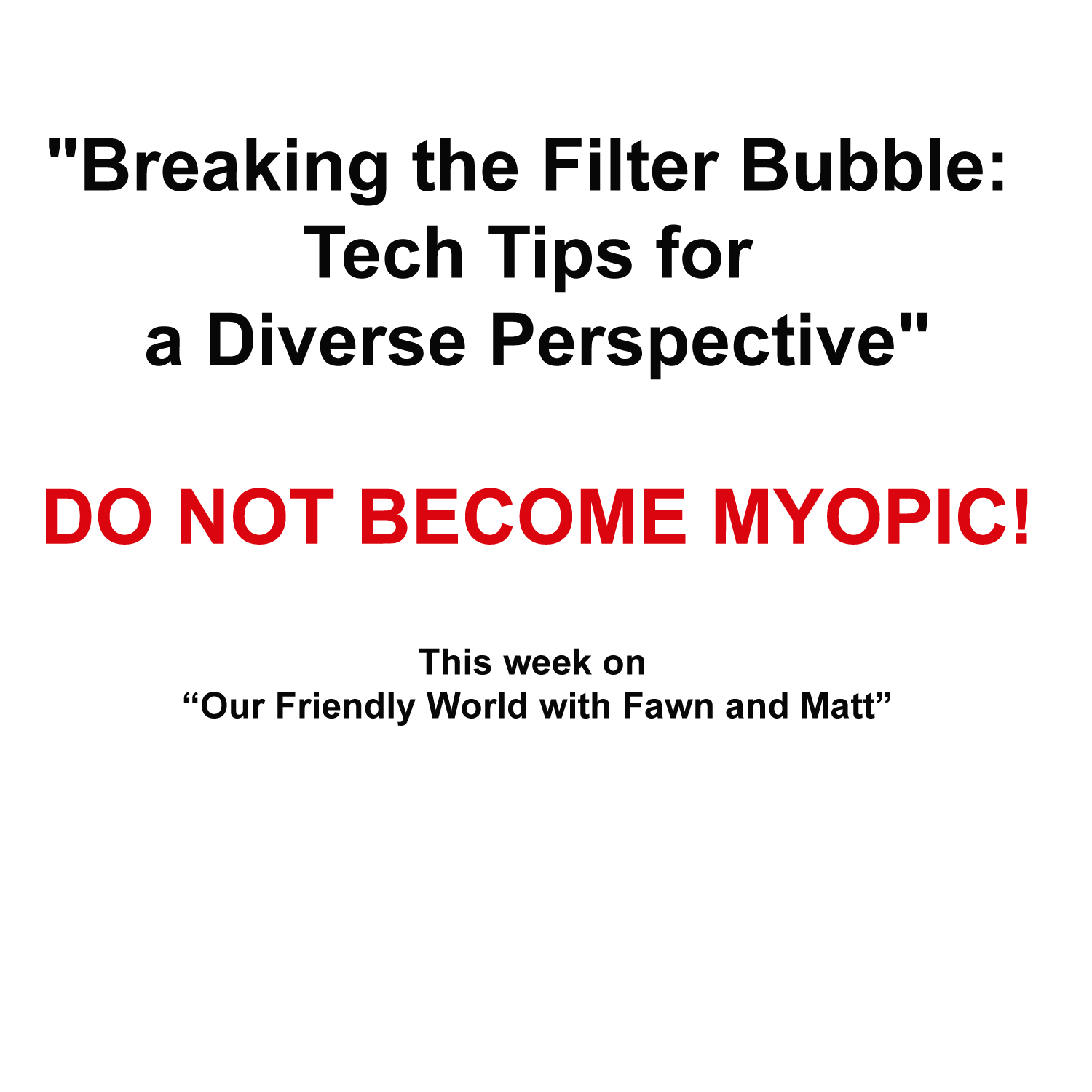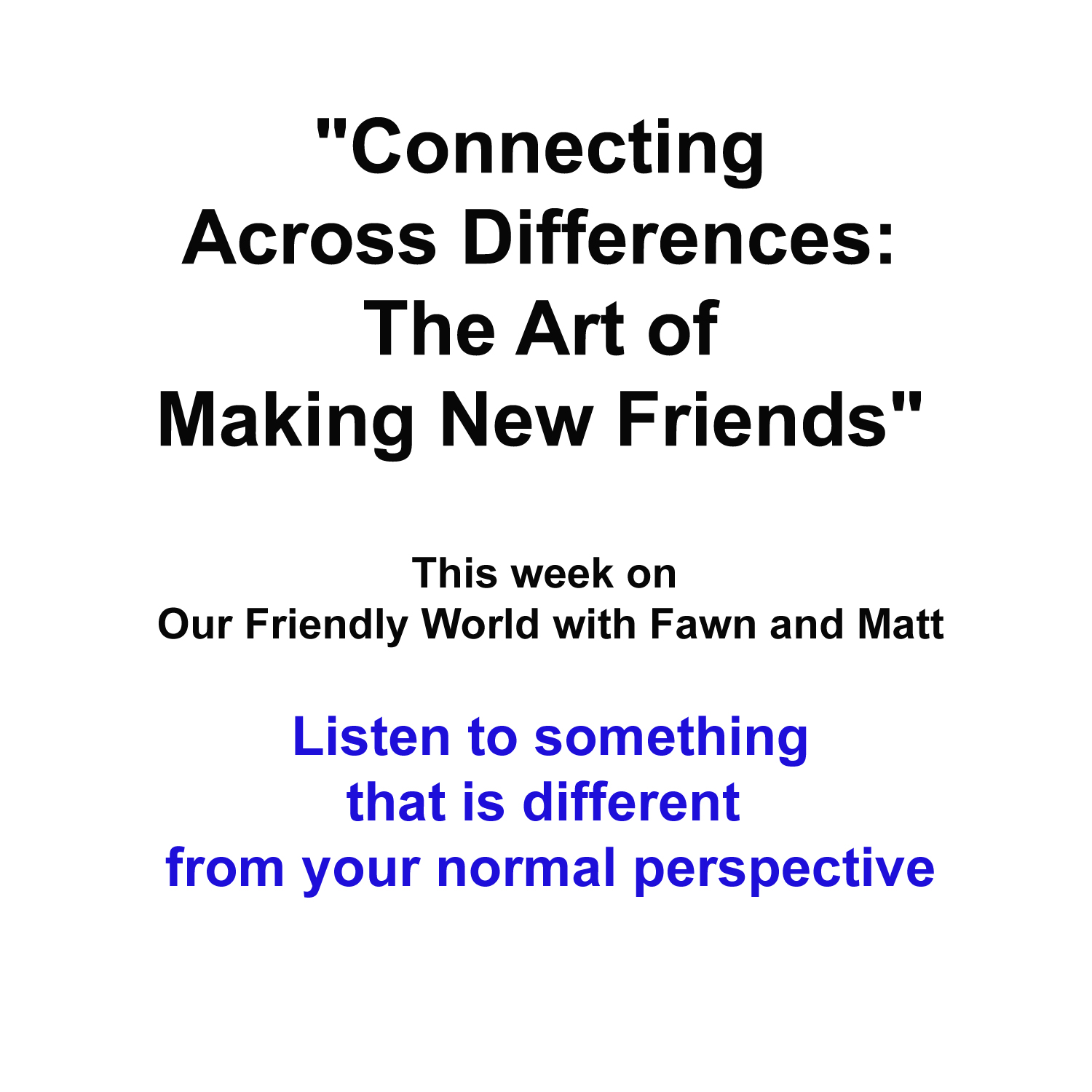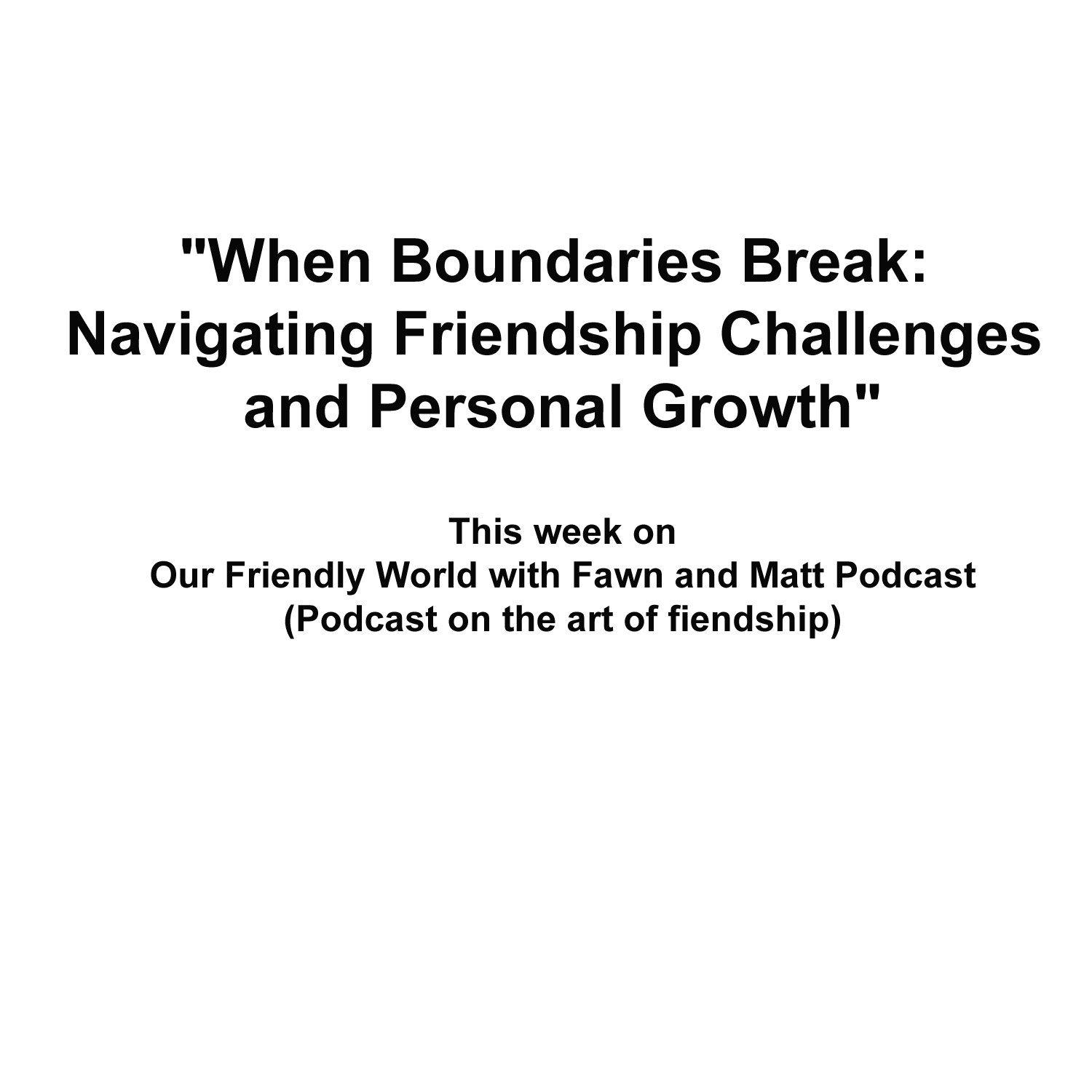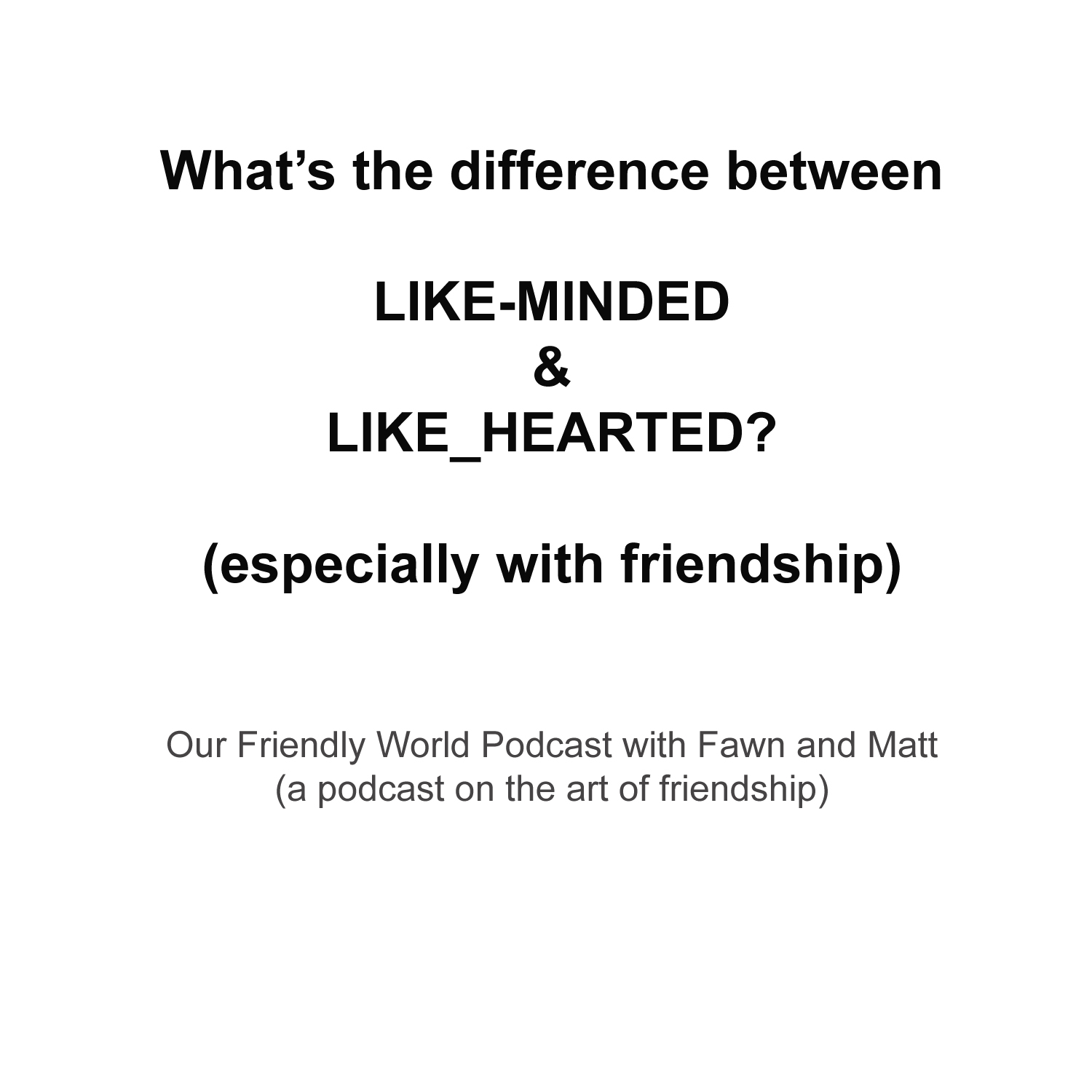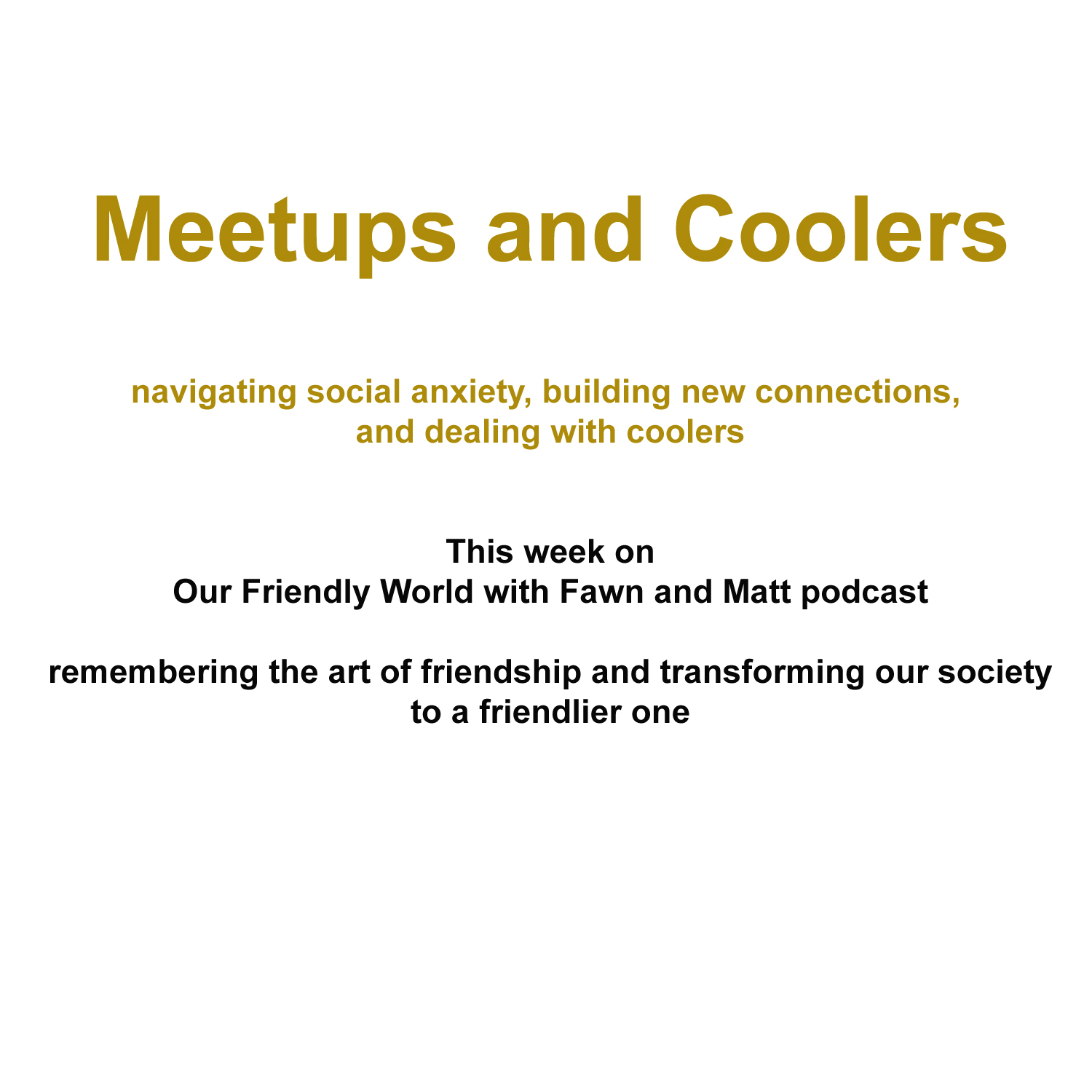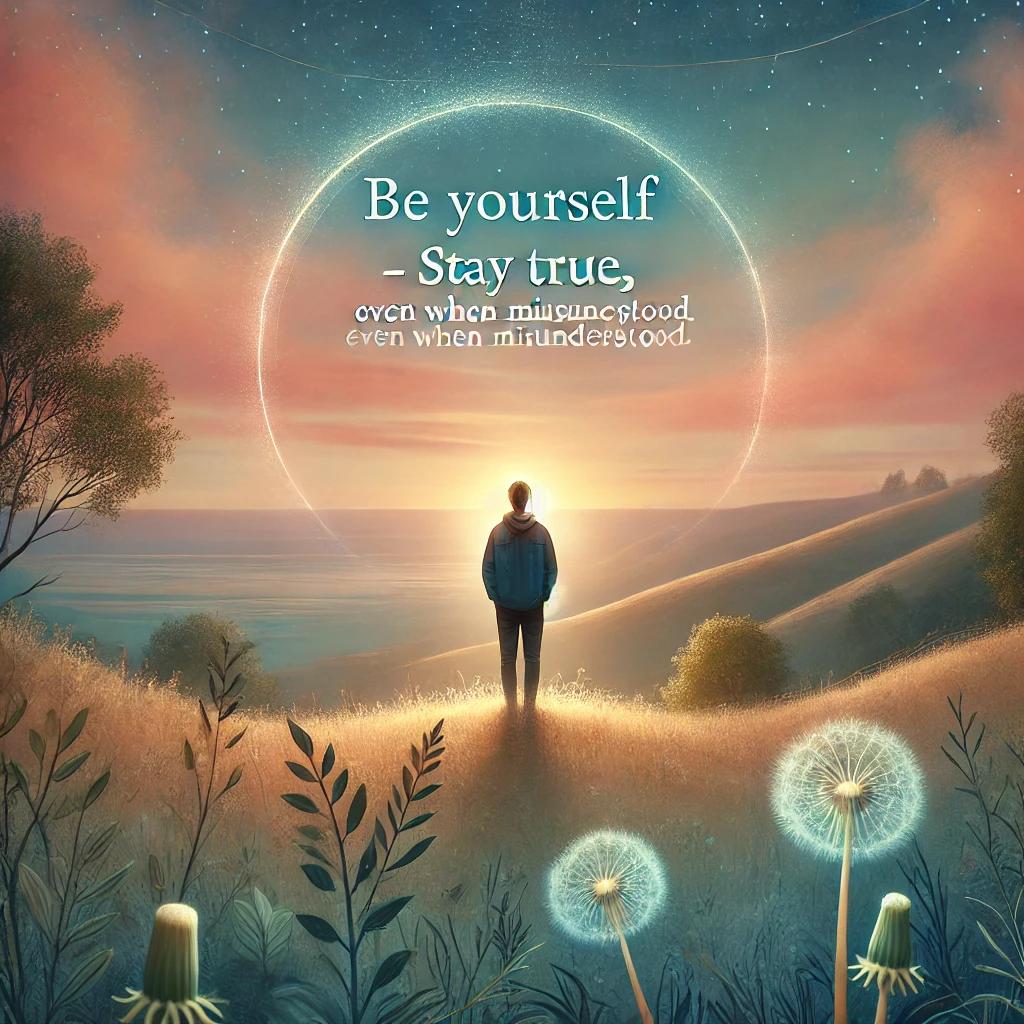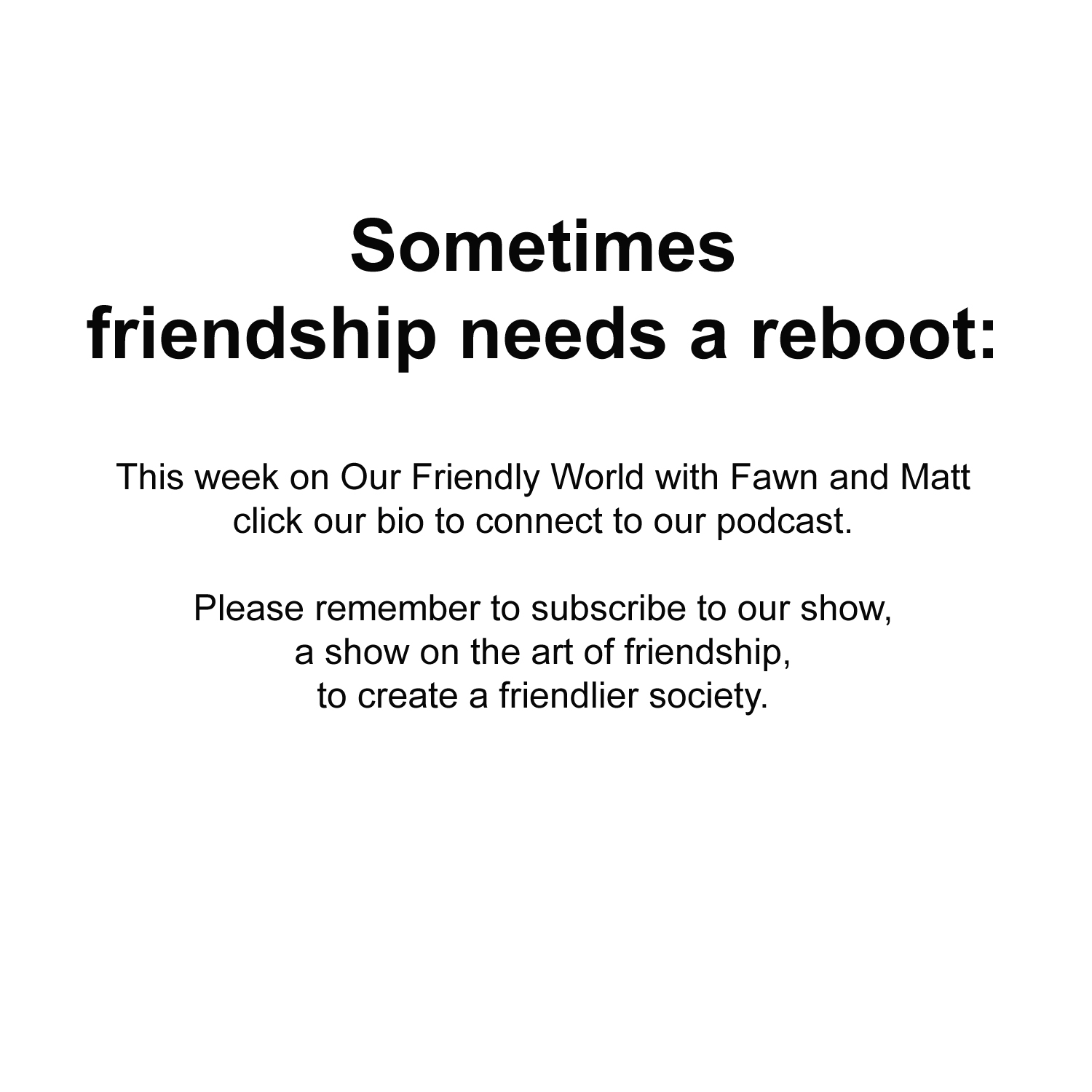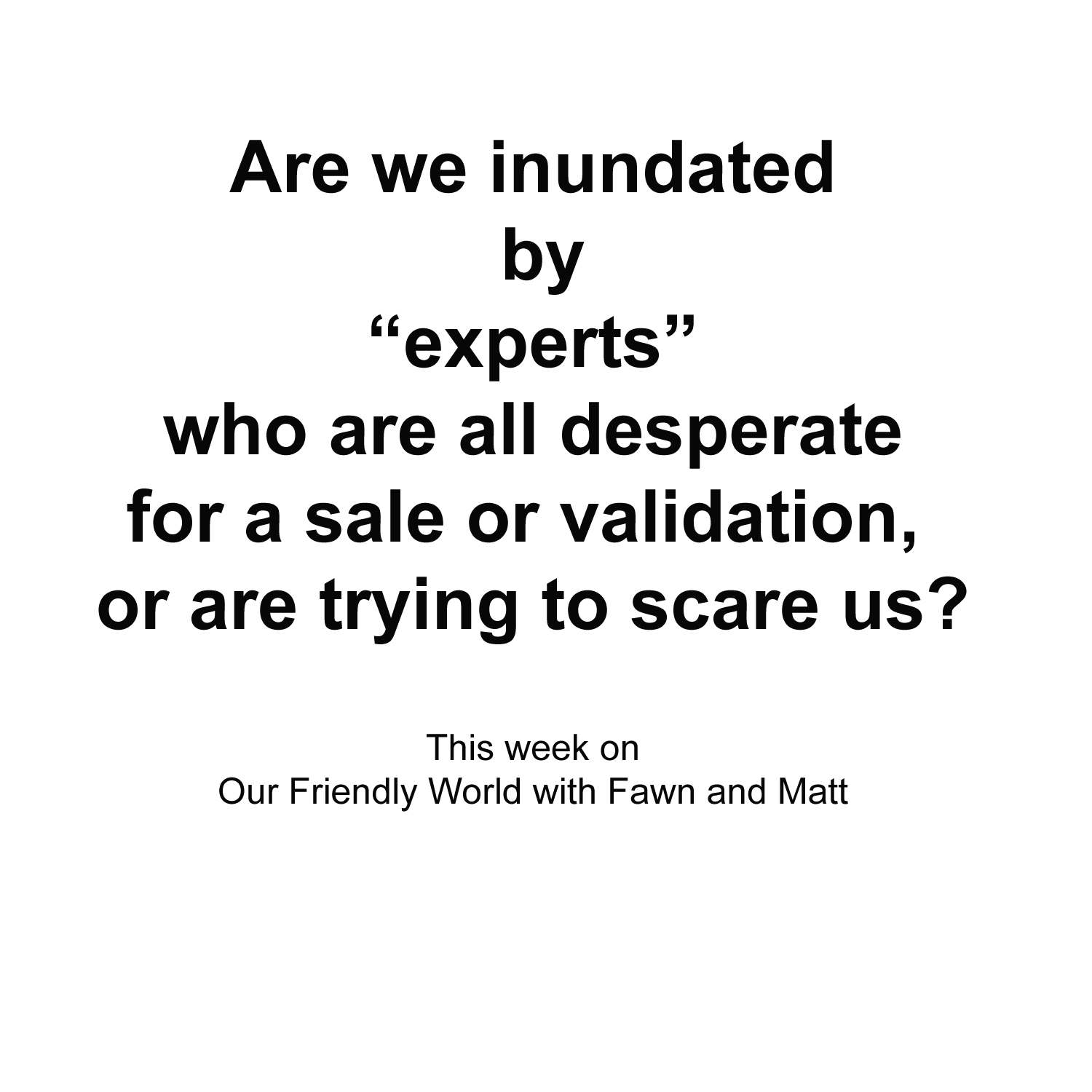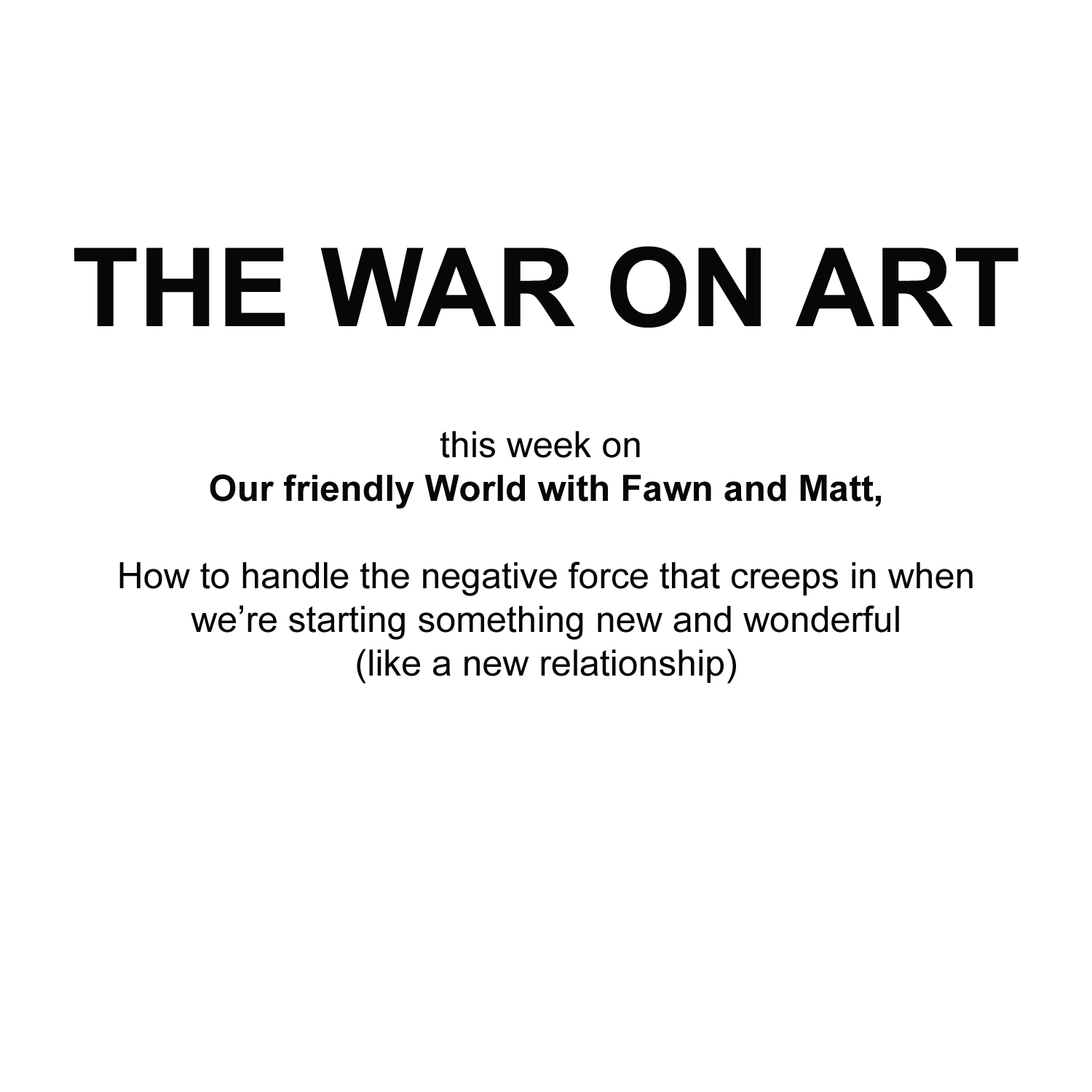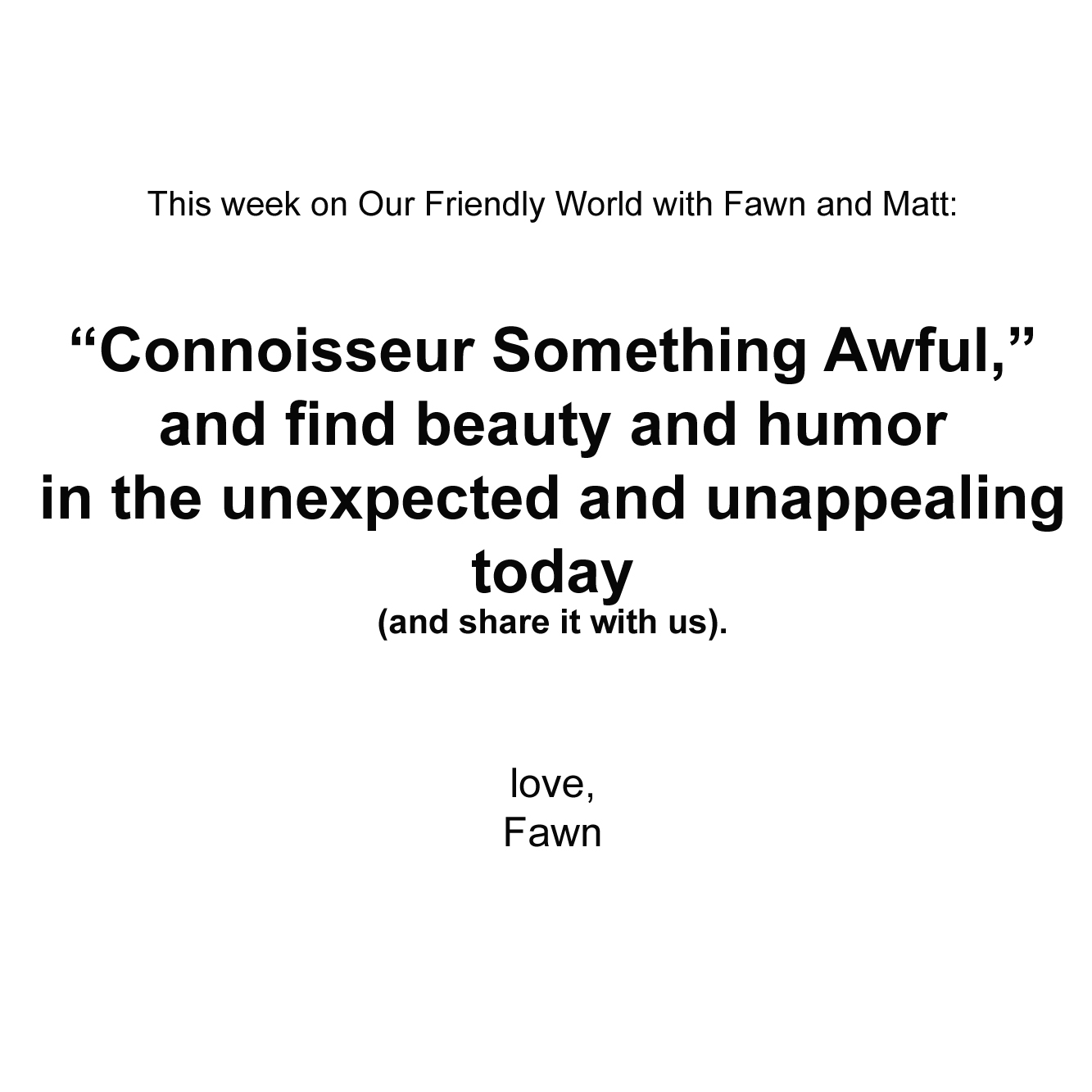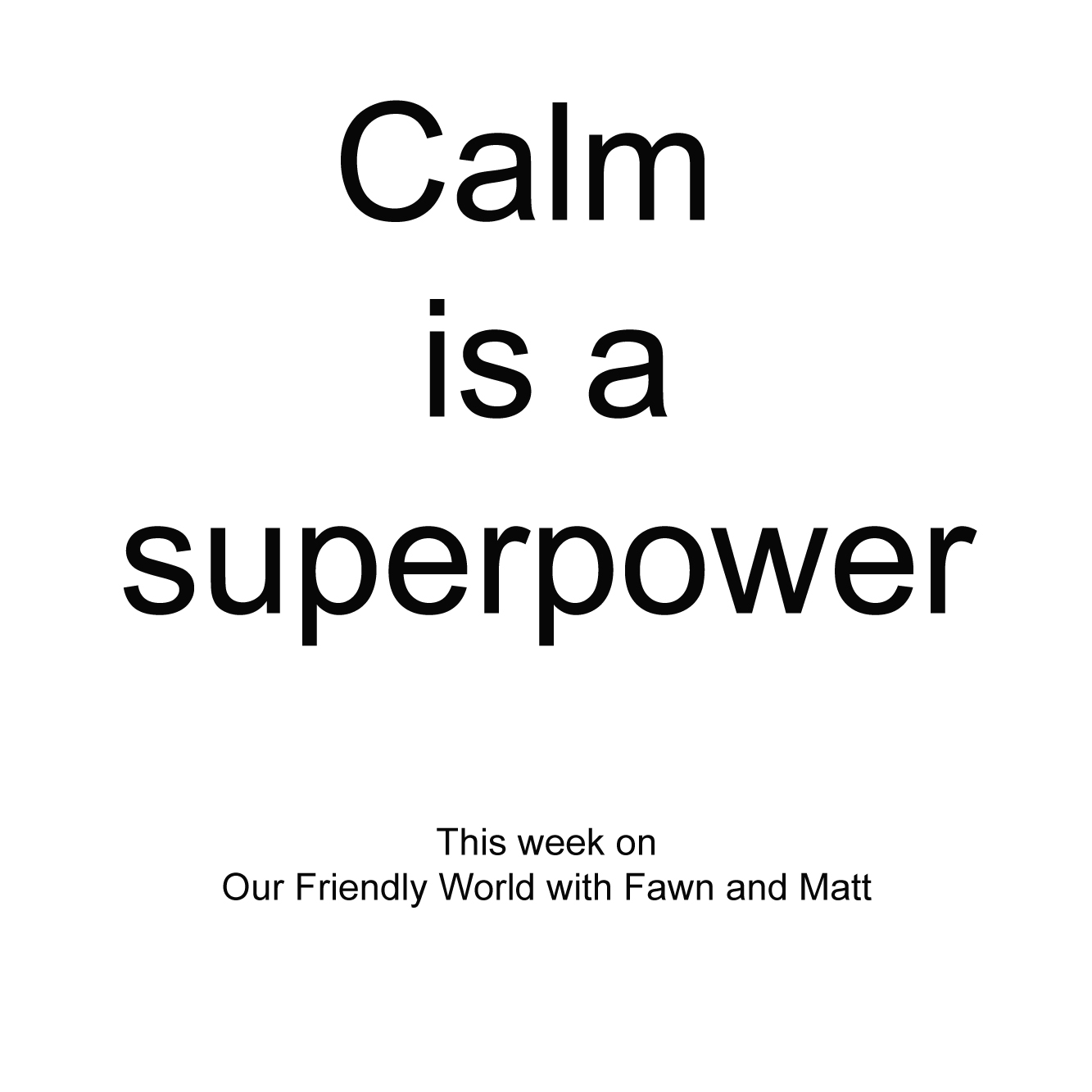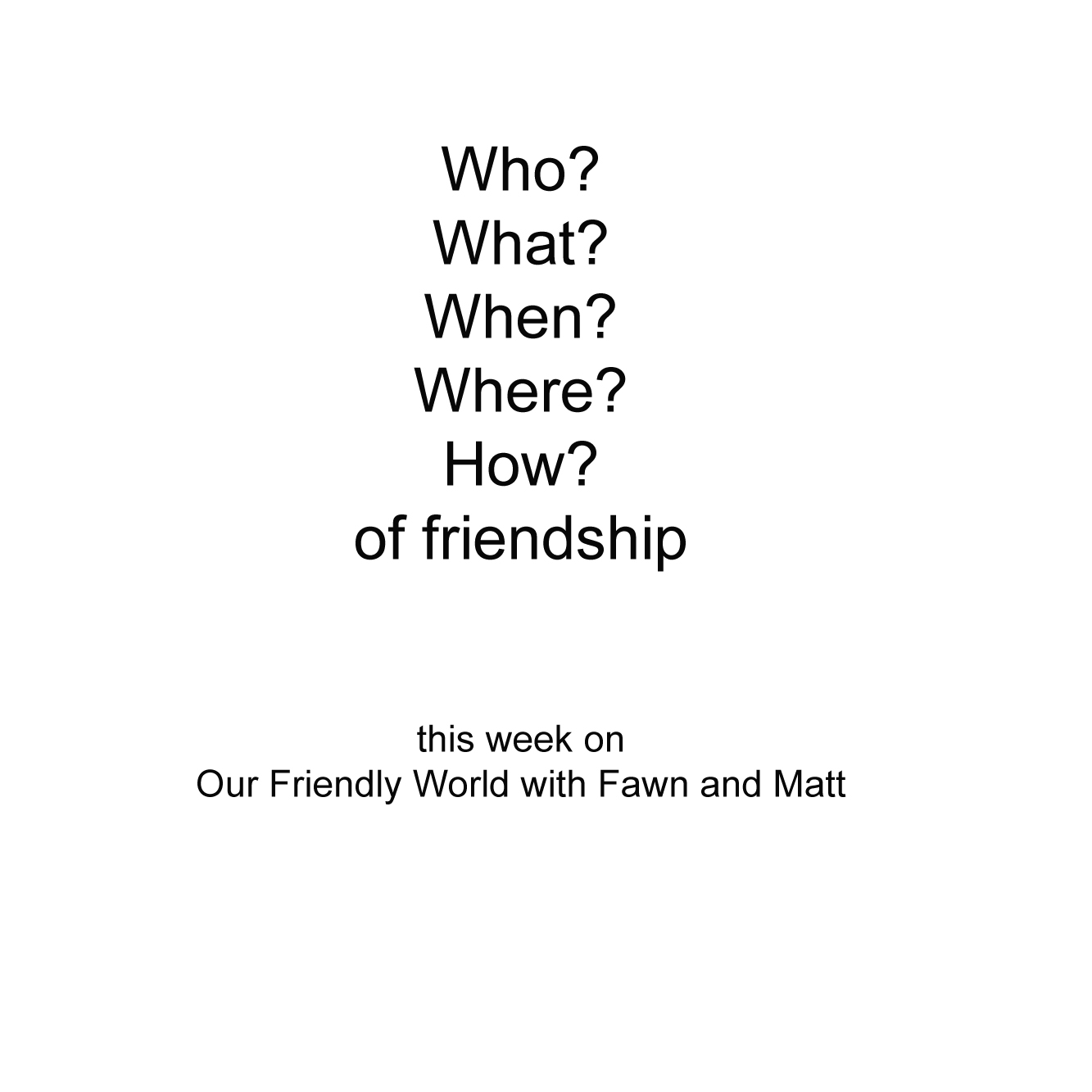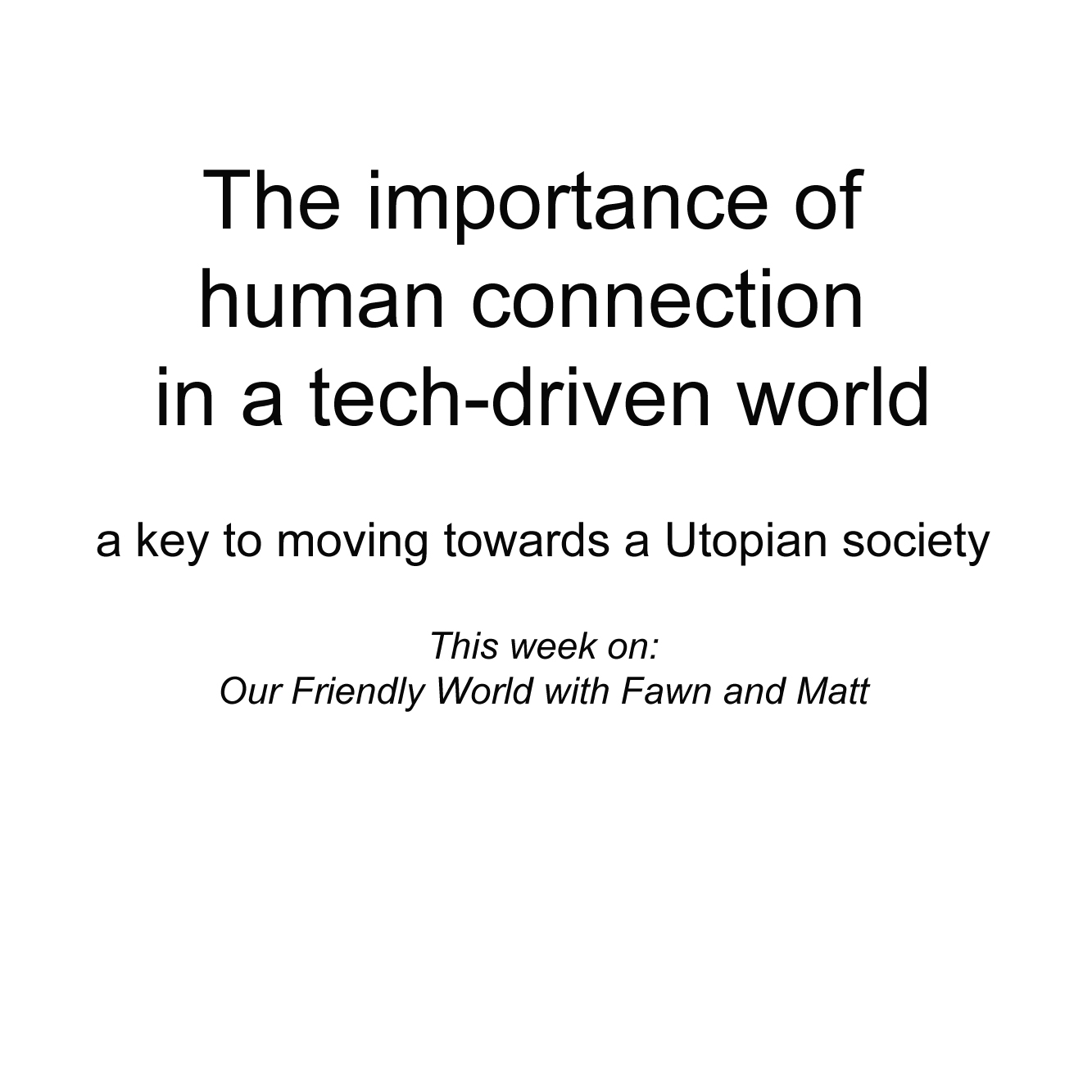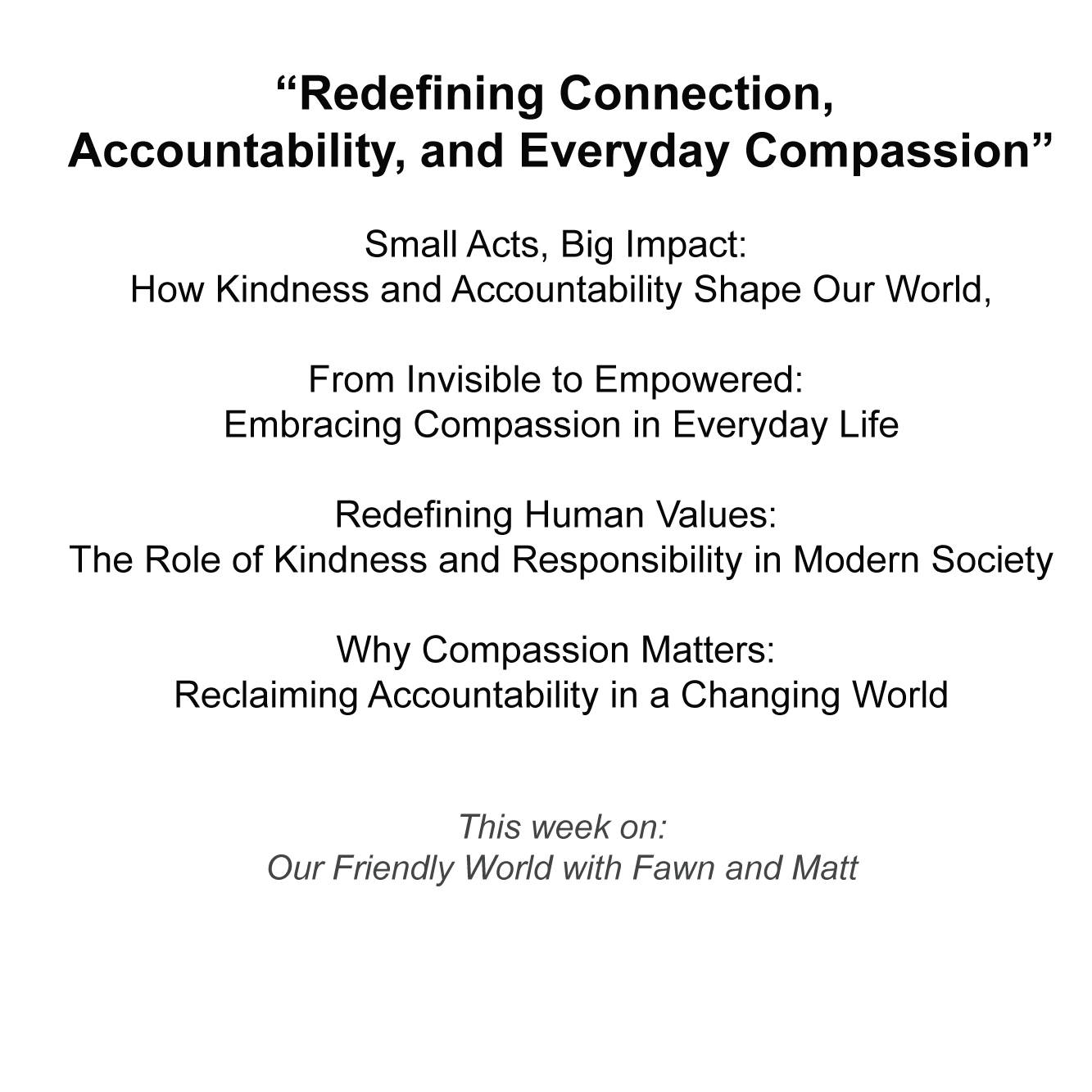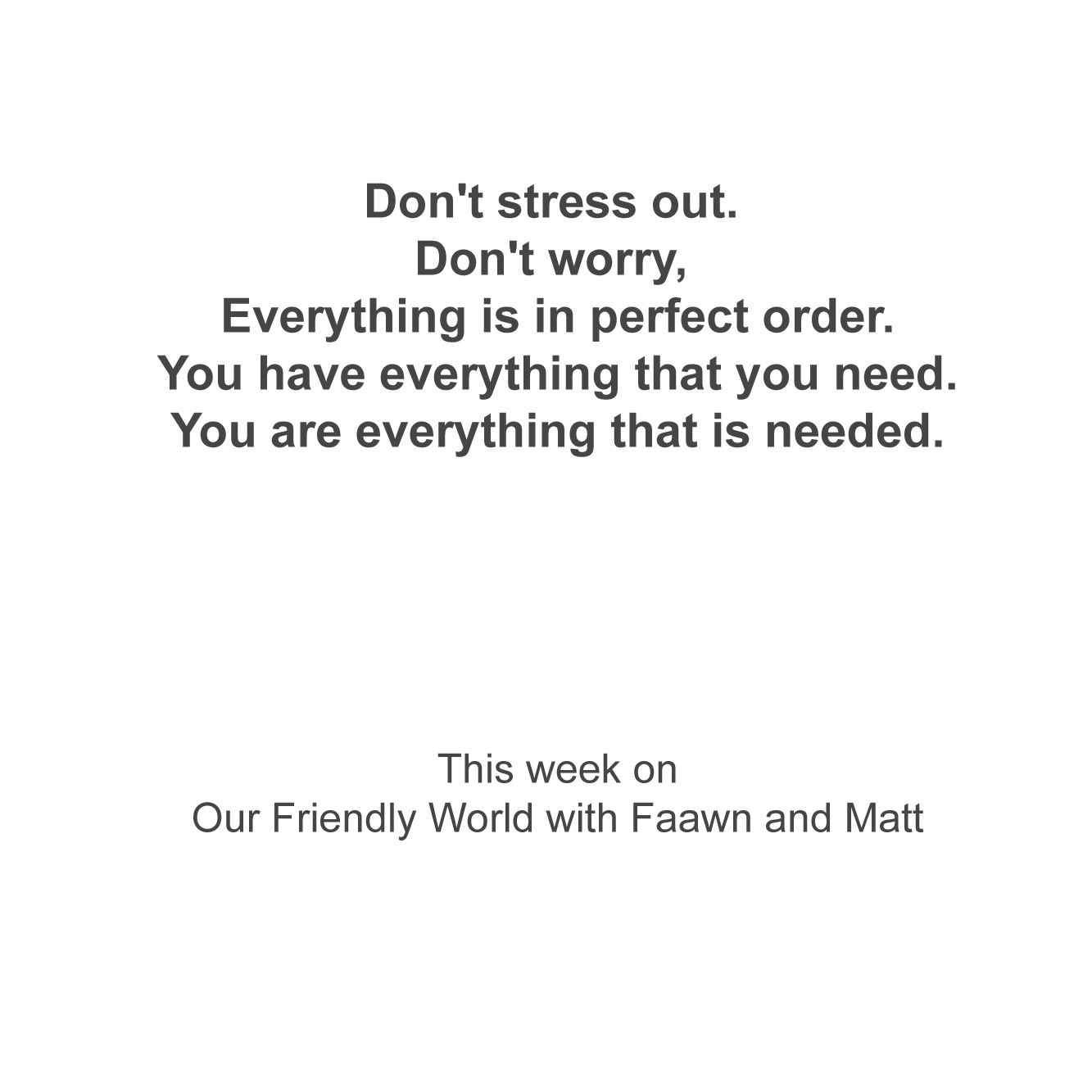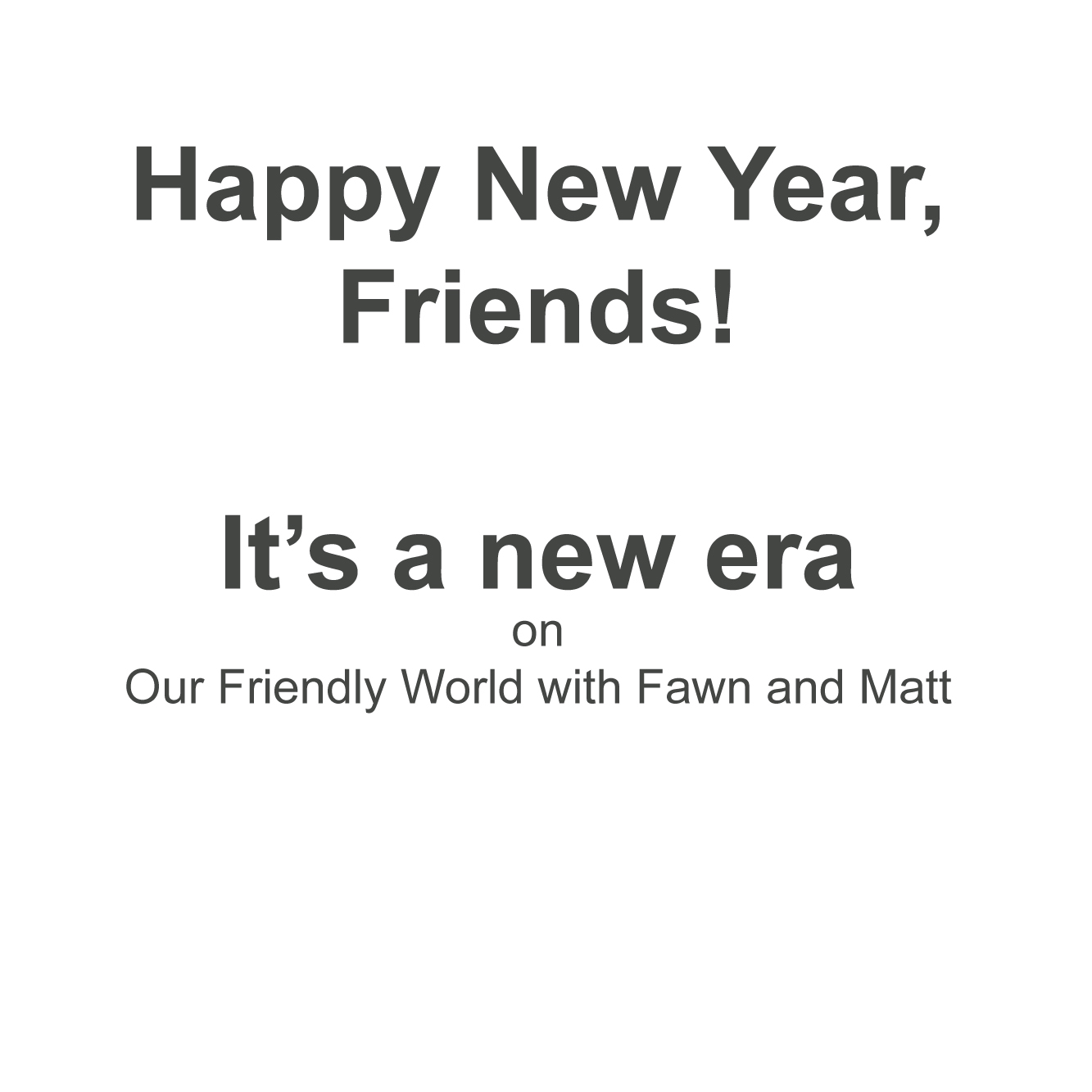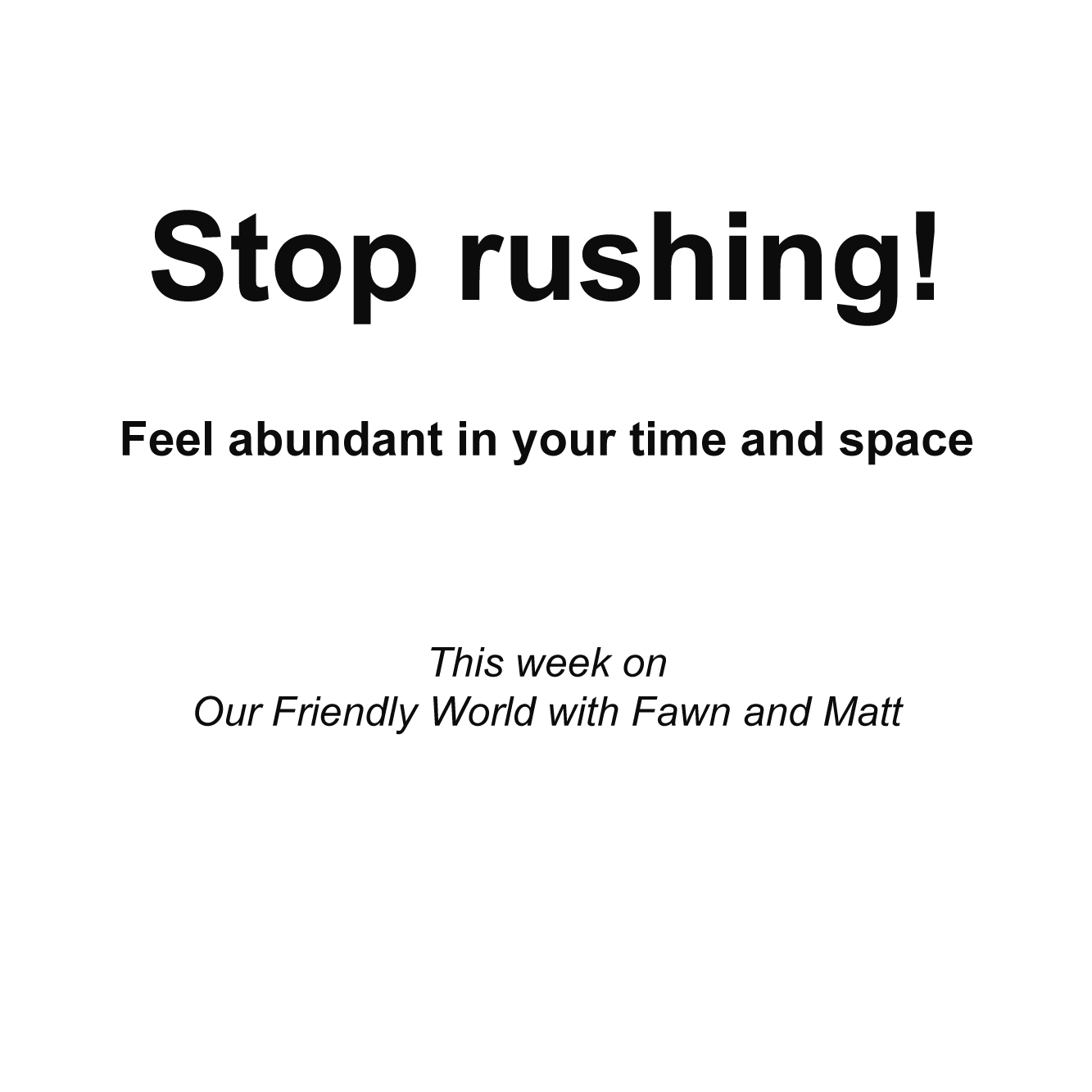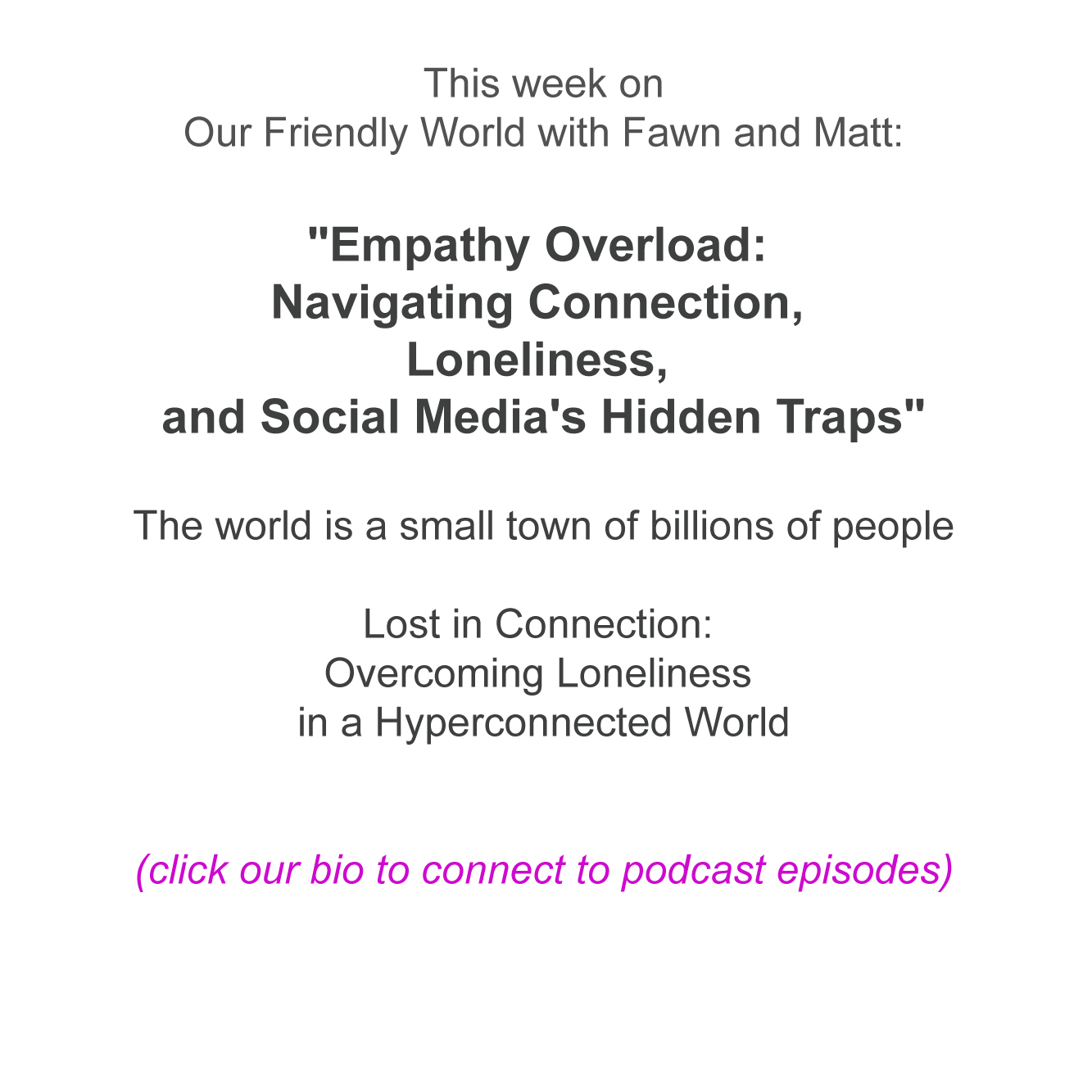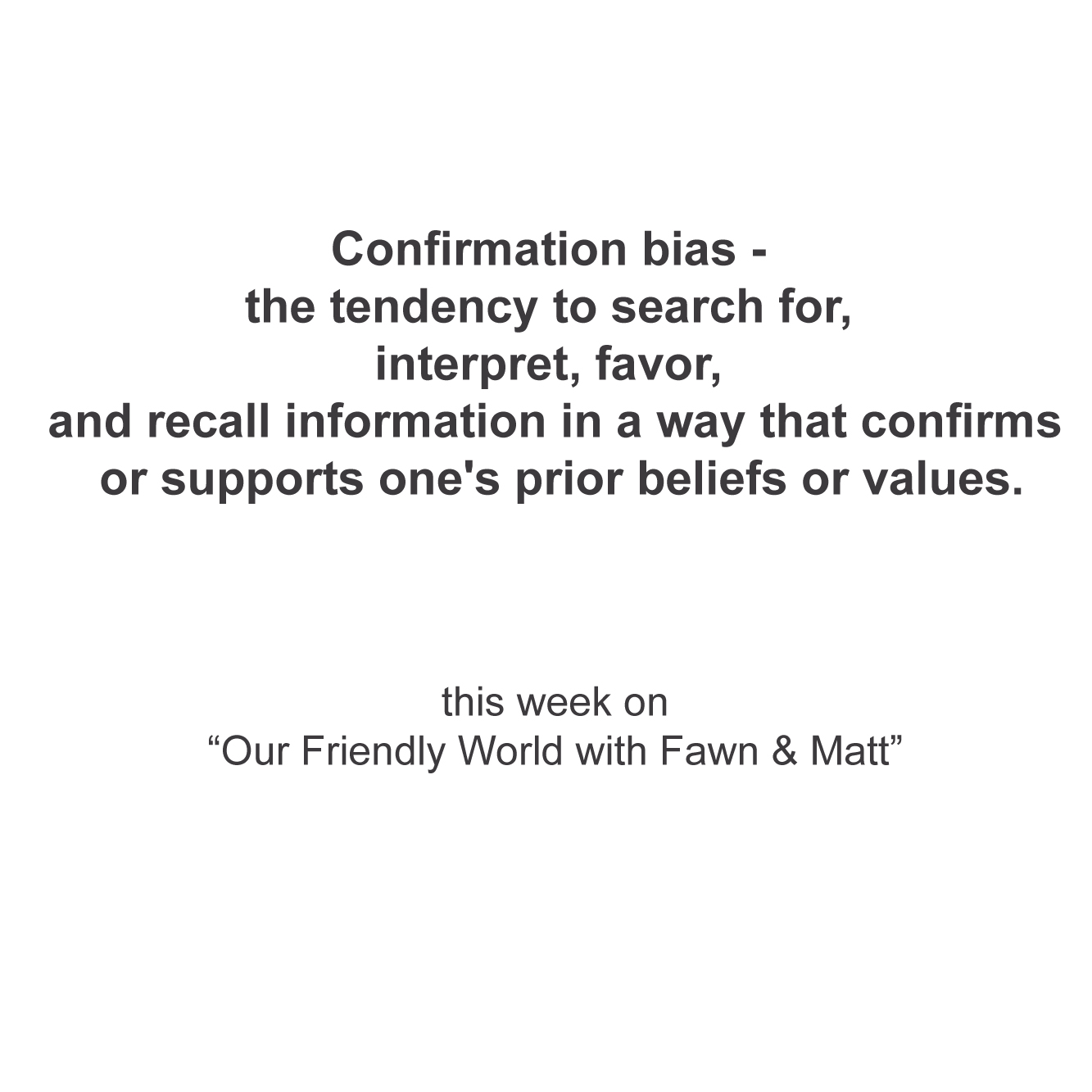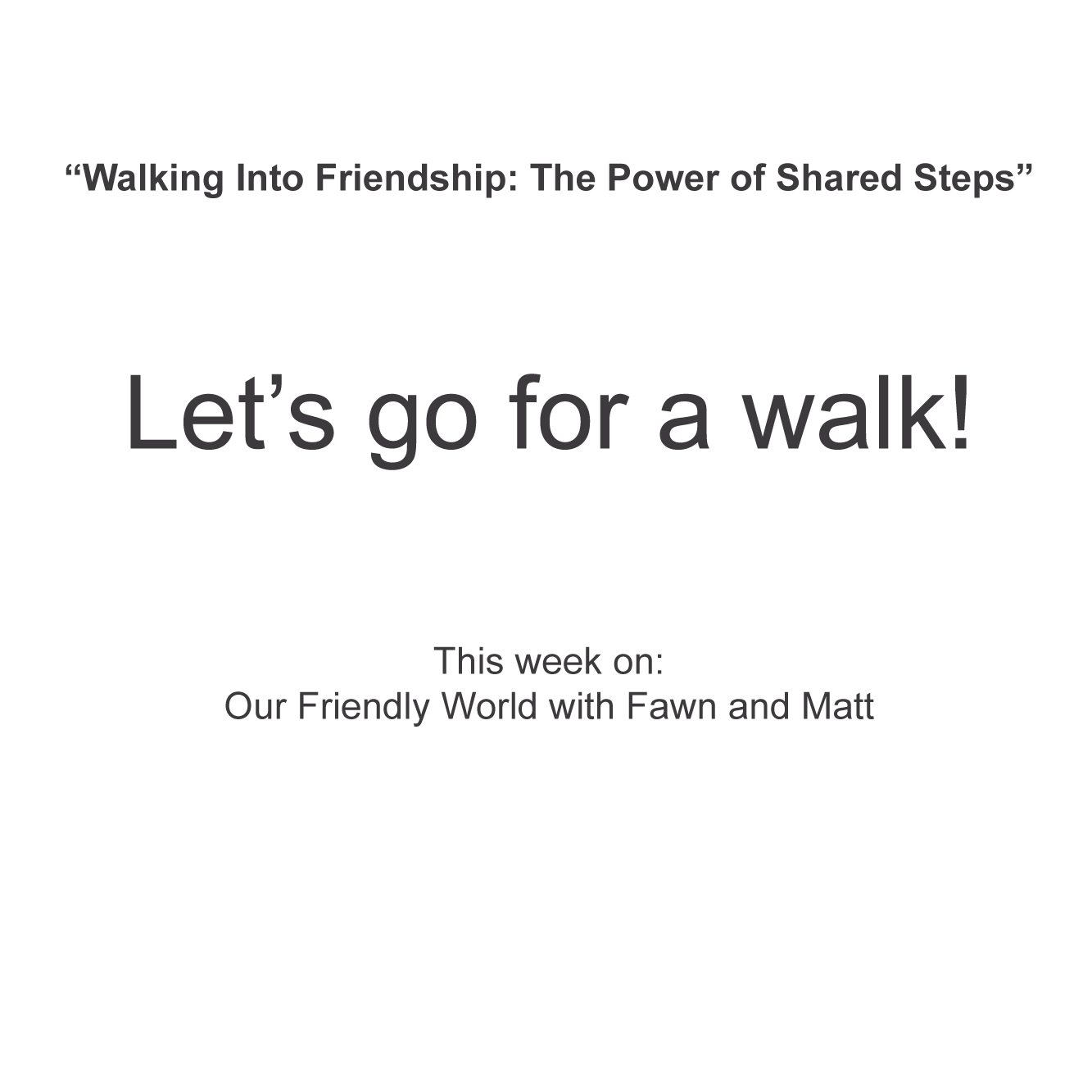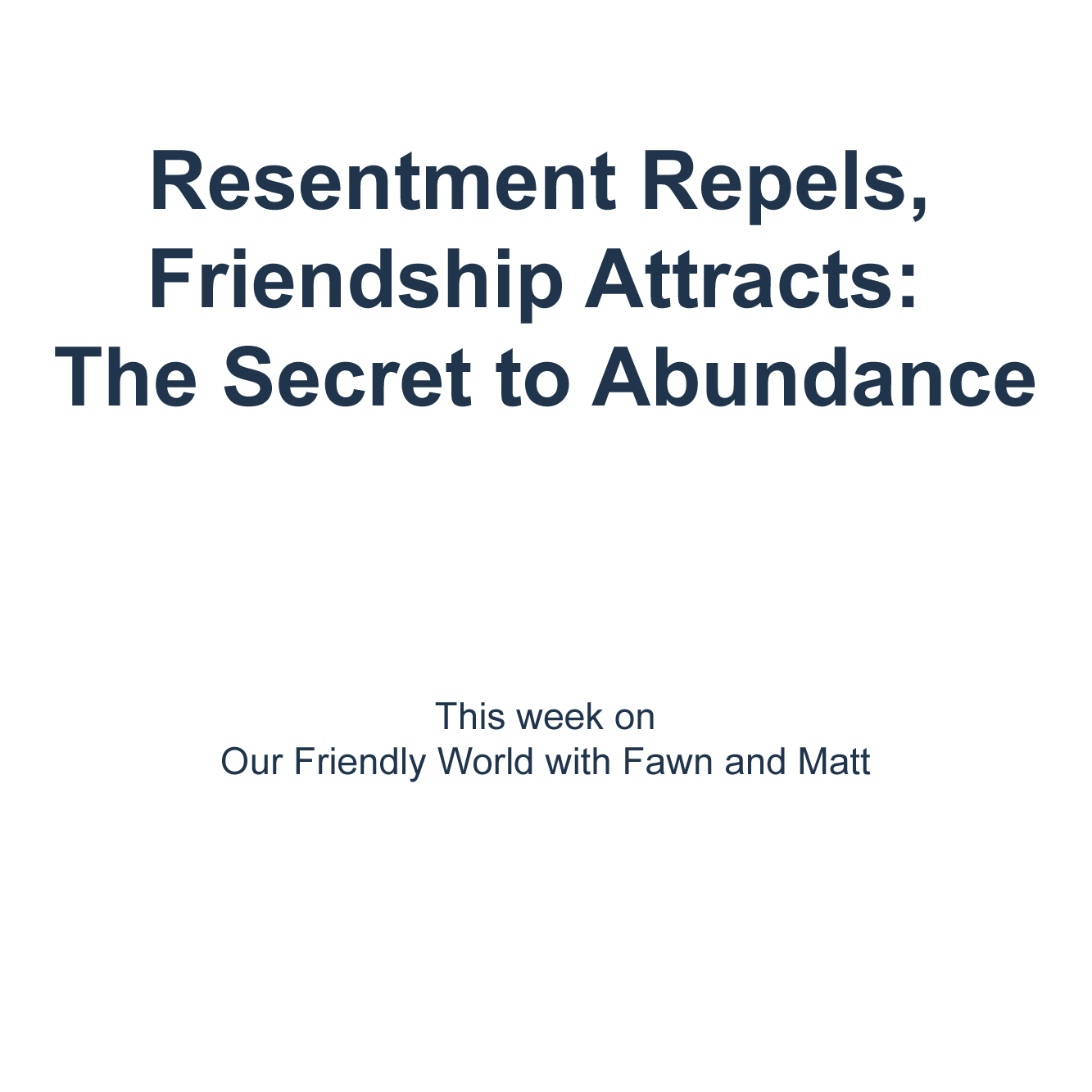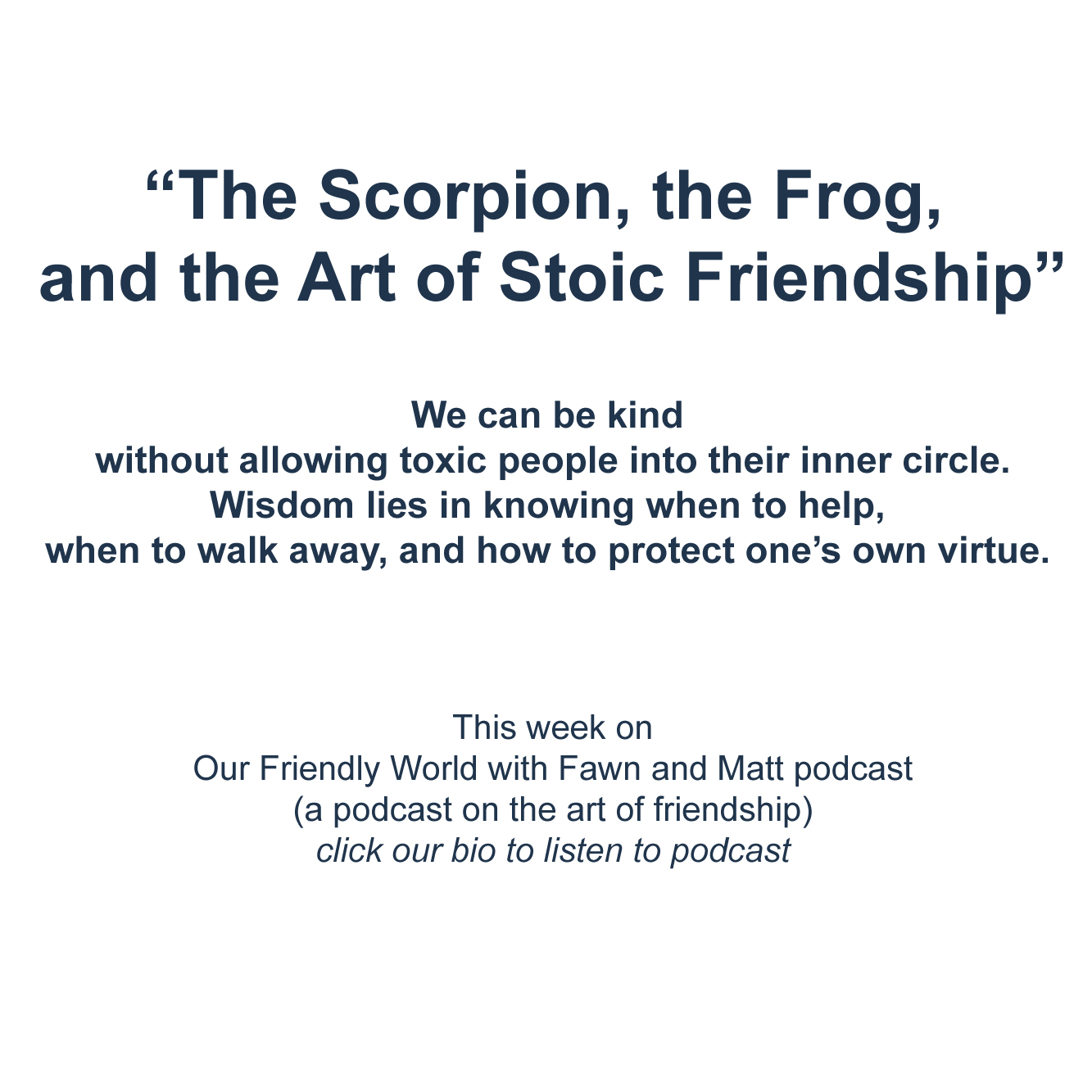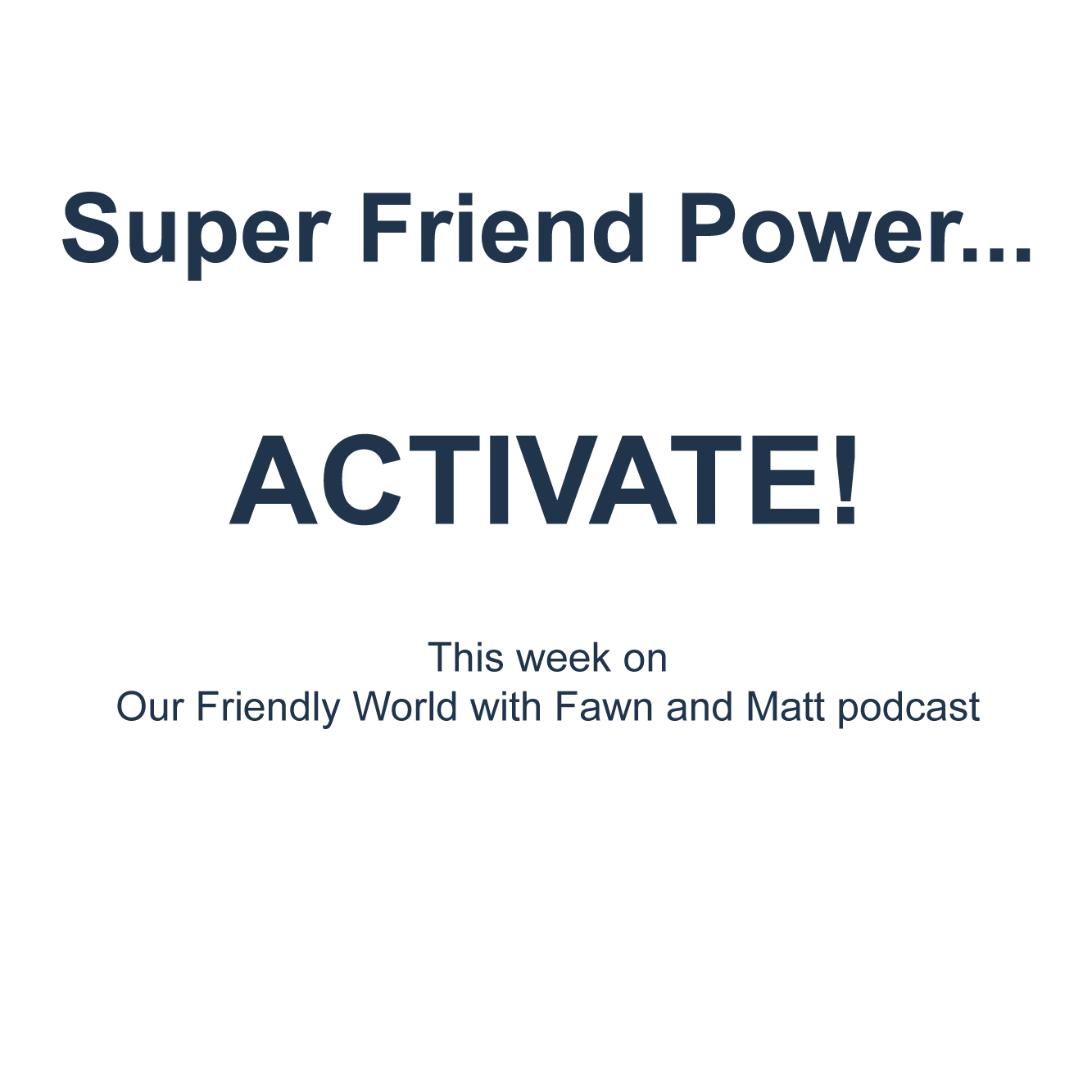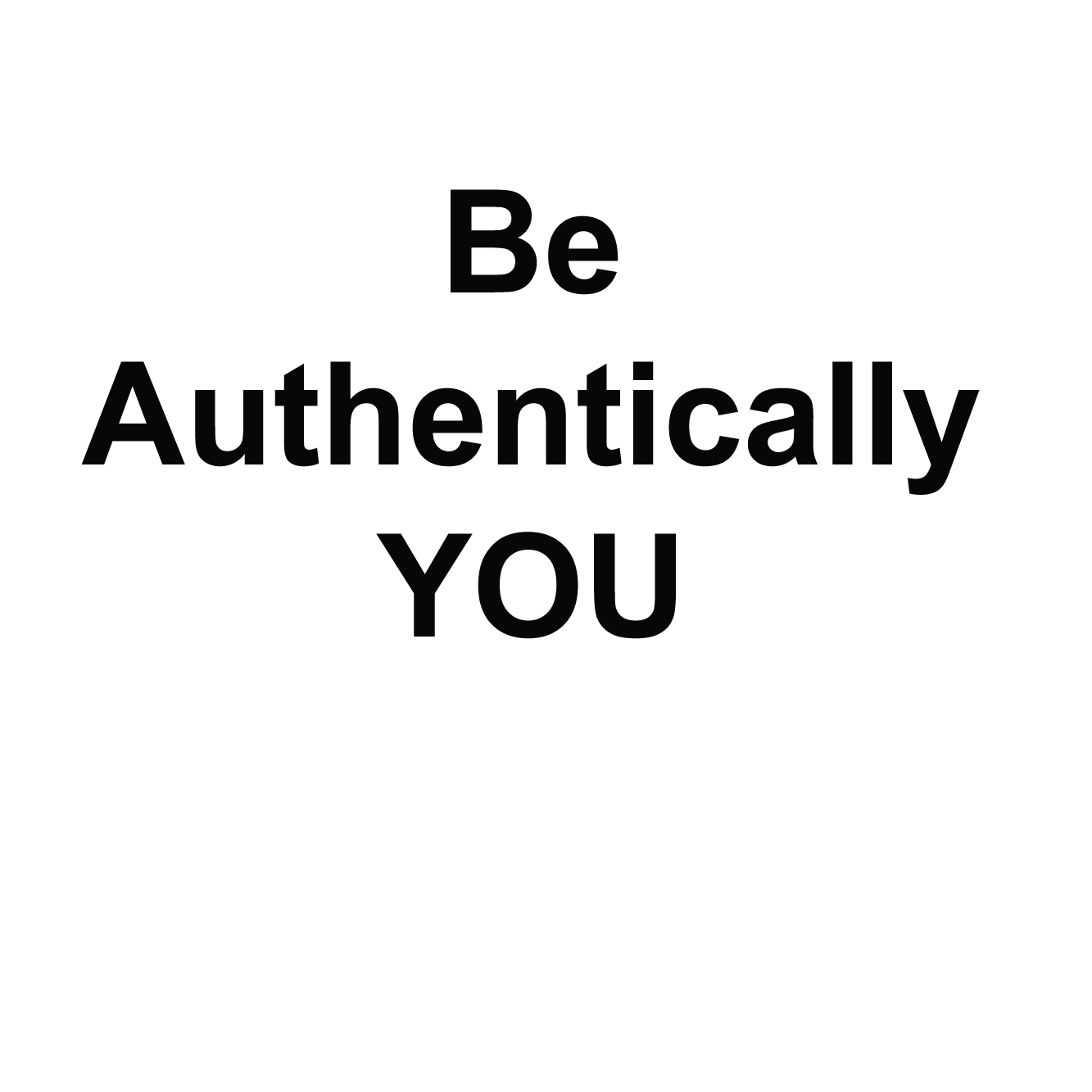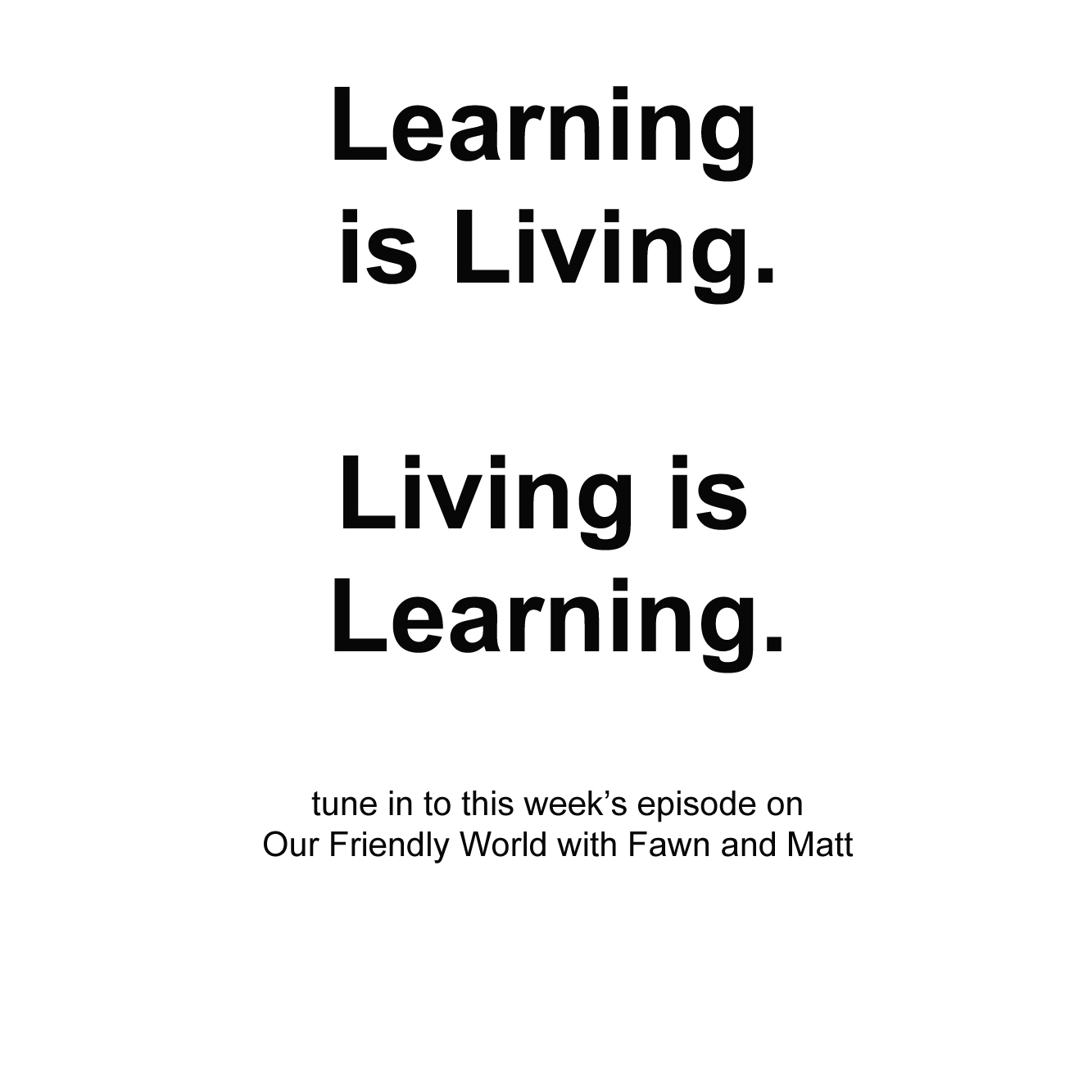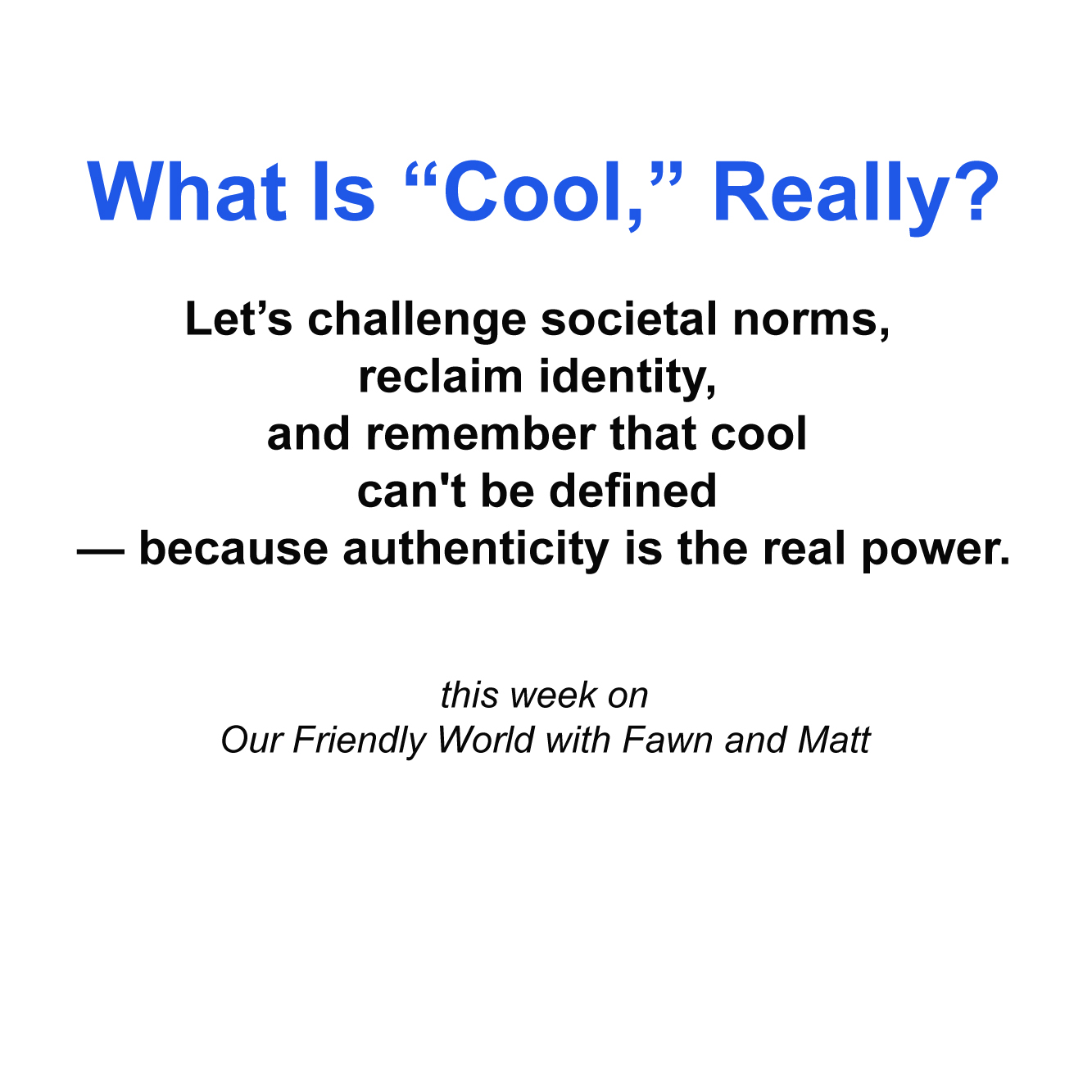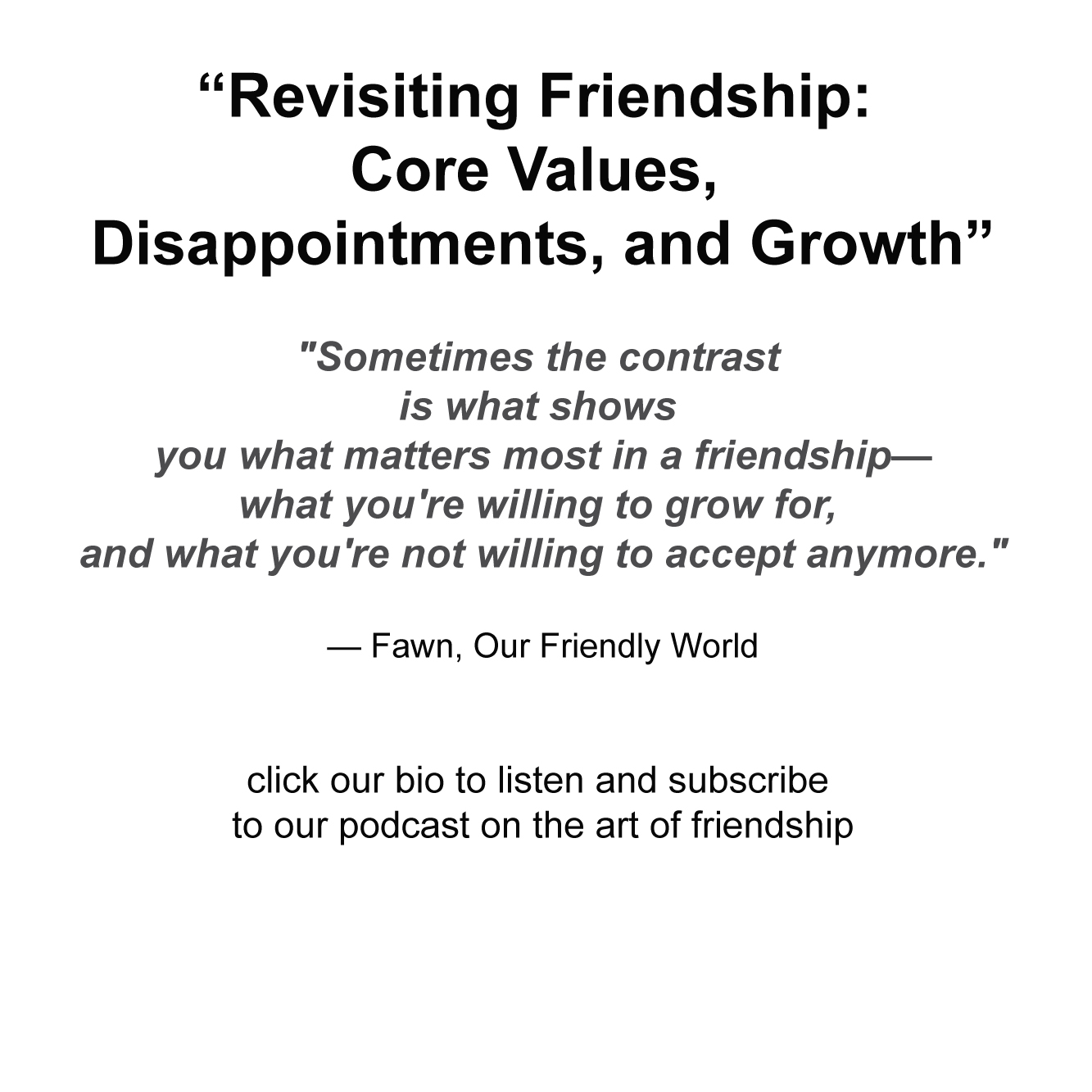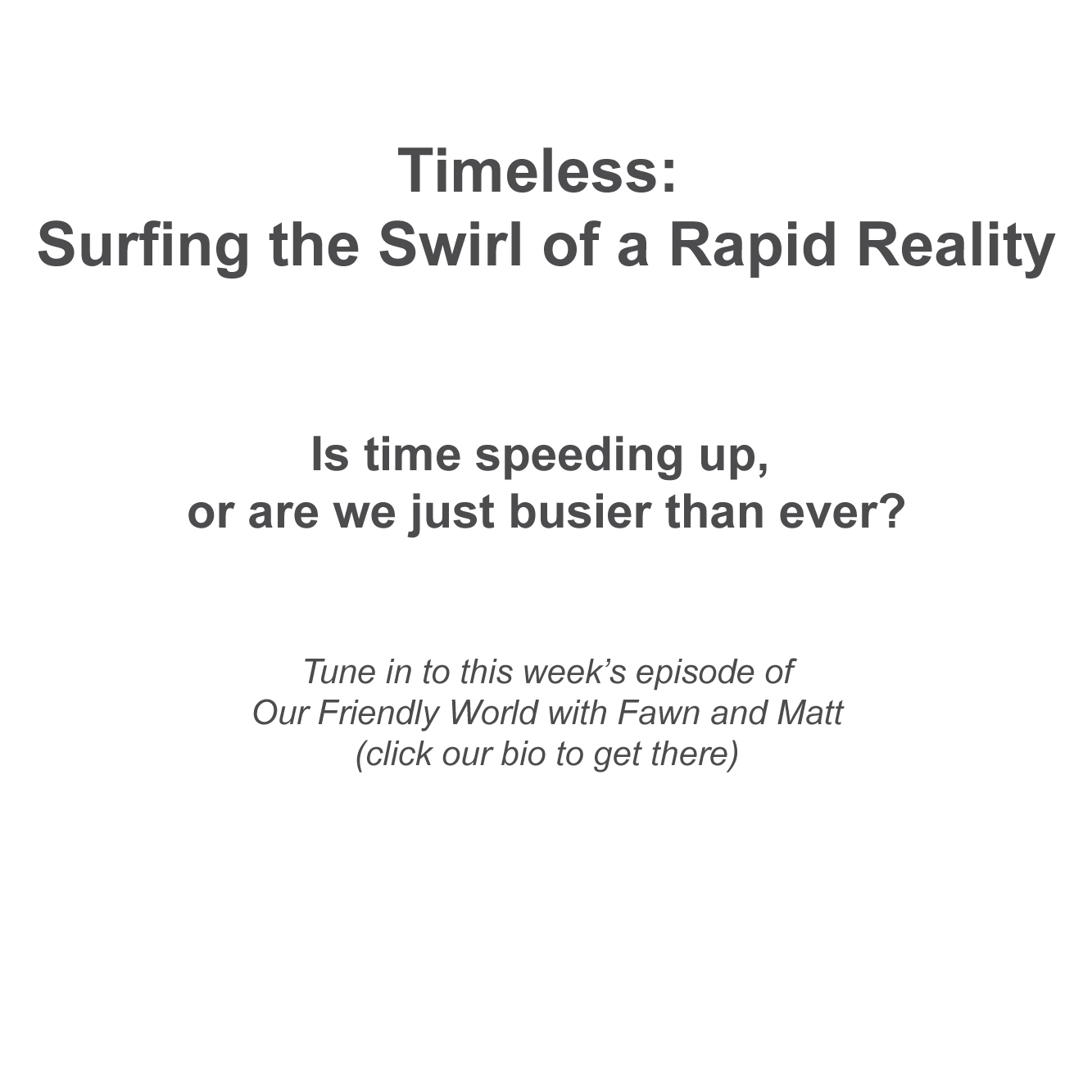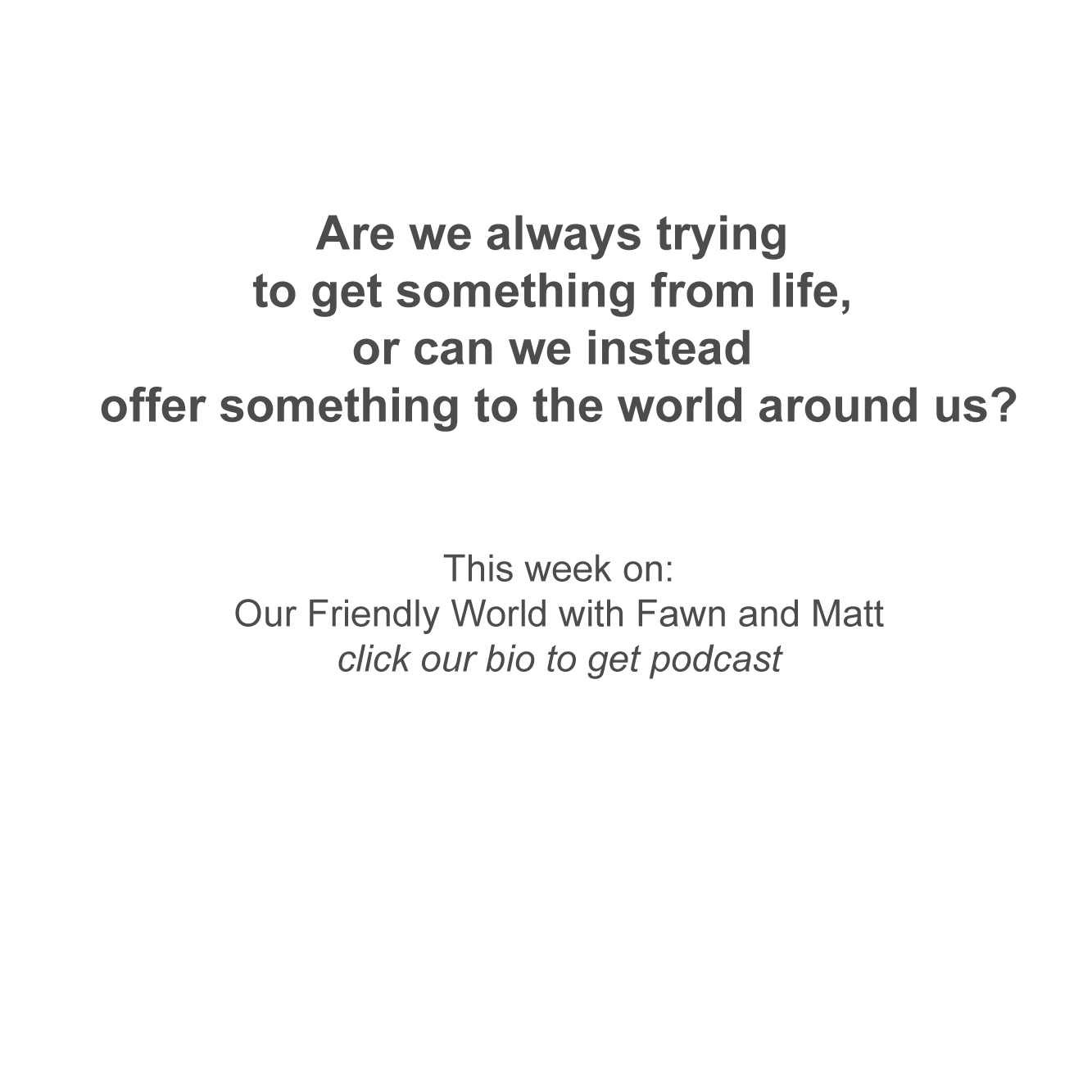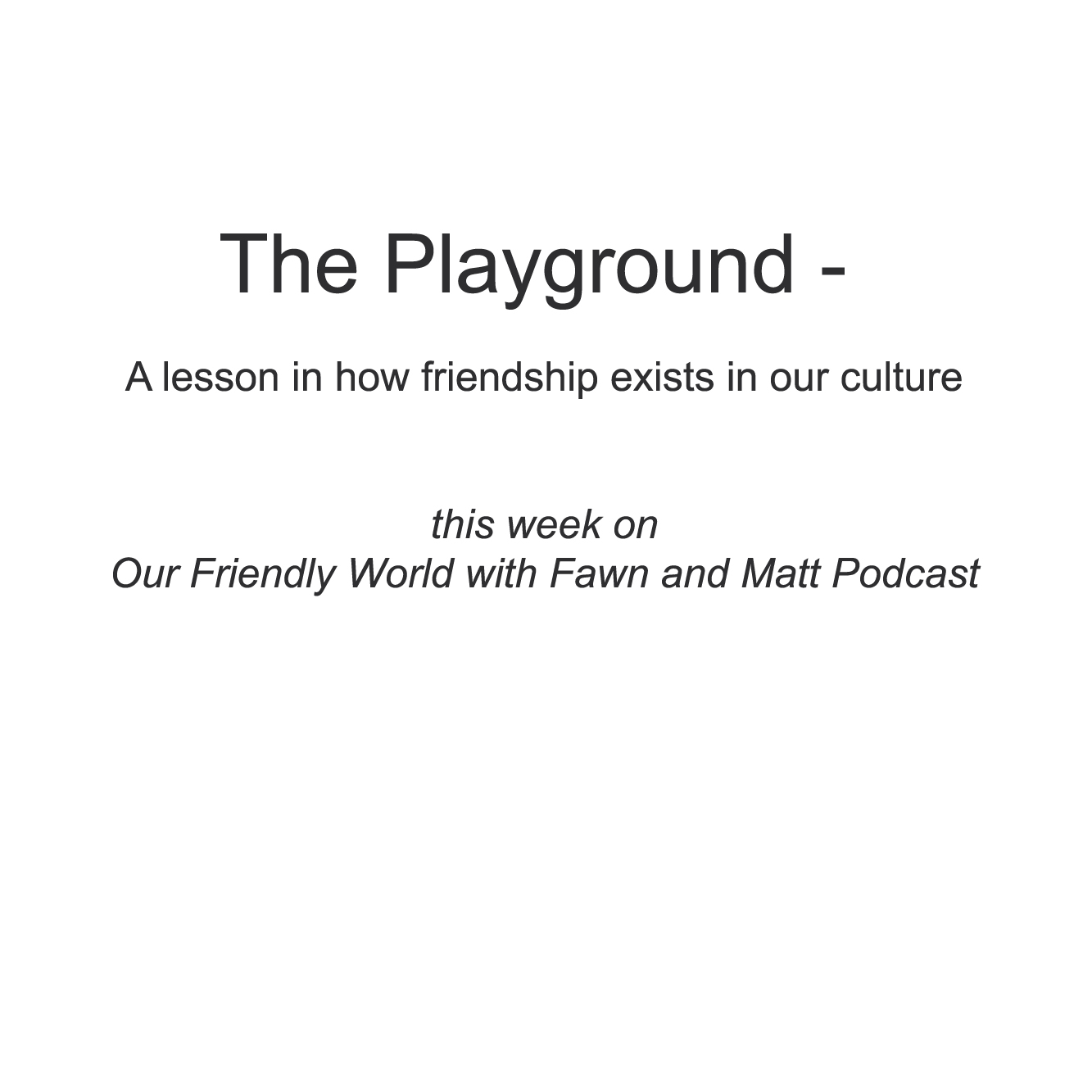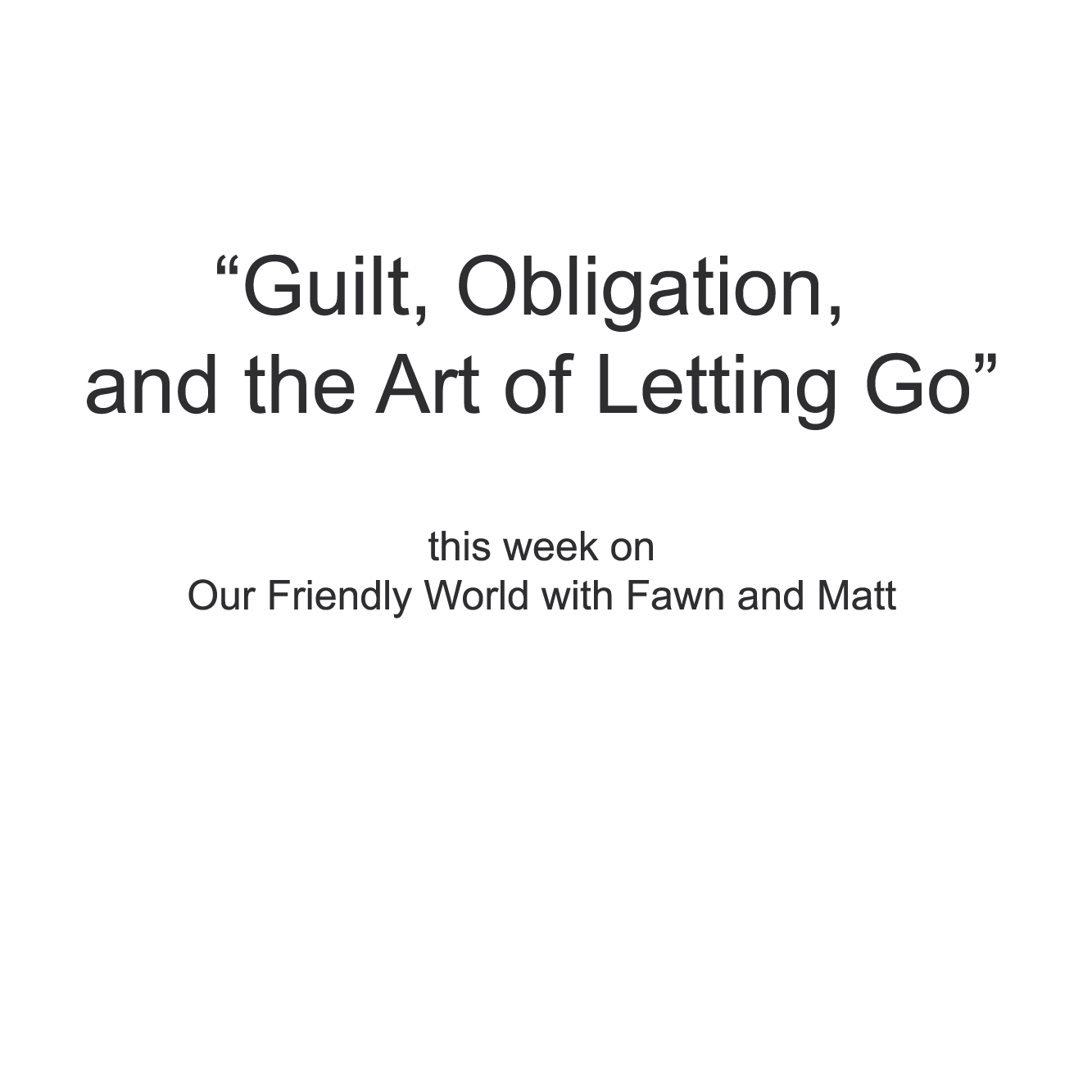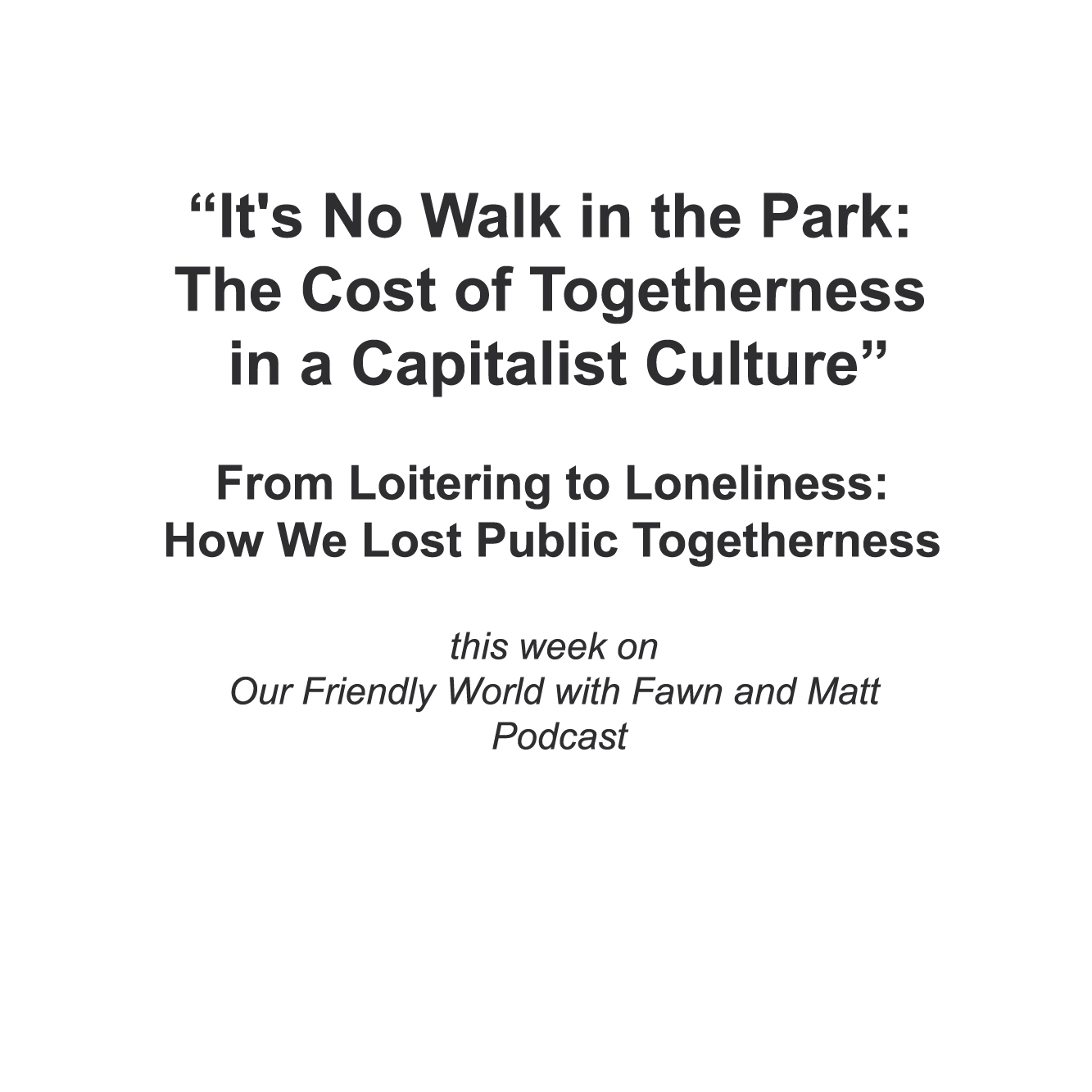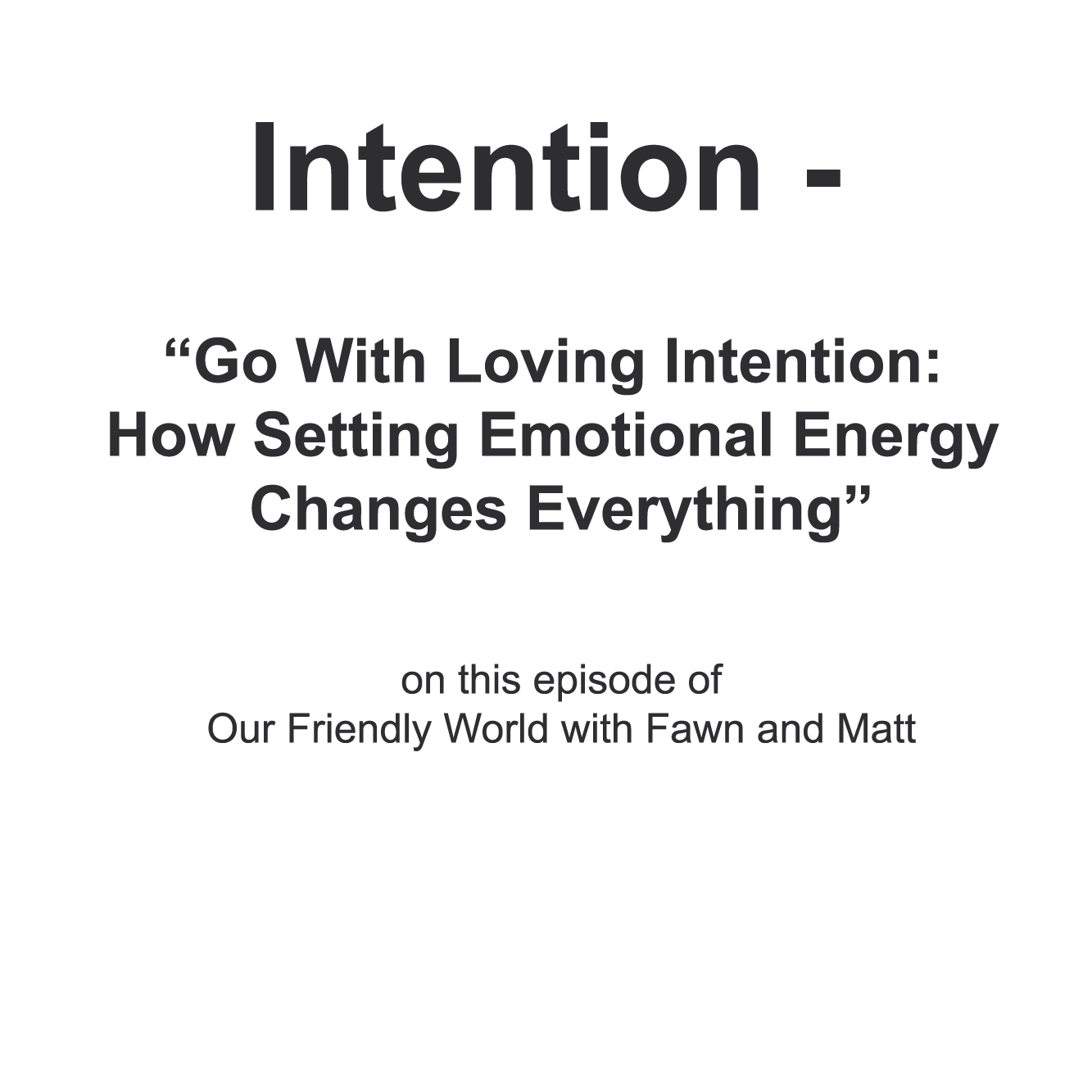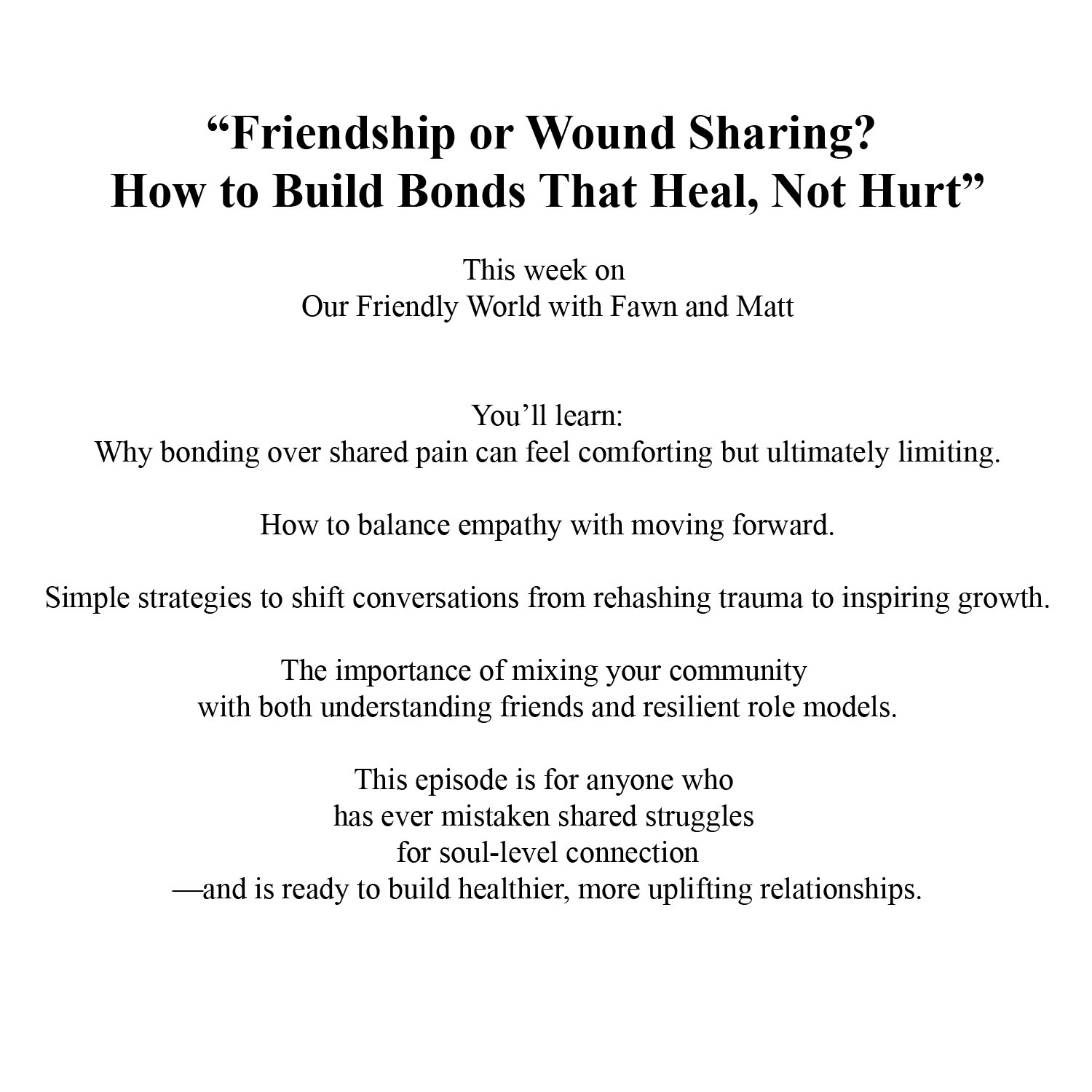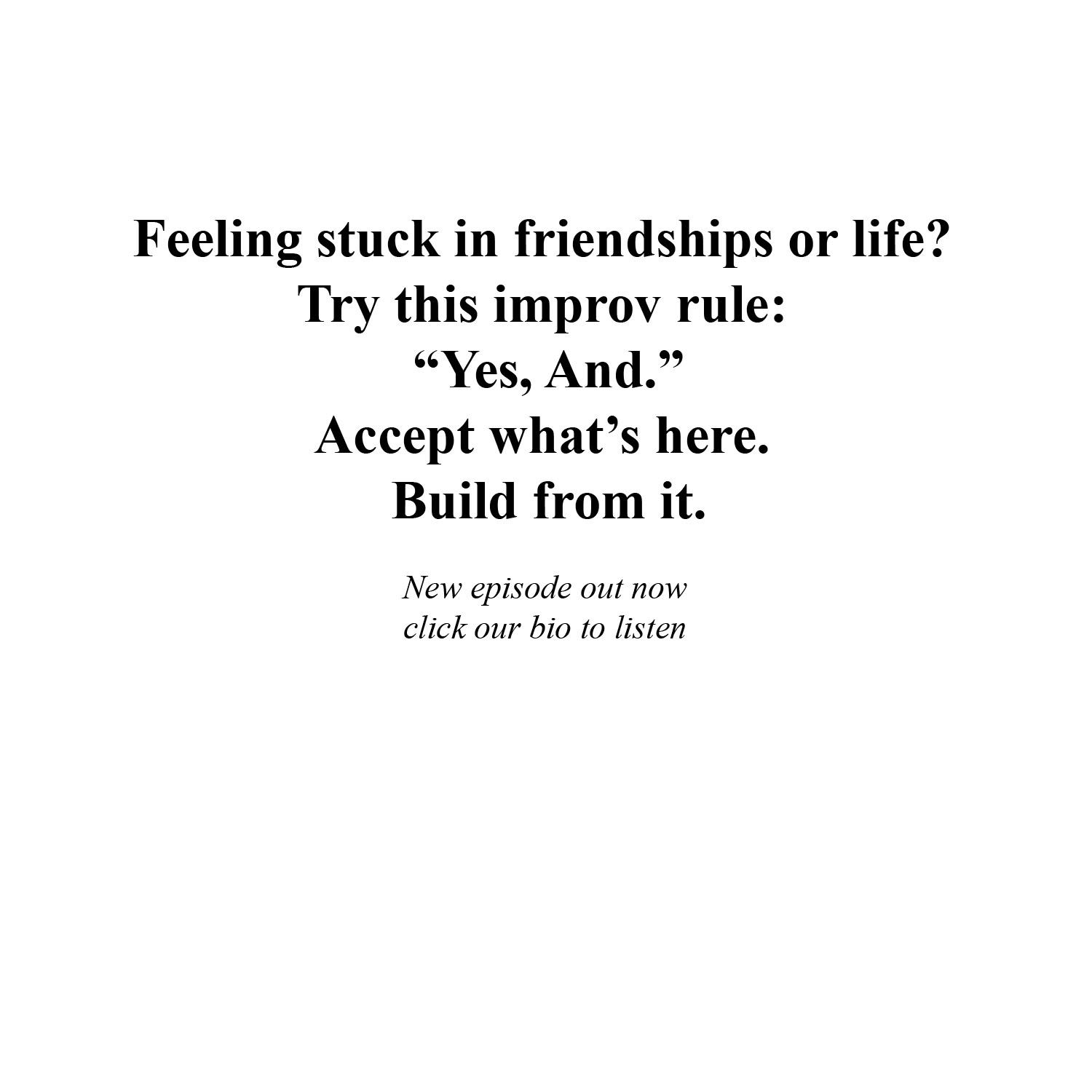“Perceived Value: Who Decides What (and Who) Is Worth It?”
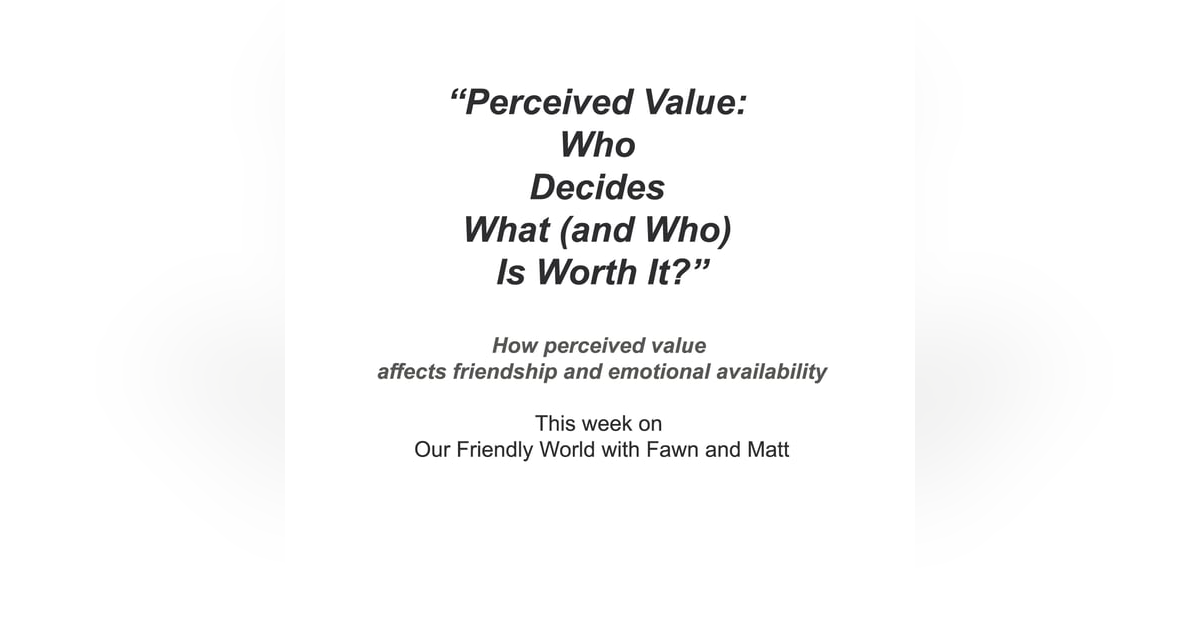
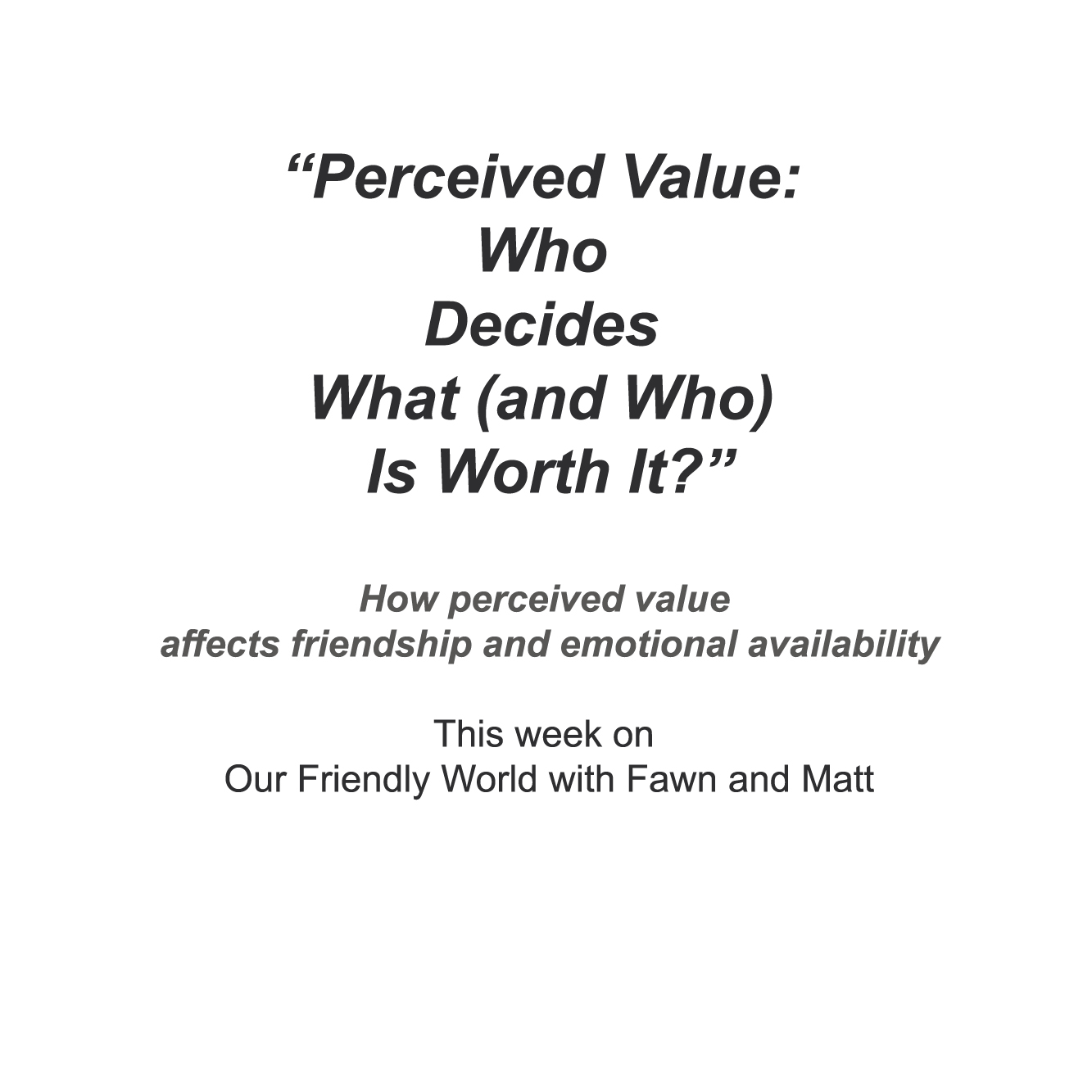
In this episode of Our Friendly World with Fawn and Matt, we explore the powerful concept of perceived value—from currency to careers, and friendship to self-worth.
Fawn recounts a recent conversation with a former finance professional about the legitimacy of crypto vs. the dollar, opening the door to a deeper conversation about how we assign value in society. Together, Fawn and Matt examine how gender, race, profession, and personal behavior all shape the way we are valued—or undervalued—by others.
How perceived value affects friendship and emotional availability
The evolution of professions like teaching, cooking, and yoga
How systemic biases influence our daily lives and sense of worth
Why some people resist change, innovation, or new paradigms like cryptocurrency
Personal stories of being underestimated or misjudged
Tune in for a raw, real conversation about where value truly comes from—and how we can reframe our worth beyond societal labels.
perceived value
friendship and worth
societal value systems
crypto vs fiat currency
gender pay gap
racism and bias
undervalued professions
yoga in America
currency and belief systems
redefining value
#PerceivedValue #FriendshipMatters #RedefineWorth #CryptoVsDollar #SocialBias #ValueBeyondLabels #OurFriendlyWorld #FawnAndMatt #WomenInTheWorkplace #YogaAuthenticity #PodcastEpisode #FriendshipPodcast
#FriendshipPodcast #CryptoConversation #ValueAndWorth #UnpaidLabor #YogaRoots #AyurvedaWisdom #GenderBias #SocialJustice #TheArtOfFriendship #CulturalPerception #FeminineWorth #FriendshipTalk #BlockchainBeliefs #EverydayPhilosophy #VoiceAndValue
In this episode of Our Friendly World with Fawn and Matt , we explore the powerful concept of perceived value —from currency to careers, and friendship to self-worth.
Fawn recounts a recent conversation with a former finance professional about the legitimacy of crypto vs. the dollar, opening the door to a deeper conversation about how we assign value in society. Together, Fawn and Matt examine how gender, race, profession, and personal behavior all shape the way we are valued—or undervalued—by others.
How perceived value affects friendship and emotional availability
The evolution of professions like teaching, cooking, and yoga
How systemic biases influence our daily lives and sense of worth
Why some people resist change, innovation, or new paradigms like cryptocurrency
Personal stories of being underestimated or misjudged
Tune in for a raw, real conversation about where value truly comes from—and how we can reframe our worth beyond societal labels.
perceived value
friendship and worth
societal value systems
crypto vs fiat currency
gender pay gap
racism and bias
undervalued professions
yoga in America
currency and belief systems
redefining value
#PerceivedValue #FriendshipMatters #RedefineWorth #CryptoVsDollar #SocialBias #ValueBeyondLabels #OurFriendlyWorld #FawnAndMatt #WomenInTheWorkplace #YogaAuthenticity #PodcastEpisode #FriendshipPodcast
#FriendshipPodcast #CryptoConversation #ValueAndWorth #UnpaidLabor #YogaRoots #AyurvedaWisdom #GenderBias #SocialJustice #TheArtOfFriendship #CulturalPerception #FeminineWorth #FriendshipTalk #BlockchainBeliefs #EverydayPhilosophy #VoiceAndValue
In this episode of Our Friendly World with Fawn and Matt, we explore the powerful concept of perceived value—from currency to careers, and friendship to self-worth.
Fawn recounts a recent conversation with a former finance professional about the legitimacy of crypto vs. the dollar, opening the door to a deeper conversation about how we assign value in society. Together, Fawn and Matt examine how gender, race, profession, and personal behavior all shape the way we are valued—or undervalued—by others.
How perceived value affects friendship and emotional availability
The evolution of professions like teaching, cooking, and yoga
How systemic biases influence our daily lives and sense of worth
Why some people resist change, innovation, or new paradigms like cryptocurrency
Personal stories of being underestimated or misjudged
Tune in for a raw, real conversation about where value truly comes from—and how we can reframe our worth beyond societal labels.
perceived value
friendship and worth
societal value systems
crypto vs fiat currency
gender pay gap
racism and bias
undervalued professions
yoga in America
currency and belief systems
redefining value
#PerceivedValue #FriendshipMatters #RedefineWorth #CryptoVsDollar #SocialBias #ValueBeyondLabels #OurFriendlyWorld #FawnAndMatt #WomenInTheWorkplace #YogaAuthenticity #PodcastEpisode #FriendshipPodcast
#FriendshipPodcast #CryptoConversation #ValueAndWorth #UnpaidLabor #YogaRoots #AyurvedaWisdom #GenderBias #SocialJustice #TheArtOfFriendship #CulturalPerception #FeminineWorth #FriendshipTalk #BlockchainBeliefs #EverydayPhilosophy #VoiceAndValue
Episode Title: Perceived Value: Who Decides What (and Who) Is Worth It?
Episode Description:
In this eye-opening episode of Our Friendly World with Fawn and Matt, we unpack the idea of perceived value—in everything from money and medicine to friendships and careers. What gives something (or someone) value? Who gets to decide?
Fawn shares a spontaneous conversation with a former finance professional that sparked a deep dive into the perceived legitimacy of cryptocurrency, the U.S. dollar, and systems we take for granted. From blockchain to blockages in the healthcare system, we explore how perception shapes reality.
We also look at how value plays out in friendships and gender roles—why some people or professions are taken seriously only when a man enters the room, and how biases shape who gets seen and heard. From yoga teachers to schoolteachers, chefs to moms, Fawn and Matt challenge the hierarchy of worth imposed by society.
Join us for a rich, unfiltered discussion that weaves personal stories, ancient wisdom, and cultural commentary into one powerful truth: you are more valuable than you’ve been led to believe.
Topics We Cover:
Cryptocurrency vs. the U.S. dollar: is all money just perception?
The invisibility of unpaid labor and women's work
Yoga, Ayurveda, and reclaiming ancestral value
Friendship as a mirror of perceived worth
The power of unconditional love and human connection
How social systems devalue people based on appearance, race, or gender
Perceived Value
Fawn: [00:00:00] Welcome back everybody. Hi. Hello.
Today we're talking about perceived value in friendship of course, but like everything, I was coming out of the grocery store with the kids the other day.
We ran into someone with a cute dog. Started talking about the dog, of course, but then I asked some questions of this person, like, what's your story? Blah, blah, blah. Turns out he came from the world of finance. We started talking about he definitely didn't wanna get into politics because he could look at us and go, they're definitely not from.
They're not from around here. No, no. That we weren't like-minded, I guess.
MATT: Mm-hmm.
Fawn: So he's like, I don't wanna get into politics. I'm like, yeah, but what do you think about the state of, the world financially like that? He's like, I'm not worried actually. I feel like it's gonna be okay. I am like, really?
And of course the next question I had was, how do you feel about, um, Bitcoin? Or crypto? [00:01:00] Cryptocurrency, right? Yes. Cryptos. He's like, I don't believe in it. It's fake. There you, you go. And I'm like, hold on. And then my next, I didn't even skip a beat, Matt, and I was kind of proud of myself because normally I just don't say anything.
But I'm like, well, isn't the dollar perceived value? Like, isn't that fake? It's a piece of paper that, we just give, such weight to. Really, how valuable is a piece of paper and don't they,
arbitrarily decide what that's worth. Right?
MATT: Right.
Fawn: Then crypto is actually more powerful because there's a whole blockchain involved and. I didn't totally get into that. I just said, well,, isn't that true for the dollar paper? Paper dollar. Right. And then
MATT: I remember you told me what he said to that.
Fawn: I forgot what he said. What did I say? He started
MATT: talking about the gold standard.
Fawn: Oh yeah. And then immediately as he was saying it, and I was about to say, he's like, oh, but that doesn't exist anymore.
MATT: So the US dollar used to be pegged to gold.
Fawn: Until they made [00:02:00] us give the gold back. And it wasn't based on that anymore.
And now
MATT: it's not based on that anymore. It's based on the faith and trust of the American people, I suppose.
Fawn: And so really why crypto for those who like it, who believe in it. It's this currency for the common person so they can be powerful. I feel like the people that come from this is how you invest and this is what you do.
You work hard and pull yourself up by your bootstraps. You know, they're very against crypto. Don't you think that's the case?
MATT: It is. Definitely. Well, they. They're against it because they don't understand it. Right? There's certain things that are easy to understand. You buy a house, you sell a house, you buy stock.
You sell stock, even though stock is indeed its own little weird caveat too, but like you buy a franchise, IE you, you buy into McDonald's by opening a single McDonald's restaurant. You know, ostensibly you're gonna make money.
Fawn: Don't you feel that they're not open to a new way? That's why they're not into it.
MATT: Well, [00:03:00] typically the, I I want to say that the people who have like had generational wealth, they're primarily focused on not losing their generational wealth. Something I heard a long time ago that stuck with me was, um, there was somebody very rich and they said, you need to marry someone who's really rich too, because they're gonna be so scared of losing it.
That they'll protect it and safeguard it their whole lives. If you marry somebody who's grown up poor, then they understand that they can get by on nothing.
Fawn: Meanwhile scary. I'm all about things are changing. It's a whole new world. Just because this way of being IE patriarchy, if you will, like, I'm sorry, but like things are breaking down the education system.
This is why we have homeschooled forever. Like all this stuff. The medical field, there's understandably such mistrust. I have mistrust of it. No, no, thank you. Like it, when [00:04:00] I go take the kids to the pediatrician and everything, it's always a fight. And I know we're talking about perceived value, but like even with doctors, there's such a perceived value that whatever they say goes and that's it.
It's like they really don't know, and we learn this early on, Matt, years ago, they don't know anything about nutrition. They don't know anything. Like we had to go figure things out on our own.
MATT: Well, honestly, and then we
Fawn: had to go back to a system that's 3000 years old, right? IE Ayurvedic medicine. Right.
MATT: And then that is Chinese medicine. And that is true. I think the big problem doctors have is that, so you're a doctor. Hey, I have this spot on my arm. I have this spot on my leg. I have the spot on my forehead. It could be the same thing, it could be three different things. And unless you're eternally curious with a mimetic or perfect like, uh, memory, are you gonna remember half the things
it could be? There's too much going on.
Fawn: Plus they're trained to immediately get you out in 15 [00:05:00] minutes. And, and I'm sorry we're getting into a whole other subject, but anyways, but anyway, just getting back to perceived value. It's really interesting. So yes. Okay, so we started talking about money, perceived value, but like even our human interactions.
Perceived value, again, can go back to the Nichomachian Ethics, the three kinds of friends, the one that's with you because they feel good, the one that's with you because they're getting something, the one that's with you because they just love you. For all of it. The good, the bad, the ugly, whatever it is, it's unconditional,
MATT: right?
Fawn: It's an unconditional, like perceived value is great. rather than it's based on changing. Aspects. Like, if you don't behave this way then and we can't be friends anymore. Or if you said something I didn't agree with, we can't be friends anymore. Oh, you're in a bad mood. Ah, I, I can't hear. I don't have time for
MATT: it right now.
Right.
Fawn: So that's one perceived value. But also, we [00:06:00] were talking about this a long time ago. You brought it up, you saw a study or something didn't you, about how, if you look at professions that women have or things that women do unpaid. Or very low value. But then when a man gets into that industry, the job is highly paid.
So a cook, the pay
MATT: rights go up
Fawn: like a chef, right?
MATT: Yes.
Fawn: A woman wouldn't be called a chef, but it's always the women who put all the meals together in most countries,
MATT: right?
Fawn: But a man comes in, it's a chef. Whereas even now, like they're called home cooks, the woman, right? Just a cook.
A cook. She's a cook, but oh, he's a chef. Like even at home, like, Ooh, look at you. You're a chef. You know what I'm saying? Yes. What other perceived values were we talking about? I'm kind of blanking out
MATT: right now. So school teacher back in America in the 1890s, because that's the earliest kind of books that I've read that I have a good sense of what was happening in small town [00:07:00] life.
But teaching was a male profession. And they were considered very educated people who taught . Laura Engle Wilder, I think exempting, if you will.
Fawn: Are you talking about Little House on the Prairie? Yes. '
MATT: cause she was a teacher too, but I'm talking about the male teachers were seen as professionals in the environment.
They were possibly them and the doctor were typically the only learned men in town. I mean, even the dentist wasn't particularly learned 'cause he was the barber as well.
Fawn: Oh my God.
MATT: I know. But anyways, be that as they may,
Fawn: I, you know, I may have told the story before, but when I worked in corporate, I got myself in, I
hustled to get to where I was. Mm-hmm. Um, it started at a mall. I bumped into the CEO of a company I loved started talking to him and I always had a little portfolio of my photography work with me. And so I showed him my work and we started talking and we were laughing. And so he's the CE, the owner, the creator, the big guy.
that night he turned [00:08:00] to his people and he's like to, to his vice president and he's like, hire her. You know, I want her on our team and he walked away. Right. Right. Now I could have let it go and they would've ignored the whole thing I pursued it and I actually, I got myself in. Not only did I get myself in, but I went straight to the top. Like I had an executive badge and my perceived value was like zero for most people. Only a few people.
Only one actually that I know of. Mm-hmm. Understood my value. And she was another exec, but I remember her assistant saying, why is she even here talking about me? And I actually heard this quite a bit , in many phases of my life in that corporate environment when I was a yoga teacher
I heard it like people think that I'm not around, they start talking behind my back. Like, why is she here? How is she a yoga instructor? Like, they didn't even know me. They hadn't even seen any of my [00:09:00] classes. And they rocked, by the way. Um, but you know, like that, that. Either it's, it's stemming from racism or any kind of a ism.
Maybe I'm not your six foot tall, blonde, skinny person. You know, I'm actually an Indian looking person. Like where Ayurvedic medicine is from, where true yoga is. That's me. How dare you say what? How's, what's she doing here?
MATT: Well, it is interesting, you know, I suppose we could. Maybe take a look at really the uptake of yoga in America and where that really came from.
Because yeah, yoga's been around in India for I blame thousands of years. I
Fawn: blame the Beatles. You know, so,
MATT: so in many ways, just going back, 'cause we actually didn't finish my thought on, oh sorry. School teachers. But when women started moving into the school teaching profession, it became less of an exclusive learned, oh my goodness type environment.
So again, mimicking what [00:10:00] happened in reverse of what happened with chefs.
Fawn: So as soon as women come in, then they're paid less.
MATT: Well, the, the perceived value of the thing, mm-hmm. Whatever it is, is considered less. Yes.
Fawn: Interesting. And like, same with neighborhoods.
MATT: Well, yeah. As soon, as soon as, as those people move into the neighborhood, things get weird.
Fawn: I used to hear this when I was in la like I was dating, I was engaged to this guy, you guys, not Matt, but I've told you about him, the most racist mother.
And she saw someone from my background, like moving, two houses down. And she was like, oh God,
MATT: the Alibabas are moving in. I'm
Fawn: like, what?
MATT: God. And then they would say stuff like, you're not one of them,
Fawn: you're one of us. That she said, 'cause I, I, I called her on it. It was the only time I actually called her on it.
'cause it was so unreal, the stuff that would come out of her mouth that there was no fighting it. And she was, she was something else. She was terrible. You guys like. Oh my God. I dodged a bullet. [00:11:00] Anyways, anyway. I dodged many grenades. Anyway, what was I saying? I forgot. I got distracted by the hate. What was I saying?
MATT: The perceived value of the neighborhood would then fall. Oh
Fawn: yeah. Like it goes with everything, right? Like let's say like really like these expensive designer bags that people pay $40,000 for. For what? It's just a perceived value. What it, it, it, how much does it really cost to make?
And why, why would you do that? We were listening to a podcast, actually it was Trevor Noah's podcast. There's a famous artist, I'm gonna say his name wrong. I'm so sorry. I'm totally blanking out right now. A very well known artist. He was talking about how his brother is a dentist, person of color, a man of color, right?
So I guess they wear coats, but he spends so much money on shoes. And he was asking his brother like, why would you spend so much on [00:12:00] shoes? And he said, because they look at my shoes. They judge, people, judge. Patients, judge, other doctors, judge. So you have to step it up. So in that case, whatever the perceived value may be, it's of importance.
It's worth it.
MATT: His name was Derek Fordjour. Oh, thank, thank you Jo. Or FORDOUR.
Fawn: And they were also talking about suits, at one point, and we'll get, I mean, that's for another episode, getting into fashion and everything, but like, people, people and perceived value.
MATT: And things started to get really tricky and sticky with friends, right? Because sometimes like you don't have an opportunity to show your worth or you don't have an opportunity to, or you don't want to.
Sometimes you don't want to show them all that you are, especially early phases of friendship or if you're in a boss relationship or whatever, you know, at work or whatever else it is. You don't have the opportunity to give your best [00:13:00] performance. It's kind of a weird thing.
Fawn: Well, back to what I was trying to say with the corporate.
I didn't feel like I had to prove myself. I was just trying to do my job
MATT: right
Fawn: and. I found out after I left that, that's part of, and correct me if I'm wrong, Matt, but that's part of your job is not to just do your job. You have to prove yourself, you have to establish, you have to sell your worth.
So it's not just about doing something, you have to sell it
MATT: and, right. Am I right? You're, you're absolutely right. And guess what? All of a sudden now. It. It seems like if you've been at a company for 10 years, you're kind of a sucker. Yeah. Your value is seen as less than someone who comes in because, oh my God, they've been working for the past four in four years in this industry.
That they advantage the other industry. Yeah,
Fawn: because I mean, what, and you're gonna get what if you are lucky enough. You get what? [00:14:00] 3% raise. But if you job hop,
MATT: if you job hop, yes, your perceived value goes up plus
Fawn: eight to 15% higher.
MATT: Plus you learn new per year. As a, as a computer programmer, I learn new technical skills every job I take 'cause it's a new platform, it's new languages, it's new, blah, blah, blah.
It doesn't matter.
Fawn: And the perceived value of that was remember when? Like year, a few years. I don't know how many years ago now. Time is warped guys, when you have children, because you're like, oh, just a couple years ago, but it was like 20,
MATT: Hey, but
Fawn: like, it seemed like a, a little while ago. The perceived value was so bad if you job hopped, right?
Like if you had a job, a different job every two years or something, you were looked at, like, what's wrong with you? But really now, I think more people are understanding that you need to job hop because it's about opportunity. The person you're working for doesn't have the same, loyalty to you as you would have [00:15:00] for them,
MATT: right?
Fawn: Right. They're about opportunity in making the business grow, so you should be un unapologetic about growing your life, your relationships, something isn't growing, you need to keep going,
MATT: and you make that same argument. Keep going other places inside of friendships as well, perhaps.
Fawn: Yeah,
MATT: because, 'cause why are you putting up with, why are you not
Fawn: mediocrity
MATT: or why are you not growing Right. As a person.
Fawn: Right. Right, right.
MATT: You know, if all of a sudden, you've got a brand new interest and your friend doesn't wanna share it with you. Okay. We can obviously still be friends, but you know, maybe our friendship isn't gonna grow as dynamically 'cause I'm really interested in astronomy or whatever.
It's, and maybe
Fawn: they're uncomfortable with change, and then they start throwing you daggers. Because you've changed. They don't like change, so all of a sudden you've changed. But really you're, you've always [00:16:00] been the same. You're always growing. We're always all growing, hopefully, but, um, hopefully.
I've had a few people say in such a negative way, you've changed. You've changed. And really, I haven't, I I started learning new things. They were not okay with that.
MATT: Right. Because we
Fawn: met you and I met you changed. Uh, yeah. I fell in love.
MATT: Who said that about us?
We,
Fawn: we no longer talk to them.
MATT: Oh, okay. Okay, then I don't
Fawn: even wanna bring up the name. Don't. That doesn't matter. Not important. Not important.
MATT: but yeah, I always feel like I'm a shark. If I stop swimming, I'll suffocate. Right.
Fawn: Well, it's true. It's true. If you don't use your muscles, you lose them.
MATT: True.
Fawn: So what else?
I feel like when we were talking in the kitchen just now about perceived value, we had so much to talk about. Now I'm like, wait, I forgot everything that we were saying. Well, you started
MATT: lambasting me, so I got a new boss. [00:17:00] Um, yeah. And I've been at a company almost three years and yeah, I feel like my performance for the past few months has been a little sucky.
Fawn: No, according to you, but for them, it hasn't been,
MATT: I have no idea if it is or isn't for them because I'm not getting communication from my boss. And so we're gonna cut through that this week.
Fawn: I honestly think you've, 'cause I mean, my desk is right next to you. Mm-hmm. So I guarantee you your work is not sucky, Matt, but you're feeling stagnant.
I'm is what you're feeling? I'm, I'm feeling
MATT: like I'm not. Producing the value that my boss wants me to produce. I'm producing value. Yes, but not what he wants.
Fawn: What does he want?
MATT: I, that's the problem. And that's why I'm about to have my third one-on-one meeting with the guy who took over in early January.
'cause he won't schedule meetings.
Fawn: Honestly. I think he was put into a rough drive me nuts position because they fired that boss and someone else had to come in and he's now [00:18:00] in charge of so much more than maybe he's, um. More comfortable with. Right. And and so and so. This is a weird spot, I think more got put on his plate than he already had.
MATT: And you're right, but not my problem.
Fawn: But it is your problem because you're not being valued.
MATT: I have, yeah. I have to show. And you're not
Fawn: being seen.
MATT: I have to make sure that I'm being seen. And
Fawn: now you're thinking that you're not performing the best you can, but you are. But you're feeling like you're not seen.
Because you're not seen, they don't see your value. And I think that's also translating to you thinking, well, maybe I'm not valuable right now with what I'm doing. You know, it's a slippery slope. It is slippery slope
MATT: and there it is. As an industry veteran, as you're, I should know better life and therapist, I don't, I'm telling
Fawn: you, you're doing great
MATT: work.
And oftentimes, and that highlights yet something else, which is if you're emotionally connected to something. It's hard to take an objective, logical view, which is what, even though you're emotionally connected to me, you're not emotionally connected to the work that I'm doing for my job.
Fawn: Right. I mean, I'm not gonna get So [00:19:00] you able, able to see it differently, the lines of code and go and, but I can see what you're doing.
I can see the outcome. I don't understand the letters and the numbers of the code that you're doing, but. I understand the outcome
MATT: and, and yeah. So we're, we're gonna have that sit down and talk, talk about things.
Fawn: And yet, but that doesn't, and here's the thing, perceived value, right? Right. I think people are so scared to be seen because of the ramifications of that.
Women don't wanna be seen. I feel, okay. I'll just put it, I, I won't, you know what, I'll just speak for myself. Most days I don't wanna be seen, like I don't wanna go to parties. I don't wanna go out because I don't wanna be judged. I feel like I grew up in such a judgy, not, I feel like I grew up in such a judgy family, that if you weren't skinny enough in this manner, if you didn't have eye color this way, if your hair was like.
Kinky like mine, you know, like, it, it's not okay. Like it's so [00:20:00] like constantly berated. Mm-hmm. Right. I grew up with that. And the, the way they would talk about other people, the way they would lower a person's value based on their looks or based on what was going on in their lives. And then they would verbalize it in like, uh, what's the word?
When they talk behind people's backs. Like, um, gossip, gossip, gossip, gossip. I was raised in hearing that. I knew it was wrong. I never did it. I was always the one who was getting it like, you are ugly. You are not skinny enough. You know what? Are you gonna go out looking like that? Mind you, I was still very young, seven years old.
They bought my clothes. Do you know what I'm saying? Like I do.
MATT: What do you
Fawn: want? What
MATT: do you want from me? I do. I do, but
Fawn: I grew up thinking the world is that way. So I don't wanna go out because I feel like I'm going to be judged. And I think maybe, so this is one example, but I feel like on a large scale [00:21:00] we've all kind of had that.
That's why at a job. Just in relationships in general. You don't wanna make waves. You don't wanna like be on stage because you don't wanna be picked apart, right? You don't wanna be belittled, you don't wanna be devalued,
MATT: right?
Fawn: Because that's all that is. You're devaluing yourself because other people you feel like are devaluing you, right?
So how do we create, how do we generate wealth in that way? How can we, that perceived value, again, it's going with a dollar, right? But everyone's chasing the dollar. The dollar is a piece of paper. The Louis Vuitton bag is a bag that you can put together, but it, it has that label on it. You know what I'm saying?
Yes. Like, and you have to have that on you to be perceived at a certain level. For you to be valued, you have to be carrying this thing of [00:22:00] value. Again, all perceived, all perception, but really the core of the loving individual, the loving spirit that you are, is invaluable.
You don't need any of that, but you do need to instigate that value. You need to, you need to imbue that value. Imbue,
MATT: imbue is a good word.
Fawn: You need to make that shine so people understand. Don't underestimate me. I am valuable. My shoes are valuable. They're not a particular label. That you value, but I value, I don't know.
I just feel like it's all in how you carry yourself, how you value something,
MATT: how you carry yourself, how you present. Because I'm not, it's a trend, right? I'm not, I am not having a victim conversation with my boss. I'm gonna have a, this, these are the things I'm doing. Are these good things? Are these bad things, you know, let me [00:23:00] know.
I'm not allowing him to judge anything about me other than the work I am doing. And that's it. He doesn't judge me as a person. He doesn't judge me as a fashion icon, which of course I am, only the work that I'm doing for him that I'm getting paid for, only for the transaction of it.
Let's bounce it back to friendship. I called one of my buddies this week. We usually talk about every other day, yada, yada, yada. We didn't talk for like three days, so it was kind of a little atypical. So I called him and sometimes he'll call me, sometimes I'll call him, no big deal.
But at the end of the conversation he was like, you know, thanks so much for calling today. Now I, I got the feeling he was dealing with stuff he didn't wanna talk about. But that's how you make your friends feel valuable, is that you communicate, you, you talk to them, you call them you, you place them in a place of importance in your life.
They'll, react to that and they'll understand that their perceived value to [00:24:00] me is very high.
Fawn: Mm-hmm. Like I helped a few people start their podcasts and I gave them so much that I spent close to $10,000 on learning. Mm-hmm. To do podcasting, like everything, the A to Z. Right. Right. And I helped.
A few people and because I treated it like it was no big deal 'cause it was with love. I was like, sure, here you go. The perceived value was zero and then they demanded more from me. I had to walk away. You know, and hopefully now they're realizing, oh, wait a minute. Do you know what I'm saying? Right.
Because they can't do it on their own. Right. They don't know how something that looks so simple and effortless that I did.
MATT: Right.
Fawn: They don't know how to do it. And if they were to figure it out, it still doesn't sound right.
MATT: Absolutely.
And that's why in those situations I do make things look effortless sometimes, but I make sure that the key players understand exactly what I had to do to go through that, which is why [00:25:00] I manage my bosses, which is why I manage my friendships, which is why I, you know,
Fawn: and we have to do it on the daily because when it festers, yes, you end up having a blow up.
Like,
MATT: and, and or you enter a negative feedback loop where you're just like, I suck. I suck, I suck. I suck. I suck. Right?
Fawn: Either that or you're like, don't you realize, you know? Then you have to break a relationship because you have to yell at them about how they're disrespecting. Mm-hmm. Your value. Anyway, anyhow, that's about it.
The valuable friend you are of great value. Forever and always,
MATT: and you should be a good citizen and let your friends know that you value them.
Fawn: Yeah. And and sometimes
MATT: it's little things and sometimes it isn't.
Fawn: And show and show your value.
MATT: By showing up too. By, by
Fawn: polishing it, shine, you have to make yourself shiny because that's what people are used to.
If it doesn't shine, they ignore it. Right? Right. A diamond could be [00:26:00] undetectable, but if it's polished and. They're like, oh my God, it's a diamond. I wouldn't even know what a diamond looks like if it's just a rock.
MATT: Do you?
Fawn: No idea. Anyway, that's it for this week. Have a beautiful every day.
MATT: Be well.
Fawn: Talk to you soon.

















